 In Wright v. ANR Pipeline, the Fifth Circuit concluded that the plaintiff had not stated a plausible claim against a (nondiverse) employee of a pipeline company, and affirmed the remand of the matter to state court. It changed the disposition of the merits, however, reminding that because the improper joinder “inquiry does not concern the merits, where the court determines that defendant has been improperly joined and should be dismissed, that dismissal must be without prejudice.” No. 15-30741 (June 14, 2016, unpublished).
In Wright v. ANR Pipeline, the Fifth Circuit concluded that the plaintiff had not stated a plausible claim against a (nondiverse) employee of a pipeline company, and affirmed the remand of the matter to state court. It changed the disposition of the merits, however, reminding that because the improper joinder “inquiry does not concern the merits, where the court determines that defendant has been improperly joined and should be dismissed, that dismissal must be without prejudice.” No. 15-30741 (June 14, 2016, unpublished).
 In EEOC v. Bass Pro Outdoor World LLC, the Fifth Circuit addressed a “pattern or practice” suit by the EEOC, which is related to a traditional class action certified under Fed. R. Civ. P. 23, but has additional features by statute. The Court observed several features of the Federal Rules that can reduce the risk of unfair prejudice in such a large-scale case — EEOC or otherwise — including bifurcation, sequenced special interrogatories during the liability phase, and careful attention to the availability of injunctive remedies. No. 15-20078 (
In EEOC v. Bass Pro Outdoor World LLC, the Fifth Circuit addressed a “pattern or practice” suit by the EEOC, which is related to a traditional class action certified under Fed. R. Civ. P. 23, but has additional features by statute. The Court observed several features of the Federal Rules that can reduce the risk of unfair prejudice in such a large-scale case — EEOC or otherwise — including bifurcation, sequenced special interrogatories during the liability phase, and careful attention to the availability of injunctive remedies. No. 15-20078 (
 Continuing a line of cases involving careful scrutiny of injunctions by the Fifth Circuit, the Court again took issue with an order in Scott v. Schedler. The district court required Tom Schedler, Louisiana’s Secretary of State, to “maintain in force and effect his or her policies, procedures, and directives, as revised, relative to the implementation of the [National Voter Registration Act of 1993] with respect [to] coordination of the [Act] within Louisiana.” Schedler objected that the order was not sufficiently specific and the Fifth Circuit agreed: “[T]he injunction refers generally to the defendant’s policies without defining what those policies are or how they can be identified.” Noting that “[w]e are sensitive, of course, to the district court’s difficult position” in drafting a specific injunction without “dictating with intricate precision” state policy, the Court reviewed case law in the area and offered some guidance for remand. No. 15-30652 (June 15, 2016). While arising in the civil rights context, and not involving an effort to hold the Secretary in contempt, this opinion follows naturally from several other recent cases (link above) that have found insufficient specificity to justify sanctions.
Continuing a line of cases involving careful scrutiny of injunctions by the Fifth Circuit, the Court again took issue with an order in Scott v. Schedler. The district court required Tom Schedler, Louisiana’s Secretary of State, to “maintain in force and effect his or her policies, procedures, and directives, as revised, relative to the implementation of the [National Voter Registration Act of 1993] with respect [to] coordination of the [Act] within Louisiana.” Schedler objected that the order was not sufficiently specific and the Fifth Circuit agreed: “[T]he injunction refers generally to the defendant’s policies without defining what those policies are or how they can be identified.” Noting that “[w]e are sensitive, of course, to the district court’s difficult position” in drafting a specific injunction without “dictating with intricate precision” state policy, the Court reviewed case law in the area and offered some guidance for remand. No. 15-30652 (June 15, 2016). While arising in the civil rights context, and not involving an effort to hold the Secretary in contempt, this opinion follows naturally from several other recent cases (link above) that have found insufficient specificity to justify sanctions.
I recently spoke at the University of Texas appellate course to provide an update on recent Fifth Circuit cases, here is my PowerPoint from that presentation.
 Patterson sued Aker Subsea, in the Eastern District of Louisiana, for injuries he suffered while working on a boat off the coast of Russia. He asserted general personal jurisdiction under Fed. R. Civ. P. 4(k)(2) (which measures contacts in federal question cases with reference to the entire U.S., not just a single state), based on several secondment agreements by which Aker assigned its employees to an affiliate in Houston. Relying principally on Bowles v. Ranger Land Systems, 527 F. App’x 319 (5th Cir. 2013), the Fifth Circuit affirmed Aker’s dismissal, noting: “This court has declined to exercise general personal jurisdiction over a corporation where its most significant and continuous contact with the forum was having employees located there.” Patterson v. Aker Solutions Inc., No. 15-30690 (June 13, 2016).
Patterson sued Aker Subsea, in the Eastern District of Louisiana, for injuries he suffered while working on a boat off the coast of Russia. He asserted general personal jurisdiction under Fed. R. Civ. P. 4(k)(2) (which measures contacts in federal question cases with reference to the entire U.S., not just a single state), based on several secondment agreements by which Aker assigned its employees to an affiliate in Houston. Relying principally on Bowles v. Ranger Land Systems, 527 F. App’x 319 (5th Cir. 2013), the Fifth Circuit affirmed Aker’s dismissal, noting: “This court has declined to exercise general personal jurisdiction over a corporation where its most significant and continuous contact with the forum was having employees located there.” Patterson v. Aker Solutions Inc., No. 15-30690 (June 13, 2016).
 Walker, a farmer, received a loan from Guaranty Bank, which acquired a production-money security interest in his crops. Walker then sold the crops to Agrex. Agrex applied a setoff to the sales price, based on problems in other dealings between Walker and Agrex. Guaranty then sued Agrex to recover the entire — pre-setoff — sales price. The Fifth Circuit affirmed judgment for Guaranty, reviewing the applicable UCC section and commentary, under which there is “no requirement that property by ‘received’ . . . for the property qualify as proceeds,” but only “that the property be traceable, directly or indirectly, to the original collateral.” Guaranty Bank & Trust Co. v. Agrex, Inc., No. 15-60445 (revised June 6, 2016).
Walker, a farmer, received a loan from Guaranty Bank, which acquired a production-money security interest in his crops. Walker then sold the crops to Agrex. Agrex applied a setoff to the sales price, based on problems in other dealings between Walker and Agrex. Guaranty then sued Agrex to recover the entire — pre-setoff — sales price. The Fifth Circuit affirmed judgment for Guaranty, reviewing the applicable UCC section and commentary, under which there is “no requirement that property by ‘received’ . . . for the property qualify as proceeds,” but only “that the property be traceable, directly or indirectly, to the original collateral.” Guaranty Bank & Trust Co. v. Agrex, Inc., No. 15-60445 (revised June 6, 2016).
Among other points raised in a challenge to a foreclosure on a Texas home equity loan, the trial court observed: “the curious back dating of the [assignment] confirms the suspicion that this document was generated to obscure the chain of title inquiry rather than to illuminate it.” In reversing the judgment below, on this point the Fifth Circuit held: “At least two Texas Courts of Appeals have considered this very question, and both have held that an assignment may have a retroactive ‘effective date.'” Deutsche Bank v. Burke, No. 15-20201 (June 9, 2016, unpublished).
dating of the [assignment] confirms the suspicion that this document was generated to obscure the chain of title inquiry rather than to illuminate it.” In reversing the judgment below, on this point the Fifth Circuit held: “At least two Texas Courts of Appeals have considered this very question, and both have held that an assignment may have a retroactive ‘effective date.'” Deutsche Bank v. Burke, No. 15-20201 (June 9, 2016, unpublished).
 To acquire rights to use patented check processing technology, Chase paid for a license which contained a “Most Favored Licensee” clause. The licensor granted a similar license to another entity for what Chase contended was a significantly lower royalty. Chase sued and won judgment for roughly $70 million. The Fifth Circuit affirmed, agreeing with Chase’s characterization of the royalty as “paid-up lump sum” rather than “running,” and thus concluding that the MFL clause could apply retroactively and require a refund. A dissent saw the clause as only applying prospectively. The opinions identify a number of practical problems that can arise in drafting sophisticated royalty agreements about intellectual property. JP Morgan Chase Bank NA v. Dixon, No. 15-40905 (May 19, 2016).
To acquire rights to use patented check processing technology, Chase paid for a license which contained a “Most Favored Licensee” clause. The licensor granted a similar license to another entity for what Chase contended was a significantly lower royalty. Chase sued and won judgment for roughly $70 million. The Fifth Circuit affirmed, agreeing with Chase’s characterization of the royalty as “paid-up lump sum” rather than “running,” and thus concluding that the MFL clause could apply retroactively and require a refund. A dissent saw the clause as only applying prospectively. The opinions identify a number of practical problems that can arise in drafting sophisticated royalty agreements about intellectual property. JP Morgan Chase Bank NA v. Dixon, No. 15-40905 (May 19, 2016).
 In a significant and technical dispute about Clean Air Act liability related to emissions at Exxon’s complex in Baytown Texas, the Fifth Circuit touched on a matter of broader interest about restitution/calculation of “benefit.” In its analysis of a proper civil penalty, the Court noted that “the effect of spending money to achieve compliance is often not mitigation of economic benefit — rather, plaintiffs may point to such expenditures as evidence of the regulated entity’s economic benefit to the extent the delay in making those expenditures allowed the regulated entity to use the money it saved productively.” Environment Texas Citizens Lobby v. ExxonMobil Corp., No. 15-20030 (May 27, 2016).
In a significant and technical dispute about Clean Air Act liability related to emissions at Exxon’s complex in Baytown Texas, the Fifth Circuit touched on a matter of broader interest about restitution/calculation of “benefit.” In its analysis of a proper civil penalty, the Court noted that “the effect of spending money to achieve compliance is often not mitigation of economic benefit — rather, plaintiffs may point to such expenditures as evidence of the regulated entity’s economic benefit to the extent the delay in making those expenditures allowed the regulated entity to use the money it saved productively.” Environment Texas Citizens Lobby v. ExxonMobil Corp., No. 15-20030 (May 27, 2016).
 After an investigation by special master Louis Freeh, the district court administering the Deepwater Horizon claims process imposed sanctions on a law firm that had exploited a relationship with a former staff attorney for the program. Among other arguments, the firm argued that the district court could not invoke its inherent power, because the program was not a court proceeding. The Fifth Circuit disagreed, noting that the district court had retained jurisdiction over administration of the program in the order that created it, so its “inherent authority to police seroius misconduct before it extended to the [program] over which it retained continuing and exclusive jurisdiction.” The Court distinguished Positive Software Solutions v. New Century Mortgage Corp., 619 F.3d 458 (5th Cir. 2010), which reversed a sanctions award about an arbitration, and FDIC v. Maxxam, Inc., 523 F.3d 566 (5th Cir. 2008), which involved “a proceeding that was not before the district court and did not challenge [its] authority.” In re Deepwater Horizon, No. 15-30265 (June 2, 2016).
After an investigation by special master Louis Freeh, the district court administering the Deepwater Horizon claims process imposed sanctions on a law firm that had exploited a relationship with a former staff attorney for the program. Among other arguments, the firm argued that the district court could not invoke its inherent power, because the program was not a court proceeding. The Fifth Circuit disagreed, noting that the district court had retained jurisdiction over administration of the program in the order that created it, so its “inherent authority to police seroius misconduct before it extended to the [program] over which it retained continuing and exclusive jurisdiction.” The Court distinguished Positive Software Solutions v. New Century Mortgage Corp., 619 F.3d 458 (5th Cir. 2010), which reversed a sanctions award about an arbitration, and FDIC v. Maxxam, Inc., 523 F.3d 566 (5th Cir. 2008), which involved “a proceeding that was not before the district court and did not challenge [its] authority.” In re Deepwater Horizon, No. 15-30265 (June 2, 2016).
 The Fifth Circuit reversed an ALJ ruling in a labor dispute in DirecTV Holdings v. NLRB. The panel majority, noting that “the NLRB makes much of the fact that [the employee’s] initial suspension was transformed into a termination,” gave no weight to “unsupported speculation” as to why that change occurred. The dissent noted the timing of relevant events around the date of that decision, and gave weight to the ALJ’s credibility determinations as to the relevant witness. This exchange is a classic illustration of how reasonable minds can differ as to when an “inference” becomes impermissible “speculation.” No. 15-60257 (May 31, 2016, unpublished).
The Fifth Circuit reversed an ALJ ruling in a labor dispute in DirecTV Holdings v. NLRB. The panel majority, noting that “the NLRB makes much of the fact that [the employee’s] initial suspension was transformed into a termination,” gave no weight to “unsupported speculation” as to why that change occurred. The dissent noted the timing of relevant events around the date of that decision, and gave weight to the ALJ’s credibility determinations as to the relevant witness. This exchange is a classic illustration of how reasonable minds can differ as to when an “inference” becomes impermissible “speculation.” No. 15-60257 (May 31, 2016, unpublished).
 In Wills v. Arizon Structures, the parties disputed whether a Missouri judgment about arbitrability precluded a later motion to compel arbitration. The petitioners had been involved in the Missouri proceedings but obtained dismissal for lack of personal jurisdiction. The Fifth Circuit found that the judgment entered in Missouri against the business that employed them did not create a collateral estoppel bar. Privity, for purposes of claim or issue preclusion, does not ordinarily arise “based solely on an employment or corporate relationship.” And “[a] shared interest in compelling arbitration, by itself, does not warrant the conclusion that the parties are in privity such that the judgment denying [Employer’s] motion to compel arbitration binds Employees.” No. 15-41166 (May 27, 2016).
In Wills v. Arizon Structures, the parties disputed whether a Missouri judgment about arbitrability precluded a later motion to compel arbitration. The petitioners had been involved in the Missouri proceedings but obtained dismissal for lack of personal jurisdiction. The Fifth Circuit found that the judgment entered in Missouri against the business that employed them did not create a collateral estoppel bar. Privity, for purposes of claim or issue preclusion, does not ordinarily arise “based solely on an employment or corporate relationship.” And “[a] shared interest in compelling arbitration, by itself, does not warrant the conclusion that the parties are in privity such that the judgment denying [Employer’s] motion to compel arbitration binds Employees.” No. 15-41166 (May 27, 2016).
I recently published an article, titled “Convergence of Federal Rules 8(A) and 9(B) – The Fifth Circuit’s Application of Twombly and Iqbal” in the Southern University Law Review.
 After Hall Street Associates LLC v. Mattel, Inc., 552 U.S. 576 (2008), the Fifth Circuit concluded that “manifest disregard of the law” was no longer available as a nonstatutory ground for vacatur of an arbitration award under the FAA. Since then, other circuits have considered whether “manifest disregard” can be a statutory basis for vacatur. In McKool Smith PC v. Curtis Int’l, the losing party in an attorneys fee dispute
After Hall Street Associates LLC v. Mattel, Inc., 552 U.S. 576 (2008), the Fifth Circuit concluded that “manifest disregard of the law” was no longer available as a nonstatutory ground for vacatur of an arbitration award under the FAA. Since then, other circuits have considered whether “manifest disregard” can be a statutory basis for vacatur. In McKool Smith PC v. Curtis Int’l, the losing party in an attorneys fee dispute  mounted such a challenge to the arbitrator’s award in favor of the firm, but the Court sidestepped the issue, finding support for the arbitrator’s rulings in the applicable Texas case law. No. 15-11140 (May 23, 2016, unpublished) (Almost simultaneously, the Texas Supreme Court rejected the “statutory basis” argument in Hoskins v. Hoskins, No. 15-0046 (May 20, 2016)).
mounted such a challenge to the arbitrator’s award in favor of the firm, but the Court sidestepped the issue, finding support for the arbitrator’s rulings in the applicable Texas case law. No. 15-11140 (May 23, 2016, unpublished) (Almost simultaneously, the Texas Supreme Court rejected the “statutory basis” argument in Hoskins v. Hoskins, No. 15-0046 (May 20, 2016)).
 Ronald Crose, an overly enthusiastic raver, took ecstasy and suffered a stroke not long after. A suit on his health insurance policy followed; at issue was an exclusion for “[l]oss due to being . . . under the influence of any narcotic.” The Fifth Circuit agreed that ecstasy was a “narcotic” within the meaning of the exclusion, rejecting as overly technical the argument that “narcotic” refers only to “drugs derived from a plant” (as opposed to a “hallucinogen” such as ectasy). The Court went on to find that under applicable Texas law, “due to” required more than “but for” causation, but did not require proof that the narcotic was the sole cause of injury. Crose v. Humana Ins. Co., No. 15-50559 (May 23, 2016).
Ronald Crose, an overly enthusiastic raver, took ecstasy and suffered a stroke not long after. A suit on his health insurance policy followed; at issue was an exclusion for “[l]oss due to being . . . under the influence of any narcotic.” The Fifth Circuit agreed that ecstasy was a “narcotic” within the meaning of the exclusion, rejecting as overly technical the argument that “narcotic” refers only to “drugs derived from a plant” (as opposed to a “hallucinogen” such as ectasy). The Court went on to find that under applicable Texas law, “due to” required more than “but for” causation, but did not require proof that the narcotic was the sole cause of injury. Crose v. Humana Ins. Co., No. 15-50559 (May 23, 2016).
 Building on Wooten v. McDonald Transit Associates, Inc., 788 F.3d 490 (5th Cir. 2015), the Fifth Circuit found that a pro se plaintiff had adequately pleaded an ADEA claim in Haskett v. T.S. Dudley Land Co., No. 14-41459 (May 20, 2016, unpublished). Haskett attached his employer’s response to his EEOC charge as an exhibit to his complaint, and the employer argued that the statements in that response negated Haskett’s claim. The Court disagreed: “Haskett clearly did not adopt [his employer’s] allegations to the EEOC as his own for purposes of his complaint. They are therefore still ‘unilateral’ and to the extent they are in tension with the complaint itself, they cannot control.” (citing Bosarge v. Mississippi Bureau of Narcotics, 796 F.3d 435, 440 (5th Cir. 2015)).
Building on Wooten v. McDonald Transit Associates, Inc., 788 F.3d 490 (5th Cir. 2015), the Fifth Circuit found that a pro se plaintiff had adequately pleaded an ADEA claim in Haskett v. T.S. Dudley Land Co., No. 14-41459 (May 20, 2016, unpublished). Haskett attached his employer’s response to his EEOC charge as an exhibit to his complaint, and the employer argued that the statements in that response negated Haskett’s claim. The Court disagreed: “Haskett clearly did not adopt [his employer’s] allegations to the EEOC as his own for purposes of his complaint. They are therefore still ‘unilateral’ and to the extent they are in tension with the complaint itself, they cannot control.” (citing Bosarge v. Mississippi Bureau of Narcotics, 796 F.3d 435, 440 (5th Cir. 2015)).
 Presenting a textbook Erie problem, Passmore sued Baylor Regional Medical Center about his back surgeries in federal court based on bankruptcy jurisdiction. The defendants obtained dismissal on the expert report requirements in section 74.351 of the Texas Civil Practice & Remedies Code. Reviewing the requirements of that statute, the requirements of the Federal Rules of Civil Procedure governing discovery, and district court opinions on the matter, the Fifth Circuit reversed, holding: “Section 74.351’s regulation of discovery and discovery-related sanctions sets it apart from the pre-suit requirements in the cases cited by the defendants and brings it into direct collision with Rules 26 and 37.” Passmore v. Baylor Health Care System, No. 15-10358 (May 19, 2016).
Presenting a textbook Erie problem, Passmore sued Baylor Regional Medical Center about his back surgeries in federal court based on bankruptcy jurisdiction. The defendants obtained dismissal on the expert report requirements in section 74.351 of the Texas Civil Practice & Remedies Code. Reviewing the requirements of that statute, the requirements of the Federal Rules of Civil Procedure governing discovery, and district court opinions on the matter, the Fifth Circuit reversed, holding: “Section 74.351’s regulation of discovery and discovery-related sanctions sets it apart from the pre-suit requirements in the cases cited by the defendants and brings it into direct collision with Rules 26 and 37.” Passmore v. Baylor Health Care System, No. 15-10358 (May 19, 2016).
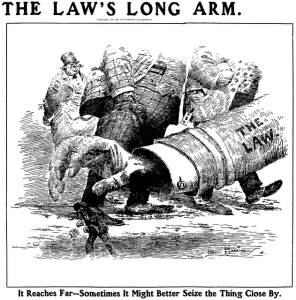 Hazim, a resident of Kansas, sued S&D Ltd., a publisher based in the UK, about its handling of Hazim’s book. Their contract had Texas choice-of-law and forum-selection provisions. Finding that the specific terms of the forum selection provision were not dispositive, the Fifth Circuit held that under Int’l Energy Ventures Management LLC v. United Energy Group, 2016 WL 1274030 (5th Cir. March 31, 2016), Hazim did not establish personal jurisdiction: “[T]he contract was between a Kansas resident and a United Kingdom entity and contemplated performance in the United Kingdom and Kansas. Even accepting that the contract contained the Texas choice-of-law and forum selection provision (as the IVEM-UEG contract did) . . . the contract on which Hazim is suing is not sufficiently related to Texas[.]” Hazim v. Schile & Denver Book Publishers, No. 15-20586 (May 5, 2016, unpublished).
Hazim, a resident of Kansas, sued S&D Ltd., a publisher based in the UK, about its handling of Hazim’s book. Their contract had Texas choice-of-law and forum-selection provisions. Finding that the specific terms of the forum selection provision were not dispositive, the Fifth Circuit held that under Int’l Energy Ventures Management LLC v. United Energy Group, 2016 WL 1274030 (5th Cir. March 31, 2016), Hazim did not establish personal jurisdiction: “[T]he contract was between a Kansas resident and a United Kingdom entity and contemplated performance in the United Kingdom and Kansas. Even accepting that the contract contained the Texas choice-of-law and forum selection provision (as the IVEM-UEG contract did) . . . the contract on which Hazim is suing is not sufficiently related to Texas[.]” Hazim v. Schile & Denver Book Publishers, No. 15-20586 (May 5, 2016, unpublished).
 Carlson alleged injuries from the ProNeuroLight, an infrared therapy device. At trial, the defendants called a chiropractor with some experience using the device. The Fifth Circuit expressed skepticism about his qualifications, noting: “While he does make diagnoses and orders tests as part of his chiropractic and alternative medicine practice, [his] qualifications do not align with or support his challenged medical causation testimony.” The Court did not rule on that basis, however, instead finding that “a district court must . . . perform its gatekeeping function by performing some type of Daubert inquiry and by making findings about the witness’s qualifications to give expert testimony.” Here, admitting the chiropractor’s testimony without taking those steps was an abuse of discretion. The Court found harm, noting that he was the sole defense witness, that his testimony was cited in closing, and that the defendants won. Accordingly, it reversed and remanded. Carlson v. Bioremedic Therapeutic Systems, Inc., No. 14-20691 (May 16, 2016).
Carlson alleged injuries from the ProNeuroLight, an infrared therapy device. At trial, the defendants called a chiropractor with some experience using the device. The Fifth Circuit expressed skepticism about his qualifications, noting: “While he does make diagnoses and orders tests as part of his chiropractic and alternative medicine practice, [his] qualifications do not align with or support his challenged medical causation testimony.” The Court did not rule on that basis, however, instead finding that “a district court must . . . perform its gatekeeping function by performing some type of Daubert inquiry and by making findings about the witness’s qualifications to give expert testimony.” Here, admitting the chiropractor’s testimony without taking those steps was an abuse of discretion. The Court found harm, noting that he was the sole defense witness, that his testimony was cited in closing, and that the defendants won. Accordingly, it reversed and remanded. Carlson v. Bioremedic Therapeutic Systems, Inc., No. 14-20691 (May 16, 2016).
 Unsuccessfully, Plaintiff sued about the foreclosure on his home in state court in 2008, and again in federal court in 2012. The Fifth Circuit said he was “WARNED that further frivolous litigation will result in substantial sanctions under Rule 38 or this court’s inherent sanctioning power and will include monetary sanctions and restrictions on access to federal court.” Then, he filed a 60(b) motion, which he also lost, and which he also appealed. The Court dismissed his appeal as frivolous, sanctioned him $500, and barred him from future litigation about the foreclosure without leave of court. Fantroy v. First Financial Bank, No. 15-10975 (May 13, 2016, unpublished). (Some time ago, I
Unsuccessfully, Plaintiff sued about the foreclosure on his home in state court in 2008, and again in federal court in 2012. The Fifth Circuit said he was “WARNED that further frivolous litigation will result in substantial sanctions under Rule 38 or this court’s inherent sanctioning power and will include monetary sanctions and restrictions on access to federal court.” Then, he filed a 60(b) motion, which he also lost, and which he also appealed. The Court dismissed his appeal as frivolous, sanctioned him $500, and barred him from future litigation about the foreclosure without leave of court. Fantroy v. First Financial Bank, No. 15-10975 (May 13, 2016, unpublished). (Some time ago, I  wrote an article called “Loud Rules” with Wendy Couture about the nuances of this kind of judicial warning.)
wrote an article called “Loud Rules” with Wendy Couture about the nuances of this kind of judicial warning.)
 The district court granted the plaintiff’s motion for conditional class certification under the Fair Labor Standards Act. The defendant sought mandamus review, and the Fifth Circuit held the petition in abatement for more information: ” Although there is generally no ‘inflexible rule requiring district courts to file a written order explaining their decisions,” in this case the district court’s ‘lack of explanation makes it impossible for us to determine’ whether mandamus relief would be appropriate here.” In re Schlumberger Tech. Corp., No. 16-20267 (May 13, 2016, unpublished).
The district court granted the plaintiff’s motion for conditional class certification under the Fair Labor Standards Act. The defendant sought mandamus review, and the Fifth Circuit held the petition in abatement for more information: ” Although there is generally no ‘inflexible rule requiring district courts to file a written order explaining their decisions,” in this case the district court’s ‘lack of explanation makes it impossible for us to determine’ whether mandamus relief would be appropriate here.” In re Schlumberger Tech. Corp., No. 16-20267 (May 13, 2016, unpublished).
 In Carpenter Properties Inc. v. JP Morgan Chase Bank, the Fifth Circuit found that a contract had been modified notwithstanding a signature on a formal counteroffer, but then found no liability under a “corporate veil” theory as to Chase: “[M]ere frustration with Chase for its failure to pay a commission once Chase’s identity was known is insufficient to amount to frustration of contractual expectations regarding the party to whom Carpenter looked for performance . . . .” No. 15-60309 (May 4, 2016, unpublished).
In Carpenter Properties Inc. v. JP Morgan Chase Bank, the Fifth Circuit found that a contract had been modified notwithstanding a signature on a formal counteroffer, but then found no liability under a “corporate veil” theory as to Chase: “[M]ere frustration with Chase for its failure to pay a commission once Chase’s identity was known is insufficient to amount to frustration of contractual expectations regarding the party to whom Carpenter looked for performance . . . .” No. 15-60309 (May 4, 2016, unpublished).
 The plaintiff in Watson v. City of Allen sued, in Texas state court, several Texas cities about the operation of their “red light camera” programs.No. 15-10732 (May 5, 2016). The cities removed based on his RICO claim and CAFA. Plaintiff then dropped the RICO claim and sought remand based on CAFA’s “local controversy” and “home state” exceptions. The district court kept the case, finding it untimely as to CAFA, finding supplemental jurisdiction over the remaining state-law claims, and dismissing many claims for lack of standing. The Fifth Circuit reversed, concluding:
The plaintiff in Watson v. City of Allen sued, in Texas state court, several Texas cities about the operation of their “red light camera” programs.No. 15-10732 (May 5, 2016). The cities removed based on his RICO claim and CAFA. Plaintiff then dropped the RICO claim and sought remand based on CAFA’s “local controversy” and “home state” exceptions. The district court kept the case, finding it untimely as to CAFA, finding supplemental jurisdiction over the remaining state-law claims, and dismissing many claims for lack of standing. The Fifth Circuit reversed, concluding:
- The 30-day deadline in 28 U.S.C. § 1447(c) does not apply to CAFA mandatory abstention provisions, since it “does not deprive federal courts of subject matter jurisdiction, but rather, acts as a limitation upon the exercise of jurisdiction granted by CAFA.”
- The CAFA motion was filed within a reasonable time of removal, when “[a]ll indications are that [Plaintiff] acted diligently to gather evidence,” and because “fifty-two days is simply not a very long time.”
 The “home state” exception applied because “[t]his suit’s primary thrust is an attempt to declare unconstitutional red light camera scheme,” meaning that the State of Texas and its municipalities were the “primary defendants,” and not the companies hired to carry out the program.
The “home state” exception applied because “[t]his suit’s primary thrust is an attempt to declare unconstitutional red light camera scheme,” meaning that the State of Texas and its municipalities were the “primary defendants,” and not the companies hired to carry out the program.- The district court should have declined to exercise supplemental jurisdiction, since “Texas courts have a strong interest” in the remaining issues and the plaintiff’s “motion to amend . . . to delete the federal claims is not a particularly egregious form of forum manipulation, if it is manipulation at all.”
The case of In re Mole involved continuing fallout from proceedings involving impeached judge Thomas Porteous. Mole was accused of hiring an attorney who “had no useful experience in the type of litigation” at hand in an attempt to have Judge Porteous recuse himself. In disciplinary proceedings before the Eastern District of Louisiana, the first judge to hear the matter declined to sanction Mole, but the full court – reviewing the same record – suspended him for a year. The Fifth Circuit found that the en banc Eastern District could rule differently from the initial judge without giving it deference, and that sufficient evidence supported the sanction — in particular, “the $100,000 severance fee in the retention letter incentivizes the prospect of a recusal.” No. 15-30647 (May 4, 2016).
 Baker sued DeShong under the Lanham Act about use of the phrase “HIV Innocence Group,” in connection with advocacy programs for individuals accused of infecting others with HIV. DeShong won and sought an award of attorneys fees. The Fifth Circuit concluded that after Octane Fitness v. Icon Health & Fitness, 134 S. Ct. 1749 (2014) (a patent case, but analogous to the similar Lanham Act provision), an award of fees to a defendant was not limited to bad faith and did not require a “clear and convincing” showing. To qualify as an “exceptional” case that justifies a fee award, the court should consider a “nonexclusive’ list of ‘factors,’ including ‘frivolousness, motivation, objective unreasonableness (both in the factual and legal components of the case) and the need in particular circumstances to advance considerations of compensation and deterrence.” Baker v. DeShong, No. 14-11157 (May 3, 2016).
Baker sued DeShong under the Lanham Act about use of the phrase “HIV Innocence Group,” in connection with advocacy programs for individuals accused of infecting others with HIV. DeShong won and sought an award of attorneys fees. The Fifth Circuit concluded that after Octane Fitness v. Icon Health & Fitness, 134 S. Ct. 1749 (2014) (a patent case, but analogous to the similar Lanham Act provision), an award of fees to a defendant was not limited to bad faith and did not require a “clear and convincing” showing. To qualify as an “exceptional” case that justifies a fee award, the court should consider a “nonexclusive’ list of ‘factors,’ including ‘frivolousness, motivation, objective unreasonableness (both in the factual and legal components of the case) and the need in particular circumstances to advance considerations of compensation and deterrence.” Baker v. DeShong, No. 14-11157 (May 3, 2016).
 Dickson guaranteed a large debt owed by Community Home Financial Services. Community went into bankruptcy, disputing the extent and validity of its obligations to its lenders. Unfortunately for Dickson, his guaranty not only waived all defenses to enforcement, and stated that it created an obligation independent of Community’s, but also said it was not changed “by the partial or complete unenforceability or invalidity” of the guaranteed obligation. He also disputed the amount owing, but the Fifth Circuit agreed that the affidavit evidence he submitted “contained only another set of allegations” and did not preclude summary judgment against him. Edwards Family Partnership LP v. Dickson, No. 15-60683 (April 29, 2016).
Dickson guaranteed a large debt owed by Community Home Financial Services. Community went into bankruptcy, disputing the extent and validity of its obligations to its lenders. Unfortunately for Dickson, his guaranty not only waived all defenses to enforcement, and stated that it created an obligation independent of Community’s, but also said it was not changed “by the partial or complete unenforceability or invalidity” of the guaranteed obligation. He also disputed the amount owing, but the Fifth Circuit agreed that the affidavit evidence he submitted “contained only another set of allegations” and did not preclude summary judgment against him. Edwards Family Partnership LP v. Dickson, No. 15-60683 (April 29, 2016).
 Billings v. Propel Financial Services, LLC involved plaintiffs, making claims under the Truth in Lending Act, arising from property tax loans they obtained in exchange for the transfer of their tax liens pursuant to the Texas Tax Code. Applying prior precedent in a an analogous bankruptcy context, the Fifth Circuit held: “[I]t is clear that the payments made by defendants to the relevant taxing authorities and the subsequent transfer of the tax liens and execution of the promissory notes did not extinguish the original tax obligations, but rather, simply transferred the preexisting tax obligations to new entities. Thus, the transfers and promissory notes did not create new debts that would be subject to TILA, but rather transferred existing tax obligations, which are not ‘debts’ subject to TILA.” No. 14-51326-CV (April 29, 2016).
Billings v. Propel Financial Services, LLC involved plaintiffs, making claims under the Truth in Lending Act, arising from property tax loans they obtained in exchange for the transfer of their tax liens pursuant to the Texas Tax Code. Applying prior precedent in a an analogous bankruptcy context, the Fifth Circuit held: “[I]t is clear that the payments made by defendants to the relevant taxing authorities and the subsequent transfer of the tax liens and execution of the promissory notes did not extinguish the original tax obligations, but rather, simply transferred the preexisting tax obligations to new entities. Thus, the transfers and promissory notes did not create new debts that would be subject to TILA, but rather transferred existing tax obligations, which are not ‘debts’ subject to TILA.” No. 14-51326-CV (April 29, 2016).
 In a significant contribution to the Fifth Circuit’s case law applying Twombly and Iqbal, the Court reversed the Rule 12 dismissal of a products liability case in Flagg v. Stryker Corp., recognizing that “in products liability lawsuits, almost all of the evidence is in the possession of the defendant.” The defendants, manufacturers of toe implants, contended that Flagg’s allegations “lack . . .details about how the implants may have deviated from specifications and performance standards” and did not “sufficiently allege an existing and non-burdensome alternative design.” The Court found sufficient detail, for the pleading stage, in Flagg’s allegations that “the shape and sizing of the implants led to the implants’ fracturing and caused them to be difficult to remove once broken,” as well as his allegation that a different alloy would have performed better. It concluded: “Perhaps after discovery Flagg will not prevail, but at a pre-discovery stage of this case, in an area of law where defendants are likely to exclusively possess the information relevant to making more detailed factual allegations, we cannot say that he is merely on a fishing expedition.” No. 14-31169 (April 26, 2016, unpublished).
In a significant contribution to the Fifth Circuit’s case law applying Twombly and Iqbal, the Court reversed the Rule 12 dismissal of a products liability case in Flagg v. Stryker Corp., recognizing that “in products liability lawsuits, almost all of the evidence is in the possession of the defendant.” The defendants, manufacturers of toe implants, contended that Flagg’s allegations “lack . . .details about how the implants may have deviated from specifications and performance standards” and did not “sufficiently allege an existing and non-burdensome alternative design.” The Court found sufficient detail, for the pleading stage, in Flagg’s allegations that “the shape and sizing of the implants led to the implants’ fracturing and caused them to be difficult to remove once broken,” as well as his allegation that a different alloy would have performed better. It concluded: “Perhaps after discovery Flagg will not prevail, but at a pre-discovery stage of this case, in an area of law where defendants are likely to exclusively possess the information relevant to making more detailed factual allegations, we cannot say that he is merely on a fishing expedition.” No. 14-31169 (April 26, 2016, unpublished).
 At issue in Hefren v. McDermott, Inc. was whether the Front Runner Spar (right) – a type of offshore drilling platform with a remarkable resemblance to a Jawan Sandcrawler – was “immovable” within the meaning of Louisiana law. A dispositive issue of limitations turned on that classification. Noting that the Spar could be moved with sufficient planning and preparation, the Fifth Circuit agreed with the district court that: “Like a ‘building’ under Louisiana law, there is ‘some permanence’ to the Front Runner Spar as it has not moved from its present location, is intended to remain there for its twenty year life, and has a permanent mooring system.” No. 15-30980 (April 25, 2016, unpublished).
At issue in Hefren v. McDermott, Inc. was whether the Front Runner Spar (right) – a type of offshore drilling platform with a remarkable resemblance to a Jawan Sandcrawler – was “immovable” within the meaning of Louisiana law. A dispositive issue of limitations turned on that classification. Noting that the Spar could be moved with sufficient planning and preparation, the Fifth Circuit agreed with the district court that: “Like a ‘building’ under Louisiana law, there is ‘some permanence’ to the Front Runner Spar as it has not moved from its present location, is intended to remain there for its twenty year life, and has a permanent mooring system.” No. 15-30980 (April 25, 2016, unpublished).
Last Friday, I spoke about recent federal cases on sanctions and professional responsibility issues; for some ethics CLE self-study, here is the handout that I used.
 The Texas Package Sales Association, a trade association of alcohol sellers, moved for relief under Fed. R. Civ. P. 60(b) from a longstanding injunction against the enforcement of a residency requirement for sales permits. The Fifth Circuit concluded:
The Texas Package Sales Association, a trade association of alcohol sellers, moved for relief under Fed. R. Civ. P. 60(b) from a longstanding injunction against the enforcement of a residency requirement for sales permits. The Fifth Circuit concluded:
- While not a plaintiff in the original litigation, TPSA had intervened in it, and could challenge the permanent injunction; and
- TPSA had standing as an organization to sue about the requirement; but
- Subsequent Supreme Court opinions about the Commerce Clause did not create an intervening change in the law that would justify Rule 60(b) relief original litigation; and
- TPSA had not adequately placed at issue the alternative ground for the injunction, based on the Privileges and Immunities Clause.
A dissent would not have found that TPSA had standing to sue, characterizing its suit as an effort “to substitute itself . . for the state authorities” with jurisdiction over the applicable law. Cooper v. TABC, No. 14-51343 (April 21, 2016).
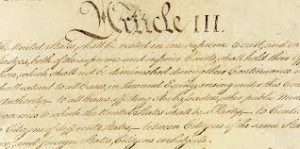 A magistrate judge ordered remand to state court in Davidson v. Georgia-Pacific. The Fifth Circuit concluded that because “a remand order is dispositive insofar as proceedings in the federal court are concerned,” it is “the functional equivalent of an order of dismissal.” Therefore, a magistrate judge could not make a final ruling on a motion to remand. In so holding, the Court “join[s] the uniform view of the courts of appeals that have considered this question[.]” No. 14-30925 (April 19, 2016).
A magistrate judge ordered remand to state court in Davidson v. Georgia-Pacific. The Fifth Circuit concluded that because “a remand order is dispositive insofar as proceedings in the federal court are concerned,” it is “the functional equivalent of an order of dismissal.” Therefore, a magistrate judge could not make a final ruling on a motion to remand. In so holding, the Court “join[s] the uniform view of the courts of appeals that have considered this question[.]” No. 14-30925 (April 19, 2016).
 Appellants, investors who lost money in their dealings with Allen Stanford, began a FINRA arbitration against Pershing LLC, a clearing broker. The panel rejected appellants’ $80 million claim, awarding only $10,000 in arbitration-related expenses. Pershing sought confirmation in federal court and encountered a split in authority about the amount-in-controversy requirement — the “demand” approach, which would allow jurisdiction, and the “award” approach, which would not. The Fifth Circuit sided with the “demand” approach, finding that it “recognizes the true scope of the controversy between the parties,” and was consistent with the corresponding test for claims filed in district court. A lengthy concurrence suggested that a “general approach” was not needed, given the different fact patterns that can give rise to this kind of dispute about the amount in controversy. Pershing LLC v. Kiebach, No. 15-30396 (April 6, 2016).
Appellants, investors who lost money in their dealings with Allen Stanford, began a FINRA arbitration against Pershing LLC, a clearing broker. The panel rejected appellants’ $80 million claim, awarding only $10,000 in arbitration-related expenses. Pershing sought confirmation in federal court and encountered a split in authority about the amount-in-controversy requirement — the “demand” approach, which would allow jurisdiction, and the “award” approach, which would not. The Fifth Circuit sided with the “demand” approach, finding that it “recognizes the true scope of the controversy between the parties,” and was consistent with the corresponding test for claims filed in district court. A lengthy concurrence suggested that a “general approach” was not needed, given the different fact patterns that can give rise to this kind of dispute about the amount in controversy. Pershing LLC v. Kiebach, No. 15-30396 (April 6, 2016).
 In July 2009, hail damaged the then-dormant Dallas Plaza Hotel (right), owned by Hamilton Properties. Hamilton inspected the property in November 2010, emailed an insurance agent in February 2011, and filed a claim in October 2011. The Fifth Circuit agreed that Hamilton had failed to give reasonably prompt notice, noting that it had no explanation for the long delay, and that while the insurer had been able to investigate the claim: “It is undisputed that because of Hamilton’s delay, AIC lost access to critical evidence, including the condition of the twelfth floor before and after the July hailstorm and up until the end of the coverage period.” Hamilton Properties, Inc v. American Ins. Co., No. 15-10382 (April 14, 2016, unpublished).
In July 2009, hail damaged the then-dormant Dallas Plaza Hotel (right), owned by Hamilton Properties. Hamilton inspected the property in November 2010, emailed an insurance agent in February 2011, and filed a claim in October 2011. The Fifth Circuit agreed that Hamilton had failed to give reasonably prompt notice, noting that it had no explanation for the long delay, and that while the insurer had been able to investigate the claim: “It is undisputed that because of Hamilton’s delay, AIC lost access to critical evidence, including the condition of the twelfth floor before and after the July hailstorm and up until the end of the coverage period.” Hamilton Properties, Inc v. American Ins. Co., No. 15-10382 (April 14, 2016, unpublished).
 The plaintiffs in Wendt v. 24 Hour Fitness USA, Inc. complained about several violations of the Texas Health Spa Act in the form membership contract of 24 Hour Fitness. Noting the specific remedies provided by that Act, the Fifth Circuit held: “We agree with the district court that Plaintiffs suffered no injury-in-fact. 24 Hour’s alleged violations of the Act did not harm Plaintiffs in any way. To the contrary, 24 Hour gave Plaintiffs exactly what they paid for: access to a gym. Plaintiffs therefore lack Article III standing, and the district court
The plaintiffs in Wendt v. 24 Hour Fitness USA, Inc. complained about several violations of the Texas Health Spa Act in the form membership contract of 24 Hour Fitness. Noting the specific remedies provided by that Act, the Fifth Circuit held: “We agree with the district court that Plaintiffs suffered no injury-in-fact. 24 Hour’s alleged violations of the Act did not harm Plaintiffs in any way. To the contrary, 24 Hour gave Plaintiffs exactly what they paid for: access to a gym. Plaintiffs therefore lack Article III standing, and the district court
properly dismissed the case.” No. 15-10309 (April 13, 2016).
 The parties in DFW Airport Board v. Inet Aiport Systems sued each other about problems in the installation of rooftop air conditioning units. Key issues were “who breached first” and whether the parties had a meeting of the minds about a solution; the evidence consisted of a fast-moving, complicated exchange of emails and letters. The Fifth Circuit reversed a summary judgment, noting: “In these circumstances the Contract required both parties to participate in resolving defects. Any contractual modification or change order required the mutual assent of the parties, and questions of mutual assent are fact based. Sifting through the evidence to determine whether the parties reached agreement on a contractual modification is a task ill-suited for summary judgment on this record.” Nos. 15-10390, 15-10600 (April 12, 2016).
The parties in DFW Airport Board v. Inet Aiport Systems sued each other about problems in the installation of rooftop air conditioning units. Key issues were “who breached first” and whether the parties had a meeting of the minds about a solution; the evidence consisted of a fast-moving, complicated exchange of emails and letters. The Fifth Circuit reversed a summary judgment, noting: “In these circumstances the Contract required both parties to participate in resolving defects. Any contractual modification or change order required the mutual assent of the parties, and questions of mutual assent are fact based. Sifting through the evidence to determine whether the parties reached agreement on a contractual modification is a task ill-suited for summary judgment on this record.” Nos. 15-10390, 15-10600 (April 12, 2016).
 Mutual of Omaha obtained a summary judgment against Prospect, who complained under Fed. R. Civ. P. 56(d) that it needed “additional electronic discovery related to allegedly backdated documents produced by Mutual.” The Fifth Circuit declined to enter that wild kingdom, observing: “[T]he magistrate judge denied Prospect’s motion to compel that electronic discovery, and Prospect did not object to the denial. That means that the electronic discovery was not ‘susceptible of collection within a reasonable time frame’ —Prospect was never
Mutual of Omaha obtained a summary judgment against Prospect, who complained under Fed. R. Civ. P. 56(d) that it needed “additional electronic discovery related to allegedly backdated documents produced by Mutual.” The Fifth Circuit declined to enter that wild kingdom, observing: “[T]he magistrate judge denied Prospect’s motion to compel that electronic discovery, and Prospect did not object to the denial. That means that the electronic discovery was not ‘susceptible of collection within a reasonable time frame’ —Prospect was never
going to get it—so it cannot support Prospect’s Rule 56(d) motion.” Prospect Capital v. Mutual of Omaha, No. 15-20345 (April 13, 2016).
 In Burell v. Prudential Ins. Co., the Fifth Circuit addressed one of the many ERISA summary judgment cases in which it reviews a plan administrator’s work for abuse of discretion – or, in the somewhat cryptic language of ERISA: “our de novo review of [the] summary judgment ruling will also apply the abuse of discretion standard.” The panel affirmed over a dissent, which is not typical in such cases. It noted disagreement among the doctors who reviewed the claim, as well as allegations that the administrator did not follow its own review procedures, and would have found a fact issue for trial based on those matters. No. 15-50035 (April 11, 2016).
In Burell v. Prudential Ins. Co., the Fifth Circuit addressed one of the many ERISA summary judgment cases in which it reviews a plan administrator’s work for abuse of discretion – or, in the somewhat cryptic language of ERISA: “our de novo review of [the] summary judgment ruling will also apply the abuse of discretion standard.” The panel affirmed over a dissent, which is not typical in such cases. It noted disagreement among the doctors who reviewed the claim, as well as allegations that the administrator did not follow its own review procedures, and would have found a fact issue for trial based on those matters. No. 15-50035 (April 11, 2016).
 The issue in Seacor Holdings v. Mason was whether a party had “informally” opted out of a class action related to the Deepwater Horizon disaster. Acknowledging that a party can opt out of a class without strictly complying with specified procedures, especially if the party is unsophisticated and unrepresented by legal counsel, the Fifth Circuit found no abuse of discretion in not finding an opt-out here. “The gargantuan size and extraordinary complexity of this litigation therefore supports the district court’s decision. . . . . When the district court approved the Agreement, it noted the class had potentially 200,000 members and that over 1,700 individuals sent opt-out requests to the claims administrator. Given the size and complexity of this MDL proceeding, the court and parties should not have to intuit an opt out from vague statements made in one of thousands of filings before the court. To hold otherwise would allow class members to make ambiguous statements and motions while waiting to see if the outcome of the class action is favorable.” No. 15-30597 (April 6, 2016).
The issue in Seacor Holdings v. Mason was whether a party had “informally” opted out of a class action related to the Deepwater Horizon disaster. Acknowledging that a party can opt out of a class without strictly complying with specified procedures, especially if the party is unsophisticated and unrepresented by legal counsel, the Fifth Circuit found no abuse of discretion in not finding an opt-out here. “The gargantuan size and extraordinary complexity of this litigation therefore supports the district court’s decision. . . . . When the district court approved the Agreement, it noted the class had potentially 200,000 members and that over 1,700 individuals sent opt-out requests to the claims administrator. Given the size and complexity of this MDL proceeding, the court and parties should not have to intuit an opt out from vague statements made in one of thousands of filings before the court. To hold otherwise would allow class members to make ambiguous statements and motions while waiting to see if the outcome of the class action is favorable.” No. 15-30597 (April 6, 2016).
 “Here, the appellants’ notice of appeal specifically designated only the district court’s September 17, 2015, order granting summary judgment for appeal, and it reveals no implied challenge to the magistrate judge’s May 2015 ruling on their motion to reset deadlines or the district court’s August 2015 ruling on their motion for an extension of time. These unmentioned orders therefore fall outside the scope of the appellants’ notice of appeal, and we lack jurisdiction to review them.” Underwood v. General Motors, No. 15-30831 (April 5, 2016, unpublished).
“Here, the appellants’ notice of appeal specifically designated only the district court’s September 17, 2015, order granting summary judgment for appeal, and it reveals no implied challenge to the magistrate judge’s May 2015 ruling on their motion to reset deadlines or the district court’s August 2015 ruling on their motion for an extension of time. These unmentioned orders therefore fall outside the scope of the appellants’ notice of appeal, and we lack jurisdiction to review them.” Underwood v. General Motors, No. 15-30831 (April 5, 2016, unpublished).
 The attorney general of Mississippi served Google with a broad administrative subpoena about Google’s efforts to reduce copyright infringement, drug trafficking, and other undesirable uses of its search technology. Google responded with a federal lawsuit seeking an injunction against the subpoena and further proceedings about it. The Fifth Circuit found federal jurisdiction, as “Google’s claims seeking to enjoin a state officer’s alleged violations of federal law invoke federal-question jurisdiction,” and found no reason to abstain under Younger v. Harris. But the Court went on to find that the action was not yet ripe: “there is no current consequence for resisting the subpoena and the same challenges raised in the federal suit could be litigated in state court.” Google, Inc. v. Hood, No. 15-60205 (April 8, 2016). Accordingly, it vacated the injunction granted by the trial court, and remanded with instructions to dismiss.
The attorney general of Mississippi served Google with a broad administrative subpoena about Google’s efforts to reduce copyright infringement, drug trafficking, and other undesirable uses of its search technology. Google responded with a federal lawsuit seeking an injunction against the subpoena and further proceedings about it. The Fifth Circuit found federal jurisdiction, as “Google’s claims seeking to enjoin a state officer’s alleged violations of federal law invoke federal-question jurisdiction,” and found no reason to abstain under Younger v. Harris. But the Court went on to find that the action was not yet ripe: “there is no current consequence for resisting the subpoena and the same challenges raised in the federal suit could be litigated in state court.” Google, Inc. v. Hood, No. 15-60205 (April 8, 2016). Accordingly, it vacated the injunction granted by the trial court, and remanded with instructions to dismiss.
 Appellant “Why Not LLC” (unfortunately, not the appellee, despite the perfect name for that side of an appeal) complained of a frozen yogurt franchise termination by Yumilicious. The district court granted summary judgment on Why Not’s many causes of action, and the Fifth Circuit affirmed, principally on grounds relating to Yumilicious’s lack of intent and the terms of the franchise agreement. In the course of doing so, the opinion offers a primer on commonly-litigated issues about basic business torts in Texas. The Court observed that Why Not’s pleading had presented “a large serving of claims and counterclaims piled precariously together,” and concluded: “This saccharine swirl of counterclaims suggests that litigants, like fro-yo fans, should seek quality over quantity.” Yumilicious v. Barrie, No. 15-10508 (April 6, 2016). (The opinion is silent as to whether Why Not has any relation to the left fielder on Bud Abbott’s famous baseball team.)
Appellant “Why Not LLC” (unfortunately, not the appellee, despite the perfect name for that side of an appeal) complained of a frozen yogurt franchise termination by Yumilicious. The district court granted summary judgment on Why Not’s many causes of action, and the Fifth Circuit affirmed, principally on grounds relating to Yumilicious’s lack of intent and the terms of the franchise agreement. In the course of doing so, the opinion offers a primer on commonly-litigated issues about basic business torts in Texas. The Court observed that Why Not’s pleading had presented “a large serving of claims and counterclaims piled precariously together,” and concluded: “This saccharine swirl of counterclaims suggests that litigants, like fro-yo fans, should seek quality over quantity.” Yumilicious v. Barrie, No. 15-10508 (April 6, 2016). (The opinion is silent as to whether Why Not has any relation to the left fielder on Bud Abbott’s famous baseball team.)
 A clear disability — a child rendered incompetent by a debilitating medical condition — gave rise to complicated standing and capacity issues in Rideau v. Keller ISD, No. 15-10095 (April 5, 2016). The child, the beneficiary of a trust established in his behalf as a result of the incident that caused his condition, sought damages from his school district for mistreatment by his special education teacher. The Fifth Circuit found that the child had standing to seek recovery for his home care expenses, notwithstanding “[t]he existence of a third-party payor in the form of a trust created by a prior tortfeasor.” The Court then agreed with the defendant that Texas law gave the bank who administered the child’s trust the exclusive right to file suit for other damages, and not his parents. It concluded, however, that this problem had been cured by the bank’s ratification of the parents’ action under the rarely-applied but very practical Fed. R. Civ. P. 17(a)(3). (I congratulate my LPCH colleague John Guild on his work for the plaintiffs in this case.)
A clear disability — a child rendered incompetent by a debilitating medical condition — gave rise to complicated standing and capacity issues in Rideau v. Keller ISD, No. 15-10095 (April 5, 2016). The child, the beneficiary of a trust established in his behalf as a result of the incident that caused his condition, sought damages from his school district for mistreatment by his special education teacher. The Fifth Circuit found that the child had standing to seek recovery for his home care expenses, notwithstanding “[t]he existence of a third-party payor in the form of a trust created by a prior tortfeasor.” The Court then agreed with the defendant that Texas law gave the bank who administered the child’s trust the exclusive right to file suit for other damages, and not his parents. It concluded, however, that this problem had been cured by the bank’s ratification of the parents’ action under the rarely-applied but very practical Fed. R. Civ. P. 17(a)(3). (I congratulate my LPCH colleague John Guild on his work for the plaintiffs in this case.)
 The plaintiffs in Hall v. Phenix Investigations were also defendants in contentious state court fraudulent transfer litigation. They alleged that a private investigation firm violated the FCRA in its work in that litigation. The Fifth Circuit affirmed the dismissal of the case on the pleadings, finding that “the report was commissioned for use in ongoing commercial litigation, which is not a qualifying purpose of the FCRA even it may potentially be used for such a purpose someday. And, “[e]ven assuming that filing a lawsuit to collect on a judgment could constitute the collection of a consumer account within the meaning of the FCRA, there is no collection of a consumer account here because the judgment arose from a commercial transaction.” No. 15-10533 (March 29, 2016, unpublished).
The plaintiffs in Hall v. Phenix Investigations were also defendants in contentious state court fraudulent transfer litigation. They alleged that a private investigation firm violated the FCRA in its work in that litigation. The Fifth Circuit affirmed the dismissal of the case on the pleadings, finding that “the report was commissioned for use in ongoing commercial litigation, which is not a qualifying purpose of the FCRA even it may potentially be used for such a purpose someday. And, “[e]ven assuming that filing a lawsuit to collect on a judgment could constitute the collection of a consumer account within the meaning of the FCRA, there is no collection of a consumer account here because the judgment arose from a commercial transaction.” No. 15-10533 (March 29, 2016, unpublished).
In the second case in a week about the seizure of maritime fuel supplies, the Fifth Circuit addressed a recurring issue in international business transactions — the incorporation of a  general set of standards by reference in a less-detailed, but party-specific contract. Applying Singapore law to the substantial fuel bunkers of the M/V BULK JULIANA (right), the Court concluded: “Although [the expert’s] testimony did not address the bunker delivery notes, he affirmed the incorporation of the General Terms by reference to the bunker confirmation email, which provided all the relevant terms and conditions of the contract. We recognize that neither Bulk Juliana nor the vessel was a party to the bunker confirmation email, and therefore did not have
general set of standards by reference in a less-detailed, but party-specific contract. Applying Singapore law to the substantial fuel bunkers of the M/V BULK JULIANA (right), the Court concluded: “Although [the expert’s] testimony did not address the bunker delivery notes, he affirmed the incorporation of the General Terms by reference to the bunker confirmation email, which provided all the relevant terms and conditions of the contract. We recognize that neither Bulk Juliana nor the vessel was a party to the bunker confirmation email, and therefore did not have  access to and/or awareness of the specific document at all material times. [The expert], however, testified about the ready availability of the contractual terms via the internet, as well as the prevalence of the practices employed here with respect to sales of necessaries in the shipping industry. Importantly, [he] pointed out that [Plaintiff’s] incorporation of the General Terms was ‘commonplace in the bunkering industry worldwide, and ought to be in the contemplation of ship operators and ship-owners such as [Bulk Juliana].'” World Fuel Services v. Bulk Juliana, Ltd., No. 15-30239 (April 1, 2016).
access to and/or awareness of the specific document at all material times. [The expert], however, testified about the ready availability of the contractual terms via the internet, as well as the prevalence of the practices employed here with respect to sales of necessaries in the shipping industry. Importantly, [he] pointed out that [Plaintiff’s] incorporation of the General Terms was ‘commonplace in the bunkering industry worldwide, and ought to be in the contemplation of ship operators and ship-owners such as [Bulk Juliana].'” World Fuel Services v. Bulk Juliana, Ltd., No. 15-30239 (April 1, 2016).
 After a bad start in the Fifth Circuit, the Golf Channel ultimately prevailed in the Texas Supreme Court in a fraudulent transfer case against the Allen Stanford receiver. The Channel ran advertisements for Stanford’s golf business in exchange for payments of roughly $6 million. The issue was whether the “value” of those ads, for purposes of the Channel’s defenses under TUFTA, “became valueless based on the true nature of the debtor’s business as a Ponzi scheme or the debtor’s subjective reasons for procuring otherwise lawful services.” The Texas Supreme Court ruled for the Channel, finding that “TUFTA does not contain separate standards for assessing ‘value’ and ‘reasonably equivalent’ value based on whether the debtor was operating a Ponzi scheme. . . . “[V]alue must be determined objectively at the time of the transfer and in relation to the individual exchange at hand rather than viewed in the context of the debtor’s entire enterprise, . . . the debtor’s perspective, or . . . a retrospective evaluation of the impact it had on the debtor’s estate.” Janvey v. Golf Channel, No. 15-0489 (Tex. Apr. 1, 2016).
After a bad start in the Fifth Circuit, the Golf Channel ultimately prevailed in the Texas Supreme Court in a fraudulent transfer case against the Allen Stanford receiver. The Channel ran advertisements for Stanford’s golf business in exchange for payments of roughly $6 million. The issue was whether the “value” of those ads, for purposes of the Channel’s defenses under TUFTA, “became valueless based on the true nature of the debtor’s business as a Ponzi scheme or the debtor’s subjective reasons for procuring otherwise lawful services.” The Texas Supreme Court ruled for the Channel, finding that “TUFTA does not contain separate standards for assessing ‘value’ and ‘reasonably equivalent’ value based on whether the debtor was operating a Ponzi scheme. . . . “[V]alue must be determined objectively at the time of the transfer and in relation to the individual exchange at hand rather than viewed in the context of the debtor’s entire enterprise, . . . the debtor’s perspective, or . . . a retrospective evaluation of the impact it had on the debtor’s estate.” Janvey v. Golf Channel, No. 15-0489 (Tex. Apr. 1, 2016).
 Malin Ship Repair sought to attach boat fuel (“bunkers” in admiralty parlance) of defendant OSA, and thus gain personal jurisdiction over OSA in a Texas federal court. As of the attachment date, OSA had taken delivery of the boat and the fuel on it, but had not paid for the fuel or been invoiced for it. Under the UCC, title would have passed under delivery. Under the common law, the answer turns on the parties’ intent, and the Court concluded that “the parties contemplated a credit transaction.” Thus, title had passed to OSA and the attachment was sufficient to confer personal jurisdiction under the applicable admiralty rule. Malin Int’l Ship Repair & Drydock v. Oceanografia, S.A. de C.V., No. 15-40463 (March 23, 2016).
Malin Ship Repair sought to attach boat fuel (“bunkers” in admiralty parlance) of defendant OSA, and thus gain personal jurisdiction over OSA in a Texas federal court. As of the attachment date, OSA had taken delivery of the boat and the fuel on it, but had not paid for the fuel or been invoiced for it. Under the UCC, title would have passed under delivery. Under the common law, the answer turns on the parties’ intent, and the Court concluded that “the parties contemplated a credit transaction.” Thus, title had passed to OSA and the attachment was sufficient to confer personal jurisdiction under the applicable admiralty rule. Malin Int’l Ship Repair & Drydock v. Oceanografia, S.A. de C.V., No. 15-40463 (March 23, 2016).
 Alleging that a toe joint implant did not work properly, Flagg sued “Manufacturing Defendants” (who built the implant) and “Medical Defendants” (who surgically installed it in Flagg’s foot.) The Manufacturing Defendants were diverse from Flagg, a Louisiana citizen, while the Medical Defendants were not.
Alleging that a toe joint implant did not work properly, Flagg sued “Manufacturing Defendants” (who built the implant) and “Medical Defendants” (who surgically installed it in Flagg’s foot.) The Manufacturing Defendants were diverse from Flagg, a Louisiana citizen, while the Medical Defendants were not.
Affirming the district court while reversing the panel, an 11-4 en banc opinion holds “the plaintiff had improperly joined the non-diverse defendants because [he] has not exhausted his claims against those parties as required by statute.” That Louisiana statute requires review by a “medical review panel” before suit is filed against a health care provider; the Fifth Circuit concluded that pursuant to it, “there is no doubt that the state court would have been required to dismiss the Medical Defendants from the case,” as no such review had occurred at the time of removal. A vigorous dissent raised questions about the Court’s standard for analyzing claims of improper joinder, as well as whether this kind of state statute (“a non-adjudicative, non-comprehensive, waivable process since concluded in this case”) was a proper foundation for an improper joinder claim. Flagg v. Stryker Corp., No. 14-31169 (March 24, 2016) (en banc).
 In another case that defly manuevers around the thorny Erie issues presented by state anti-SLAPP laws, the Fifth Circuit reminded that Louisiana’s law imposes a burden that “is the same as that of a non-movant opposing summary judgment under Rule 56.” (applying Lozovyy v. Kurtz, No. 15-30086 (5th Cir. Dec. 29, 2015)). The Court assumed the law would apply, but noted: “We do not conclusively resolve today whether Article 971 applies in diversity cases.” Block v. Tanenhaus, No. 15-30459 (March 7, 2016).
In another case that defly manuevers around the thorny Erie issues presented by state anti-SLAPP laws, the Fifth Circuit reminded that Louisiana’s law imposes a burden that “is the same as that of a non-movant opposing summary judgment under Rule 56.” (applying Lozovyy v. Kurtz, No. 15-30086 (5th Cir. Dec. 29, 2015)). The Court assumed the law would apply, but noted: “We do not conclusively resolve today whether Article 971 applies in diversity cases.” Block v. Tanenhaus, No. 15-30459 (March 7, 2016).
 Peter Romero, among the multitudes sued for fraudulent transfers by the receiver for Stanford International Bank, argued that limitations had run because the receiver had not sued within a year of when the transfer “was or could reasonably have been discovered by the claimaint.” The receiver offered detailed proof about the overall timetable of his work, its substantive scope, its geographic scope, and the condition of the relevant documents and electronic records. An accountant corroborated his account. This was sufficient information to sustain the jury’s finding in favor of the receiver (on a question using a specific date, unlike the standard Texas PJC submission). Janvey v. Romero, No. 15-10435 (March 16, 2016).
Peter Romero, among the multitudes sued for fraudulent transfers by the receiver for Stanford International Bank, argued that limitations had run because the receiver had not sued within a year of when the transfer “was or could reasonably have been discovered by the claimaint.” The receiver offered detailed proof about the overall timetable of his work, its substantive scope, its geographic scope, and the condition of the relevant documents and electronic records. An accountant corroborated his account. This was sufficient information to sustain the jury’s finding in favor of the receiver (on a question using a specific date, unlike the standard Texas PJC submission). Janvey v. Romero, No. 15-10435 (March 16, 2016).
 Lalo sued for injuries he suffered while riding in an 18-wheeler driven by Estrada. Castle Point Insurance sought a declaration about its coverage obligations. The Fifth Circuit, applying Texas’s “eight corners rule,” found that the district court erred in applying a “work-related injuries” exclusion to Lalo because his “state-court complaint contains no allegation that Lalo was an employee of [the trucking company]; nor does it contain sufficient factual allegations to classify Lalo as an employee.” As to Estrada — again, not specifically alleged to be an employee — the insurer had a duty to defend (and potentially, to indemnify) because the evidence might establish him to be an employee. (This is Lalo’s Petition — notably, while he never directly claims to be an employee, he does allege the defendants’ “[f]ailure to furnish Plaintiff with a safe place to work” and their hiring of “[n]egligent co-workers like Defendant ESTRADA — vividly illustrating the importance of the specific words used in pleading allegations that bear on insurance coverage.) Castle Point Nat’l Ins. Co. v. Lalo, No. 15-10224 (March 17, 2016, unpublished).
Lalo sued for injuries he suffered while riding in an 18-wheeler driven by Estrada. Castle Point Insurance sought a declaration about its coverage obligations. The Fifth Circuit, applying Texas’s “eight corners rule,” found that the district court erred in applying a “work-related injuries” exclusion to Lalo because his “state-court complaint contains no allegation that Lalo was an employee of [the trucking company]; nor does it contain sufficient factual allegations to classify Lalo as an employee.” As to Estrada — again, not specifically alleged to be an employee — the insurer had a duty to defend (and potentially, to indemnify) because the evidence might establish him to be an employee. (This is Lalo’s Petition — notably, while he never directly claims to be an employee, he does allege the defendants’ “[f]ailure to furnish Plaintiff with a safe place to work” and their hiring of “[n]egligent co-workers like Defendant ESTRADA — vividly illustrating the importance of the specific words used in pleading allegations that bear on insurance coverage.) Castle Point Nat’l Ins. Co. v. Lalo, No. 15-10224 (March 17, 2016, unpublished).
 In the district court, Bank of America won and Fulcrum lost. Fulcrum appealed. The Fifth Circuit noticed that the pleadings identified Fulcrum as “a limited liability company organized and existing under the laws of the State of Nevada.” As that allegation does not in fact establish Fulcrum’s citizenship, the Court asked for amendment pursuant to 28 U.S.C. § 1653 (“Defective allegations of jurisdiction may be amended, upon terms, in the trial or appellate courts.”) In response, Fulcrum alleged that is members were from Georgia, Nevada, New York, and North Carolina. Because Bank of America is also a citizen of North Carolina, and because “we find no evidence in the record, and Fulcrum has cited none, supporting Fulcrum’s recent assertions that it is a citizen of North Carolina,” the court remanded for the purpose of discovery and findings on the citizenship question. Bank of America v. Fulcrum Enterprises LLC, No. 14-20532 (March 18, 2016, unpublished).
In the district court, Bank of America won and Fulcrum lost. Fulcrum appealed. The Fifth Circuit noticed that the pleadings identified Fulcrum as “a limited liability company organized and existing under the laws of the State of Nevada.” As that allegation does not in fact establish Fulcrum’s citizenship, the Court asked for amendment pursuant to 28 U.S.C. § 1653 (“Defective allegations of jurisdiction may be amended, upon terms, in the trial or appellate courts.”) In response, Fulcrum alleged that is members were from Georgia, Nevada, New York, and North Carolina. Because Bank of America is also a citizen of North Carolina, and because “we find no evidence in the record, and Fulcrum has cited none, supporting Fulcrum’s recent assertions that it is a citizen of North Carolina,” the court remanded for the purpose of discovery and findings on the citizenship question. Bank of America v. Fulcrum Enterprises LLC, No. 14-20532 (March 18, 2016, unpublished).
 Garza moved into her mother’s house after her mother died intestate in 2013. In August 2013, Garza filed an application to determine heirship as to the house. In October, Wells Fargo foreclosed, having refused to speak to Garza about the note since she was not the borrower. In December, Garza was awarded a 50% share of the property. In January 2014, Wells Fargo began eviction proceedings. The Fifth Circuit agreed that Wells Fargo had not violated section 51.002(d) of the Texas Property Code (passing on the question whether it provides a private right of action), as the statute only requires notice to “a debtor in default.” Garza v. Wells Fargo Bank, No. 15-10426 (Jan. 28, 2016, unpublished).
Garza moved into her mother’s house after her mother died intestate in 2013. In August 2013, Garza filed an application to determine heirship as to the house. In October, Wells Fargo foreclosed, having refused to speak to Garza about the note since she was not the borrower. In December, Garza was awarded a 50% share of the property. In January 2014, Wells Fargo began eviction proceedings. The Fifth Circuit agreed that Wells Fargo had not violated section 51.002(d) of the Texas Property Code (passing on the question whether it provides a private right of action), as the statute only requires notice to “a debtor in default.” Garza v. Wells Fargo Bank, No. 15-10426 (Jan. 28, 2016, unpublished).
 The issue in Gross v. GGNSC Southaven, LLC was whether two nursing home residents had granted powers of attorney that authorized a third party to agree to arbitration on their behalf. The Fifth Circuit concluded that (a) Mississippi law allows proof of an express OR implied agency relationship, even in this context, and (b) testimony of the alleged agent is relevant to whether an implied agency relationship exists. Accordingly, it reversed the denial of the defendants’ motions to compel arbitration for further proceedings. No. 15-60124 & 60248 (March 14, 2016).
The issue in Gross v. GGNSC Southaven, LLC was whether two nursing home residents had granted powers of attorney that authorized a third party to agree to arbitration on their behalf. The Fifth Circuit concluded that (a) Mississippi law allows proof of an express OR implied agency relationship, even in this context, and (b) testimony of the alleged agent is relevant to whether an implied agency relationship exists. Accordingly, it reversed the denial of the defendants’ motions to compel arbitration for further proceedings. No. 15-60124 & 60248 (March 14, 2016).
 The panel majority in Torres v. SGE Management, 805 F.3d 145 (5th Cir. 2015) decertified a class action about the operation of a multilevel marketing program. The full Court has now granted en banc review of this important decision about a significant area of the economy.
The panel majority in Torres v. SGE Management, 805 F.3d 145 (5th Cir. 2015) decertified a class action about the operation of a multilevel marketing program. The full Court has now granted en banc review of this important decision about a significant area of the economy.
 A class sought damages from attorneys involved in Allen Stanford’s business affairs. The Fifth Circuit, reversing the district court, found the claims barred by attorney immunity under Cantey Hanger LLP v. Byrd, 467 S.W.3d 484 (Tex. 2015): “Plaintiffs alleged that, in representing Stanford Financial in the SEC’s investigation, [Attorney] Sjoblom: sent a letter arguing, using legal authorities, that the SEC did not have jurisdiction; communicated with the SEC about its document requests and about Stanford Financial’s credibility and legitimacy; stated that certain Stanford Financial executives would be more informative deponents than others; and represented a Stanford Financial executive during a deposition. These are classic examples of an attorney’s conduct in representing his client.” The Court rejected the “fraud exception” relied upon by the district court, and among arguments for other exceptions, rejected the argument that immunity only extended to litigation as not having been raised below. Troice v. Proskauer Rose LLP, No. 15-00500 (March 10, 2016).
A class sought damages from attorneys involved in Allen Stanford’s business affairs. The Fifth Circuit, reversing the district court, found the claims barred by attorney immunity under Cantey Hanger LLP v. Byrd, 467 S.W.3d 484 (Tex. 2015): “Plaintiffs alleged that, in representing Stanford Financial in the SEC’s investigation, [Attorney] Sjoblom: sent a letter arguing, using legal authorities, that the SEC did not have jurisdiction; communicated with the SEC about its document requests and about Stanford Financial’s credibility and legitimacy; stated that certain Stanford Financial executives would be more informative deponents than others; and represented a Stanford Financial executive during a deposition. These are classic examples of an attorney’s conduct in representing his client.” The Court rejected the “fraud exception” relied upon by the district court, and among arguments for other exceptions, rejected the argument that immunity only extended to litigation as not having been raised below. Troice v. Proskauer Rose LLP, No. 15-00500 (March 10, 2016).
Ayoub v. Chubb Lloyds Ins. Co. of Texas confronted a “scattershot and somewhat redundant” endorsement to a homeowner’s policy, “unlike any policy language addres sed in Texas case law that we have seen.” The endorsement dealt with personal property. The district court granted summary judgment for the insured, concluding that the “actual cash value” described in the endorsement could not be proved with the insured’s affidavit about replacement cost. The Fifth Circuit disagreed and reversed, noting that the Texas Supreme Court has acknowledged that “personal effects have ‘no market value in the ordinary meaning of that term,'” meaning that “[t]he trier of facts may consider original cost and cost of replacement,” among other evidence. No. 14-51301 (Jan. 28, 2016, unpublished).
sed in Texas case law that we have seen.” The endorsement dealt with personal property. The district court granted summary judgment for the insured, concluding that the “actual cash value” described in the endorsement could not be proved with the insured’s affidavit about replacement cost. The Fifth Circuit disagreed and reversed, noting that the Texas Supreme Court has acknowledged that “personal effects have ‘no market value in the ordinary meaning of that term,'” meaning that “[t]he trier of facts may consider original cost and cost of replacement,” among other evidence. No. 14-51301 (Jan. 28, 2016, unpublished).
 In Kingdom Fresh Produce, Inc. v. Stokes Law Office LLP, the Fifth Circuit tended the garden of the obscure but important Perishable Agricultural Commodities Act, a Depression-era statute designed to defend vulnerable sellers of perishable produce from sharp dealing. To do so, PACA creates a “trust fund” obligation for produce buyers; here, a bankruptcy court authorized the payment of special counsel from monies in a debtor’s fund.
In Kingdom Fresh Produce, Inc. v. Stokes Law Office LLP, the Fifth Circuit tended the garden of the obscure but important Perishable Agricultural Commodities Act, a Depression-era statute designed to defend vulnerable sellers of perishable produce from sharp dealing. To do so, PACA creates a “trust fund” obligation for produce buyers; here, a bankruptcy court authorized the payment of special counsel from monies in a debtor’s fund.
Three fee applications were at issue. As to the first two, the Court found that the district  court had not granted leave to appeal and thus did not have jurisdiction to uproot the bankruptcy court’s rulings. “With these jurisdictional issues peeled away,” and after “a bit more paring” of the remaining issue, the Court held that “PACA’s unequivocal language requires that a PACA trustee—or in this case, its functional equivalent—may not be paid from trust assets ‘until full payment of the sums owing’ is paid to all claimants.” Nos. 14-51079 & 14-51080 (March 11, 2016). (Readers’ Note: 600Camp will publicly recognize the blog reader who finds all of the vegetabilia in the well-written opinion.)
court had not granted leave to appeal and thus did not have jurisdiction to uproot the bankruptcy court’s rulings. “With these jurisdictional issues peeled away,” and after “a bit more paring” of the remaining issue, the Court held that “PACA’s unequivocal language requires that a PACA trustee—or in this case, its functional equivalent—may not be paid from trust assets ‘until full payment of the sums owing’ is paid to all claimants.” Nos. 14-51079 & 14-51080 (March 11, 2016). (Readers’ Note: 600Camp will publicly recognize the blog reader who finds all of the vegetabilia in the well-written opinion.)
 Justice Blackmun famously declared, “From this day forward, I no longer shall tinker with the machinery of death.” Callins v. Collins, 510 U.S. 1141 (1994). In less dramatic fashion, in the 9th appeal from a ruling about the administration of the Deepwater Horizon settlement, the Fifth Circuit has declared: “If the discretionary nature of the district court’s review is to have any meaning, the court must be able to avoid appeals like this one which involve no pressing question of how the [BP] Settlement Agreement should be interpreted or implemented, but simply raise the correctness of a discretionary administrative decision in the facts of a single claimant’s case.” In re Deepwater Horizon, No. 15-30395 (March 8, 2016).
Justice Blackmun famously declared, “From this day forward, I no longer shall tinker with the machinery of death.” Callins v. Collins, 510 U.S. 1141 (1994). In less dramatic fashion, in the 9th appeal from a ruling about the administration of the Deepwater Horizon settlement, the Fifth Circuit has declared: “If the discretionary nature of the district court’s review is to have any meaning, the court must be able to avoid appeals like this one which involve no pressing question of how the [BP] Settlement Agreement should be interpreted or implemented, but simply raise the correctness of a discretionary administrative decision in the facts of a single claimant’s case.” In re Deepwater Horizon, No. 15-30395 (March 8, 2016).
 Rowell v. Pettijohn confronted the surprisingly subtle question of whether a Texas statute, which proscribes surcharges by merchants for credit-card purchases, violates the First Amendment. The panel majority concluded that it did not, as “prices, although necessarily communicated through language, do not rank as ‘speech’ within the meaning of the First Amendment.” A dissent saw matters differently: “[T]he Texas law does not regulate the difference between prices . . . . All that it regulates is what merchants can tell customers about their prices.” Other circuits have also reached different conclusions about similar statutes in other states. No. 15-50168 (March 2, 2016).
Rowell v. Pettijohn confronted the surprisingly subtle question of whether a Texas statute, which proscribes surcharges by merchants for credit-card purchases, violates the First Amendment. The panel majority concluded that it did not, as “prices, although necessarily communicated through language, do not rank as ‘speech’ within the meaning of the First Amendment.” A dissent saw matters differently: “[T]he Texas law does not regulate the difference between prices . . . . All that it regulates is what merchants can tell customers about their prices.” Other circuits have also reached different conclusions about similar statutes in other states. No. 15-50168 (March 2, 2016).
 In the latest of a long line of cases about arbitration clauses in employment documents that the employer can amend at will, the Fifth Circuit reversed the grant of a motion to compel arbitration in Nelson v. Watch House Int’l, LLC: “Here, the Plan provides that Watch House may make unilateral changes to the Plan, purportedly including termination, and that such a change ‘shall be immediately effective upon notice to’ employees. Watch House’s retention of this unilateral power to terminate the Plan without advance notice renders the plan illusory under a plain reading of Lizalde [v. Vista Quality Markets, 746 F.3d 222 (5th Cir. 2014)].” The opinion details recent cases about a “savings clause” in employee manuals that limit the power to change as to present disputes, following the analysis of In re: Halliburton Co., 80 S.W.3d 566 (Tex. 2002). I am interviewed about this line of cases in this Legal News Line article.
In the latest of a long line of cases about arbitration clauses in employment documents that the employer can amend at will, the Fifth Circuit reversed the grant of a motion to compel arbitration in Nelson v. Watch House Int’l, LLC: “Here, the Plan provides that Watch House may make unilateral changes to the Plan, purportedly including termination, and that such a change ‘shall be immediately effective upon notice to’ employees. Watch House’s retention of this unilateral power to terminate the Plan without advance notice renders the plan illusory under a plain reading of Lizalde [v. Vista Quality Markets, 746 F.3d 222 (5th Cir. 2014)].” The opinion details recent cases about a “savings clause” in employee manuals that limit the power to change as to present disputes, following the analysis of In re: Halliburton Co., 80 S.W.3d 566 (Tex. 2002). I am interviewed about this line of cases in this Legal News Line article.
 In Dodds v. Terracon Consultants, the Fifth Circuit accepted an interlocutory appeal about whether a terminated employee had a Sabine Pilot claim when he also had a statutory remedy. After oral argument, the Court decided that the appeal had been improvidently accepted, as there was a fact issue about whether the employee had actually been fired for violating the law. An adverse finding on that issue would moot the legal issue. The Court also noted that certification — a possible resolution of the federal appeal — is only available “if the certifying court is presented with determinative questions of Texas law.” No. 15-20313 (Feb. 17, 2016, unpublished).
In Dodds v. Terracon Consultants, the Fifth Circuit accepted an interlocutory appeal about whether a terminated employee had a Sabine Pilot claim when he also had a statutory remedy. After oral argument, the Court decided that the appeal had been improvidently accepted, as there was a fact issue about whether the employee had actually been fired for violating the law. An adverse finding on that issue would moot the legal issue. The Court also noted that certification — a possible resolution of the federal appeal — is only available “if the certifying court is presented with determinative questions of Texas law.” No. 15-20313 (Feb. 17, 2016, unpublished).
 The Texas anti-SLAPP law (the “TCPA”) imposes a number of deadlines that can fit awkwardly with federal practice. The panel majority in Cuba v. Pylant concluded that when no hearing is held on a TCPA motion as required by the statute (hearings being common in Texas state practice but not in federal court), appeal-related deadlines that start from the hearing date do not begin to run. A dissent said: “Applying an Erie analysis, I conclude that the TCPA is procedural and must be ignored.” Nos. 15-10212 & -10213 (Feb. 23, 2016).
The Texas anti-SLAPP law (the “TCPA”) imposes a number of deadlines that can fit awkwardly with federal practice. The panel majority in Cuba v. Pylant concluded that when no hearing is held on a TCPA motion as required by the statute (hearings being common in Texas state practice but not in federal court), appeal-related deadlines that start from the hearing date do not begin to run. A dissent said: “Applying an Erie analysis, I conclude that the TCPA is procedural and must be ignored.” Nos. 15-10212 & -10213 (Feb. 23, 2016).
 After an underwater tether chain broke, expensive oil production equipment sank to the bottom of the Gulf of Mexico, and Petrobras America sued the chain manufacturer for over $400 million. The key issue was whether admiralty law applied – creating a serious problem for Petrobras under the economic loss doctrine – or whether Louisiana law applied by operation of the Outer Continental Shelf Lands Act. The Fifth Circuit found that the OCLSA applied, that its choice-of-law provisions were not waivable, and that Louisiana law controlled: “Here, expressed in general terms, a component failed on an underwater structure . . . and caused the structure to fall into the sea floor. Such an incident does not have the potential to disrupt maritime commercial or navigational activities on or in the Gulf of Mexico.” Petrobras America, Inc. v. Vicinay Cadenas, S.A., No. 14-20589 (March 7, 2016). (A later supplement clarified the limted scope of the waiver holding.)
After an underwater tether chain broke, expensive oil production equipment sank to the bottom of the Gulf of Mexico, and Petrobras America sued the chain manufacturer for over $400 million. The key issue was whether admiralty law applied – creating a serious problem for Petrobras under the economic loss doctrine – or whether Louisiana law applied by operation of the Outer Continental Shelf Lands Act. The Fifth Circuit found that the OCLSA applied, that its choice-of-law provisions were not waivable, and that Louisiana law controlled: “Here, expressed in general terms, a component failed on an underwater structure . . . and caused the structure to fall into the sea floor. Such an incident does not have the potential to disrupt maritime commercial or navigational activities on or in the Gulf of Mexico.” Petrobras America, Inc. v. Vicinay Cadenas, S.A., No. 14-20589 (March 7, 2016). (A later supplement clarified the limted scope of the waiver holding.)
 The financially unfortunate City of New Orleans, saddled with a “just above junk” credit status, hired Ambac to provide insurance for its municipal bonds. Ambac’s AAA rating slipped after the 2008 financial crisis, causing New Orleans to incur tens of millions of dollars in additional debt service and refinancing costs. The City sued Ambac on several legal theories for not maintaining a high credit rating. The Fifth Circuit affirmed their dismissal: “[T]he resolutions that the City so heavily relies upon show only that the City purchased a bond insurance policy from a highly rated insurer, which, at the time of issuance, lessened the perceived credit risk of the City’s bonds. Any alleged representation by Ambac to provide a larger credit enhancement is foreclosed by the clear language of the Policy.” New Orleans City v. Ambac Assurance Corp., No. 15-30532 (March 2, 2016).
The financially unfortunate City of New Orleans, saddled with a “just above junk” credit status, hired Ambac to provide insurance for its municipal bonds. Ambac’s AAA rating slipped after the 2008 financial crisis, causing New Orleans to incur tens of millions of dollars in additional debt service and refinancing costs. The City sued Ambac on several legal theories for not maintaining a high credit rating. The Fifth Circuit affirmed their dismissal: “[T]he resolutions that the City so heavily relies upon show only that the City purchased a bond insurance policy from a highly rated insurer, which, at the time of issuance, lessened the perceived credit risk of the City’s bonds. Any alleged representation by Ambac to provide a larger credit enhancement is foreclosed by the clear language of the Policy.” New Orleans City v. Ambac Assurance Corp., No. 15-30532 (March 2, 2016).
The receiver for the affairs of Allen Stanford assigned some fraudulent transfer claims to a committee of creditors. The defendants moved to dismiss, arguing that while a federal court may hear the claims of a federally-appointed receiver, it may not hear those brought by his assignee. The panel majority, noting that “[n]either side of this dispute has cited any controlling cases” on the point, found that the district court did not “clearly and indisputably err[], if it erred at all,” because the point did not have a clear resolution. A dissent would have heard the case, observing: “It is unfortunate that the [defendants] should be forced to litigate this case to conclusion, if they can afford it, before resolving this difficult and novel jurisdictional issue.” In re American Lebanese Syrian Associated Charities, No. 15-11188 (March 3, 2016). This exchange echoes several others in recent years about mandamus and the balance of power between the trial and appellate levels of the court system. (Thanks to 600Camp friend Jeff Levinger for flagging this one.)
 Yesterday’s “Above The Law” blog offers this entertaining exchange between a recent Fifth Circuit petition for rehearing — written in part as an imaginary exchange between lawyer and client about the rehearing process — and the Fifth Circuit’s response: rejection by the panel in a short opinion that was also written as an exchange of dialogue. (Thanks to 600Camp friend Cynthia Halatyn for sending along the link.)
Yesterday’s “Above The Law” blog offers this entertaining exchange between a recent Fifth Circuit petition for rehearing — written in part as an imaginary exchange between lawyer and client about the rehearing process — and the Fifth Circuit’s response: rejection by the panel in a short opinion that was also written as an exchange of dialogue. (Thanks to 600Camp friend Cynthia Halatyn for sending along the link.)
 The Gagosian Gallery – for reasons not explained in the opinion, but doubtless interesting ones – wanted to display a work of art that featured a tower of 101 identical gold bars. For approximately $3 million, it contracted to buy the gold from Stanford Coins and Bullion (“SCB”), owned by the now-disgraced Allen Stanford. SCB in turn contracted with Dillon Gage, a wholesale gold supplier, to ship the gold directly to the gallery. SCB forwarded payment to Dillon Gage, who applied to a balance that the gallery had with Dillon Gage as a result of unrelated transactions.
The Gagosian Gallery – for reasons not explained in the opinion, but doubtless interesting ones – wanted to display a work of art that featured a tower of 101 identical gold bars. For approximately $3 million, it contracted to buy the gold from Stanford Coins and Bullion (“SCB”), owned by the now-disgraced Allen Stanford. SCB in turn contracted with Dillon Gage, a wholesale gold supplier, to ship the gold directly to the gallery. SCB forwarded payment to Dillon Gage, who applied to a balance that the gallery had with Dillon Gage as a result of unrelated transactions.
Before the shipment was made, however, the Stanford empire collapsed. When the dust settled, the gallery sued Dillon Gage, alleging that it was a third-party beneficiary of its contract with SCB. The case went to a jury trial and a verdict for Dillon Gage, and the Fifth Circuit affirmed, finding no error in the jury instructions and sufficient evidence to support the verdict. Page 5 of the opinion details the facts, which offer a classic illustration of the roles of knowledge and industry custom in determining contract liability. Pre-War Art, Inc. v. Stanford Coins & Bullion, No. 15-10033 (Feb. 29, 2016, unpublished).
 In Villarreal v. Wells Fargo Bank, the Fifth Circuit published a straightforward Rule 12 affirmance in a mortgage servicing case, likely to make abundantly clear what law governs several recurring issues in such cases. Those principles include: (1) a plaintiff’s failure to allege her own performance bars a breach of contract claim, (2) a negligence claim about servicing should arise from a duty independent of the contract, (3) a wrongful foreclosure claim requires allegation of the allegedly grossly inadequate price, and (4) typical mortgage servicing activity is “incidental to the loan” and does not create DTPA standing. No. 15-40243 (Feb. 26, 2016). (See also the recent case of Meachum v. Bank of New York, No. 15-10237 (Jan. 11, 2016, unpublished).
In Villarreal v. Wells Fargo Bank, the Fifth Circuit published a straightforward Rule 12 affirmance in a mortgage servicing case, likely to make abundantly clear what law governs several recurring issues in such cases. Those principles include: (1) a plaintiff’s failure to allege her own performance bars a breach of contract claim, (2) a negligence claim about servicing should arise from a duty independent of the contract, (3) a wrongful foreclosure claim requires allegation of the allegedly grossly inadequate price, and (4) typical mortgage servicing activity is “incidental to the loan” and does not create DTPA standing. No. 15-40243 (Feb. 26, 2016). (See also the recent case of Meachum v. Bank of New York, No. 15-10237 (Jan. 11, 2016, unpublished).
 JAB Energy successfully sued Cashman Equipment and Cashman’s subsidiary, Servicio Marina Superior (“SMS”), establishing at trial that poor performance by the ocean tug “Atlas” led to roughly $5 million in damages. The Fifth Circuit reversed an “alter ego” finding against Cashman, noting the absence of a fraud allegation against either defendant, and observing that JAB could have negotiated for the same warranty protections from Cashman as from SMS. It affirmed on the merits as to SMS, detailing the well-kept records by the plaintiff about how poorly Atlas tugged, especially as to engine performance and fuel consumption. JAB Energy Solutions v. Servicio Marina Superior, No. 15-30504 (Feb. 26, 2016, unpublished).
JAB Energy successfully sued Cashman Equipment and Cashman’s subsidiary, Servicio Marina Superior (“SMS”), establishing at trial that poor performance by the ocean tug “Atlas” led to roughly $5 million in damages. The Fifth Circuit reversed an “alter ego” finding against Cashman, noting the absence of a fraud allegation against either defendant, and observing that JAB could have negotiated for the same warranty protections from Cashman as from SMS. It affirmed on the merits as to SMS, detailing the well-kept records by the plaintiff about how poorly Atlas tugged, especially as to engine performance and fuel consumption. JAB Energy Solutions v. Servicio Marina Superior, No. 15-30504 (Feb. 26, 2016, unpublished).
A highly technical dispute about the applicable law for an offshore salvage operation produced an insurance holding of general applicability in Tetra Technologies, Inc v. Continental Ins. Co., No. 15-30446 (Feb. 24, 2016). The policy exclusion applied to “[a]ny obligation of the insured under a workers compensation, United States Longshoreman’s and Harbor Workers’ Compensation Act, Jones Act, Death on the High Seas Act, General Maritime Law, Federal Employers’ Liability Act, disability benefits or unemployment compensation law or any similar law . . . ” The Fifth Circuit concluded that the “any similar law,” while referring generally to employers’ liability (since all the laws specifically named deal with that issue), was still ambiguous and meant that the exclusion would be construed against the insurer.
In the fourth opinion in recent months about whether a mortgage servicer waived acceleration of the loan by inconsistent conduct, the Fifth Circuit again rejected such an argument in Martin v. Fannie Mae: “Wells Fargo accepted payments only after [the borrower’s] default in 2009, not after the bank had accelerated the note. . . . These differences matter because the [Deed of Trust’s] non-waiver provisions allow Wells Fargo to accept payments less than the entire obligation or to defer acceleration and foreclosure (and any other remedy) after default without waiving its rights.” In reaching this holding on these facts, the Court noted situations in which post-acceleration conduct could potentially amount to a waiver. No. 15-41104 (Feb. 22, 2016). See also Alvarado v. U.S. Bank, N.A., No. 15-51017 (June 20, 2016, unpublished).
 In a followup to Al Rushaid v. Nat’l Oilwell Varco, Inc., 757 F.3d 416 (5th Cir. 2014), the Fifth Circuit confronted a situtation where the plaintiffs’ claims against National Oilwell Varco Norway would be arbitrated before the ICC; claims against NOV LP, an American affiliate would be arbitrated in the Southern District of Texas; and claims against other NOV entities that did not sign the relevant arbitration agreement would proceed in Texas state court. The Court declined jurisdiction over NOV LP’s appeal because the district court granted its
In a followup to Al Rushaid v. Nat’l Oilwell Varco, Inc., 757 F.3d 416 (5th Cir. 2014), the Fifth Circuit confronted a situtation where the plaintiffs’ claims against National Oilwell Varco Norway would be arbitrated before the ICC; claims against NOV LP, an American affiliate would be arbitrated in the Southern District of Texas; and claims against other NOV entities that did not sign the relevant arbitration agreement would proceed in Texas state court. The Court declined jurisdiction over NOV LP’s appeal because the district court granted its  motion to compel arbitration, leaving no statutory basis for an otherwise interlocutory appeal. As to the nonsignatories, the Court affirmed, finding that the plaintiffs were not seeking to enforce either contract that implicated arbitration. Acknowledging that the litigation would be “fragmented,” the Court observed: “This is an inevitable and permissible consequence where one of multiple defendants asserts a right to arbitrate.” Al Rushaid v. National Oilwell Varco, No. 15-20260 (Feb. 17, 2016). [On the issue of “fragmentation,” consider the dueling opinions in the recent case of In re: Rolls-Royce Corp., 775 F.3d 671 (5th Cir. 2014)]
motion to compel arbitration, leaving no statutory basis for an otherwise interlocutory appeal. As to the nonsignatories, the Court affirmed, finding that the plaintiffs were not seeking to enforce either contract that implicated arbitration. Acknowledging that the litigation would be “fragmented,” the Court observed: “This is an inevitable and permissible consequence where one of multiple defendants asserts a right to arbitrate.” Al Rushaid v. National Oilwell Varco, No. 15-20260 (Feb. 17, 2016). [On the issue of “fragmentation,” consider the dueling opinions in the recent case of In re: Rolls-Royce Corp., 775 F.3d 671 (5th Cir. 2014)]
 Bechuck sued Home Depot and Advantage Sales for injuries allegedly suffered in a Home Depot store. After a pretrial conference at which the district court expressed skepticism about the claims against Home Depot, and a flurry of resulting orders and motions, a final order of dismissal resulted that Bechuck challenged in several ways. The Fifth Circuit largely agreed with him, concluding, (1) placing a a restriction on where a case can be refiled is not appropriate for a Rule 41(a)(1) or (a)(2) voluntary dismissal, absent any prior history of forum-shopping or other forum-related gamesmanship; and (2) while labelling a Rule 12 dismissal as one under Rule 41(a)(2) is an abuse of discretion, so long as it without prejudice or undue condition, there is no harm because the matter can be freely refiled. Bechuck v. Home Depot USA, No. 15-20219 (Feb. 17, 2016).
Bechuck sued Home Depot and Advantage Sales for injuries allegedly suffered in a Home Depot store. After a pretrial conference at which the district court expressed skepticism about the claims against Home Depot, and a flurry of resulting orders and motions, a final order of dismissal resulted that Bechuck challenged in several ways. The Fifth Circuit largely agreed with him, concluding, (1) placing a a restriction on where a case can be refiled is not appropriate for a Rule 41(a)(1) or (a)(2) voluntary dismissal, absent any prior history of forum-shopping or other forum-related gamesmanship; and (2) while labelling a Rule 12 dismissal as one under Rule 41(a)(2) is an abuse of discretion, so long as it without prejudice or undue condition, there is no harm because the matter can be freely refiled. Bechuck v. Home Depot USA, No. 15-20219 (Feb. 17, 2016).
 W&T Offshore operates pipelines and platforms in the Gulf of Mexico. It hired Triton Diving to help repair a pipeline. Grogan, an independent contractor, fell and was injured when he went to work on a Triton vessel called the TRITON ACHIEVER. W&T and Triton both had indemnity rights against the other, giving rise to the case of Grogan v. W&T Offshore, No. 15-30369 (Jan. 27, 2016). The Fifth Circuit found no clear error in the district court’s conclusion that Grogan was W&T’s invitee and not Triton’s, detailing the control that W&T had over the project. In sum: “W&T’s project was the ultimate reason for Triton and [Grogan’s] presence on the work site, and any benefit to Triton from [Grogan’s] presence was indirect .”
W&T Offshore operates pipelines and platforms in the Gulf of Mexico. It hired Triton Diving to help repair a pipeline. Grogan, an independent contractor, fell and was injured when he went to work on a Triton vessel called the TRITON ACHIEVER. W&T and Triton both had indemnity rights against the other, giving rise to the case of Grogan v. W&T Offshore, No. 15-30369 (Jan. 27, 2016). The Fifth Circuit found no clear error in the district court’s conclusion that Grogan was W&T’s invitee and not Triton’s, detailing the control that W&T had over the project. In sum: “W&T’s project was the ultimate reason for Triton and [Grogan’s] presence on the work site, and any benefit to Triton from [Grogan’s] presence was indirect .”
Continuing to rhyme with “-ata,” the Fifth Circuit rejected an attempt to create appellate jurisdiction in Luvata Grenada LLC v. Danfoss Industries S.A. de C.V., No. 15-60477 (Feb. 11, 2016). Luvata Grenada sued Danfoss US and Danfoss Mexico. Danfoss Mexico won a motion to dismiss for lack of personal jurisdiction, after which Luvata and Danfoss US stipulated to a voluntary dismissal without prejudice. “However, it is well settled in this circuit that parties cannot manufacture appellate jurisdiction by agreeing to dismiss remaing claims without prejudice. . . . The parties did not obtain a Rule 54(b) certification from the district court, and they cannot achieve the same result by ‘self help.'”
 In Akuna Matata Investments v. Texas Nom Limited Partnership, the panel majority found that a judgment in a state court lawsuit for breach of fiduciary duty and contract was not res judicata as to a later federal case about the winding up of the relevant partnership: “Even if Akunas’s interest was ‘bought out’ by the state court judgment and it was no longer a partner, this would have meant a de facto dissolution (since there were only two partners) and [Appellant] would have been obliged to take other steps necessary to reclaim the assets for itself alone.” A dissent saw the two judgments as creating an impermissible double recovery: “Through protracted litigation and incomplete legal arguments, [Appellee] has fallen into an investment that defies both Texas law and common sense — a free ride.” No. 14-51158 (Feb. 11, 2016).
In Akuna Matata Investments v. Texas Nom Limited Partnership, the panel majority found that a judgment in a state court lawsuit for breach of fiduciary duty and contract was not res judicata as to a later federal case about the winding up of the relevant partnership: “Even if Akunas’s interest was ‘bought out’ by the state court judgment and it was no longer a partner, this would have meant a de facto dissolution (since there were only two partners) and [Appellant] would have been obliged to take other steps necessary to reclaim the assets for itself alone.” A dissent saw the two judgments as creating an impermissible double recovery: “Through protracted litigation and incomplete legal arguments, [Appellee] has fallen into an investment that defies both Texas law and common sense — a free ride.” No. 14-51158 (Feb. 11, 2016).
Principled and provocative, Justice Scalia served as the Supreme Court’s liaison to the Fifth Circuit for many years. Vaya con Dios.
 Health Care Service Corporation (known in Texas as Blue Cross and Blue Shield of Texas), serves as the administrator of various insurance plans. It had a dispute with Methodist Hospitals of Dallas about its potential liability under the Texas Prompt Pay Act, which sets penalties for insurance claims that are not processed within the deadlines set out by the Act. The Fifth Circuit agreed with the district court that the Act did not apply when Blue Cross “did not provide benefits through its administrator and preferred provider agremeents, but instead merely distributes claim payments from plans to providers[.]” The Court also found federal preemption of claims under the Act related to claims under the Federal Employees Health Benefits Program. Health Care Service Corp. v. Methodist Hospitals of Dallas, No. 15-10154 (Feb. 10, 2016).
Health Care Service Corporation (known in Texas as Blue Cross and Blue Shield of Texas), serves as the administrator of various insurance plans. It had a dispute with Methodist Hospitals of Dallas about its potential liability under the Texas Prompt Pay Act, which sets penalties for insurance claims that are not processed within the deadlines set out by the Act. The Fifth Circuit agreed with the district court that the Act did not apply when Blue Cross “did not provide benefits through its administrator and preferred provider agremeents, but instead merely distributes claim payments from plans to providers[.]” The Court also found federal preemption of claims under the Act related to claims under the Federal Employees Health Benefits Program. Health Care Service Corp. v. Methodist Hospitals of Dallas, No. 15-10154 (Feb. 10, 2016).
In a long-running dispute a bout Transocean’s ability to recover “maintenance and cure” payments to Boudreaux, a seaman, the parties reached a “high-low” settlement agreement. The Fifth Circuit then held — in an outcome not clearly anticipated by the parties’ deal — that Transocean had no affirmative right of recovery as against Boudreaux,but did have a right to make offsets against future payments. Boudreaux v. Transocean Deepwater, Inc., 721 F.3d 723, 724-25 (5th Cir. 2013). The district court treated that outcome as a “low,” which hurt Boudreaux, but the panel majority saw it as a “high” — “Because our court’s holding in Boudreaux I did not establish the viability of Transocean’s counterclaim, Boudreaux is entitled to the higher settlement amount.” Boudreaux v. Transocean Deepwater, Inc., No. 14-30776 (Feb. 5, 2016, unpublished).
bout Transocean’s ability to recover “maintenance and cure” payments to Boudreaux, a seaman, the parties reached a “high-low” settlement agreement. The Fifth Circuit then held — in an outcome not clearly anticipated by the parties’ deal — that Transocean had no affirmative right of recovery as against Boudreaux,but did have a right to make offsets against future payments. Boudreaux v. Transocean Deepwater, Inc., 721 F.3d 723, 724-25 (5th Cir. 2013). The district court treated that outcome as a “low,” which hurt Boudreaux, but the panel majority saw it as a “high” — “Because our court’s holding in Boudreaux I did not establish the viability of Transocean’s counterclaim, Boudreaux is entitled to the higher settlement amount.” Boudreaux v. Transocean Deepwater, Inc., No. 14-30776 (Feb. 5, 2016, unpublished).
 Jeff Heck sought to buy property at a foreclosure sale for $63,000; given 20 minutes to obtain a cashier’s check for that amount, he did not return in time and the property was sold to another buyer. The underlying Texas Property Code provision — the product of a surprising amount of controversy over the years — provides: “The purchase price in a sale held by a trustee . . . is due and payable without delay on acceptance of the bid or within such reasonable time as may be agreed upon[.]” Here, Heck did not pay without delay on acceptance, and he took more time than had been agreed upon, meaning that no violation of the statute occurred. Heck v. Citimortgage, Inc., No. 15-40964 (Jan. 29, 2016, unpublished).
Jeff Heck sought to buy property at a foreclosure sale for $63,000; given 20 minutes to obtain a cashier’s check for that amount, he did not return in time and the property was sold to another buyer. The underlying Texas Property Code provision — the product of a surprising amount of controversy over the years — provides: “The purchase price in a sale held by a trustee . . . is due and payable without delay on acceptance of the bid or within such reasonable time as may be agreed upon[.]” Here, Heck did not pay without delay on acceptance, and he took more time than had been agreed upon, meaning that no violation of the statute occurred. Heck v. Citimortgage, Inc., No. 15-40964 (Jan. 29, 2016, unpublished).
 The Houston Professional Towing Association, a persistent if unsuccessful litigant, brought its third challenge to the City of Houston’s “SafeClear” freeway towing program. It argued that recent changes to those ordinances had changed the facts enough to remove a res judicata bar from a previous lawsuit. The Fifth Circuit disagreed, concluding that the purpose of the law remained the same (“to promote safety by expeditiously clearing stalled and wrecked vehicles”), and statistics about collisions after the program began were either indeterminate or showed that it enhanced safety. Houston Professional Towing Association v. City of Houston, No. 15-20117 (Feb. 3, 2016).
The Houston Professional Towing Association, a persistent if unsuccessful litigant, brought its third challenge to the City of Houston’s “SafeClear” freeway towing program. It argued that recent changes to those ordinances had changed the facts enough to remove a res judicata bar from a previous lawsuit. The Fifth Circuit disagreed, concluding that the purpose of the law remained the same (“to promote safety by expeditiously clearing stalled and wrecked vehicles”), and statistics about collisions after the program began were either indeterminate or showed that it enhanced safety. Houston Professional Towing Association v. City of Houston, No. 15-20117 (Feb. 3, 2016).
 National Casualty sued its insured in federal court for a declaratory judgment that there was no coverage. The insured sued National Casualty and the insured’s insurance brokers in state court for misleading it about coverage. The district court found that those additional parties were indispensable for the federal action (and would destroy diversity if joined), and abstained under Colorado River from proceeding further. Reminding “that it is not necessary for all joint tortfeasors to be named as defendants in a single lawsuit,” the Fifth Circuit reversed as to the joinder analysis, and also as to abstention, noting in particular that “the federal action has proceeded to summary judgment . . . [and] the state court action has involved little more than an original petition, answers, and a stay of proceedings.” National Casualty Co. v. Gonzalez, No. 15-10478 (Feb. 4, 2016, unpublished).
National Casualty sued its insured in federal court for a declaratory judgment that there was no coverage. The insured sued National Casualty and the insured’s insurance brokers in state court for misleading it about coverage. The district court found that those additional parties were indispensable for the federal action (and would destroy diversity if joined), and abstained under Colorado River from proceeding further. Reminding “that it is not necessary for all joint tortfeasors to be named as defendants in a single lawsuit,” the Fifth Circuit reversed as to the joinder analysis, and also as to abstention, noting in particular that “the federal action has proceeded to summary judgment . . . [and] the state court action has involved little more than an original petition, answers, and a stay of proceedings.” National Casualty Co. v. Gonzalez, No. 15-10478 (Feb. 4, 2016, unpublished).
 In Banco Popular v. Kanning, a dispute over entitlement to life insurance proceeds produced two reminders about important, but not often-litigated, principles in business law. No. 15-50342 (Jan. 29, 2016, unpublished). First, an argument that a purported assignment required further actions to become effective failed when the document in question unambiguously said “hereby assign.” The opinion reviews other language in other cases that obscured the assignor’s intent. Second, insurance policy proceeds — while obviously monetary in nature — are sufficiently specific to support an action for conversion (applying Paschal v. Great Western Drilling, 215 S.W.3d 437 (Tex. App.–Eastland 2006, pet. denied)).
In Banco Popular v. Kanning, a dispute over entitlement to life insurance proceeds produced two reminders about important, but not often-litigated, principles in business law. No. 15-50342 (Jan. 29, 2016, unpublished). First, an argument that a purported assignment required further actions to become effective failed when the document in question unambiguously said “hereby assign.” The opinion reviews other language in other cases that obscured the assignor’s intent. Second, insurance policy proceeds — while obviously monetary in nature — are sufficiently specific to support an action for conversion (applying Paschal v. Great Western Drilling, 215 S.W.3d 437 (Tex. App.–Eastland 2006, pet. denied)).
 Dr. Barrash, a member of a professional association of neurosurgeons, testified against Dr. Oishi, who was also a group member. Dr. Oishi settled his case and filed a complaint with the association about Dr. Barrash, alleging (among other claims) that Dr. Barrash failed to review all relevant records. The association censured Dr. Barrash, who then sued the association, claiming a denial of due process and a breach of the association’s contract with its members.
Dr. Barrash, a member of a professional association of neurosurgeons, testified against Dr. Oishi, who was also a group member. Dr. Oishi settled his case and filed a complaint with the association about Dr. Barrash, alleging (among other claims) that Dr. Barrash failed to review all relevant records. The association censured Dr. Barrash, who then sued the association, claiming a denial of due process and a breach of the association’s contract with its members.
The district court found a denial of due process as to part of the censure, which the association did not appeal. The Fifth Circuit affirmed the Rule 12 dismissal of the rest of Dr. Barrash’s claims: “Dr. Barrash received sufficient due process, including notice, a hearing, and multiple levels of appeal, before he was censured for failing to review all pertinent and available records prior to testifying. Because the district court found only one basis of the censure to be unsupported by due process, the district court was correct in setting aside only that portion of the censure. Furthermore, no Texas court has recognized a breach of contract challenge to a private association’s disciplinary process.” Barrash v. American Association of Neurological Surgeons, No. 14-20764 (Feb. 3, 2016).
 The forum selection clause in Weber v. Pact XPP Technologies AG, written in German, referred to the “Sitz” of defendant Pact AG, which could be translated as “residence” or “corporate seat.” After determining that a mixed de novo / abuse of discretion standard of review was appropriate after Atlantic Marine, the Fifth Circuit affirmed dismissal of a Texas case in favor of Germany. The Court found that the defendant’s broader reading of the clause was better-reasoned, that German law applied to its review (“A contract betwee
The forum selection clause in Weber v. Pact XPP Technologies AG, written in German, referred to the “Sitz” of defendant Pact AG, which could be translated as “residence” or “corporate seat.” After determining that a mixed de novo / abuse of discretion standard of review was appropriate after Atlantic Marine, the Fifth Circuit affirmed dismissal of a Texas case in favor of Germany. The Court found that the defendant’s broader reading of the clause was better-reasoned, that German law applied to its review (“A contract betwee n a German corporation and a member of its board seems strongly to implicate German policy”), and that the plaintiff did not have a legally cognizable policy argument against enforcing the clause. No. 15-40432 (Jan. 26, 2016).
n a German corporation and a member of its board seems strongly to implicate German policy”), and that the plaintiff did not have a legally cognizable policy argument against enforcing the clause. No. 15-40432 (Jan. 26, 2016).
Plan your New Orleans Mardi Gras trip with this calendar; the next parade is Saturday the 29th, featuring the Krewe of Cork.
 Cal Dive settled a hard-fought lawsuit against Schmidt, one of its divers, who alleged that he suffered a debilitating brain injury on the job. A year after the settlement, having continued with surveillance that it conducted during the litigation, Cal Dive brought an “independent action” under Fed. R. Civ. P. 60(b)(1) to set aside the settlement, alleging “that, after reaching the Agreement but before signing the Release, Schmidt had acquired a driver’s license and purchased a new car. In the months following the settlement, Schmidt was observed “cutting his grass, shopping, driving, and jogging for at least two miles.” The Fifth Circuit affirmed dismissal of Cal Dive’s action for failure to plead reliance, noting that during the litigation, “Cal Dive did not believe Schmidt’s allegations or testimony and hired its own experts to examine him over several years.” Cal Dive Int’l v. Schmidt, No. 15-30300 (Jan. 21, 2016, unpublished).
Cal Dive settled a hard-fought lawsuit against Schmidt, one of its divers, who alleged that he suffered a debilitating brain injury on the job. A year after the settlement, having continued with surveillance that it conducted during the litigation, Cal Dive brought an “independent action” under Fed. R. Civ. P. 60(b)(1) to set aside the settlement, alleging “that, after reaching the Agreement but before signing the Release, Schmidt had acquired a driver’s license and purchased a new car. In the months following the settlement, Schmidt was observed “cutting his grass, shopping, driving, and jogging for at least two miles.” The Fifth Circuit affirmed dismissal of Cal Dive’s action for failure to plead reliance, noting that during the litigation, “Cal Dive did not believe Schmidt’s allegations or testimony and hired its own experts to examine him over several years.” Cal Dive Int’l v. Schmidt, No. 15-30300 (Jan. 21, 2016, unpublished).
In unsurprising but still important news, the Supreme Court has decided to review the Fifth Circuit’s opinion in Texas v. United States, the challenge to President Obama’s immigration initiatives. The order granting the petition notes: “In addition to the questions presented by the  petition, the parties are directed to brief and argue the following question: ‘Whether the Guidance violates the Take Care Clause of the Constitution, Art. II, §3.'”
petition, the parties are directed to brief and argue the following question: ‘Whether the Guidance violates the Take Care Clause of the Constitution, Art. II, §3.'”
Construction Funding filed a timely, sworn, proof of loss that “itemized the claim into general categories” such as “building structures” and “personal property.” Unfortunately, the relevant policy (incorporating a background federal law), required a “complete” inventory with attached documents. In this context “substantial compliance . . . is not enough,” and Construction Funding had no coverage for its loss. Construction Funding, LLC v. Fidelity Nat’l Indem. Ins. Co., No. 15-30040 (Jan. 8, 2016, unpublished).
Here is a reprint of my article this week in the Texas Lawbook, Federal Litigation in the Fifth Circuit in the New Year. I hope you find it informative and helpful.
In the cases of In re: Radmax and In re: Volkswagen of America, the Fifth Circuit asserted its power to oversee the transfer of cases under 28 USC § 1404(a). In the recent case of In re: Archer Directional Drilling Co., the Court stayed and partially remanded a venue appeal for the district court to make findings on the relevant factors: “Here, unlike in Volkswagen and Radmax, the district court failed to provide any analysis supporting its denial of Archer’s motion to transfer the case. Articulating the basis for the denial of a change of venue motion is ‘the better practice’ for a district court. . . . In the present case, the lack of explanation makes it impossible for us to determine whether the district court clearly abused its discretion, which is required in order for us to decide whether to
grant mandamus relief.” (citations omitted). No. 15-41539 (Jan. 13, 2016, unpublished).
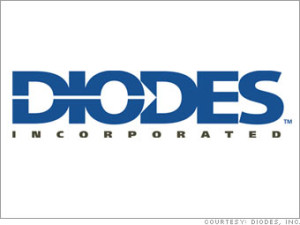 In Local 731 Pension Trust Fund v. Diodes, Inc., the Fifth Circuit affirmed the dismissal of securities claims related to the alleged nondisclosure of labor problems at a Shanghai manufacturing plant, finding a failure to adequately allege scienter. Most basically, the Court observed — “It is important to note the curious nature of the Fund’s claims. To recap the relevant facts: during the class period, Diodes repeatedly warned investors of a labor shortage that would affect its output in the first two quarters of 2011; Diodes accurately warned the precise impact this labor shortage would have on its financial results, not once, but twice. Yet the Fund contends that more disclosure was required.” The Court went on to reject arguments about the unique knowledge of the relevant executives, the company’s decision to make an early product shipment (noting this would have made the labor problem worse and more apparent), and circumstances of an insider’s stock sales. No. 14-41141 (Jan. 13, 2016).
In Local 731 Pension Trust Fund v. Diodes, Inc., the Fifth Circuit affirmed the dismissal of securities claims related to the alleged nondisclosure of labor problems at a Shanghai manufacturing plant, finding a failure to adequately allege scienter. Most basically, the Court observed — “It is important to note the curious nature of the Fund’s claims. To recap the relevant facts: during the class period, Diodes repeatedly warned investors of a labor shortage that would affect its output in the first two quarters of 2011; Diodes accurately warned the precise impact this labor shortage would have on its financial results, not once, but twice. Yet the Fund contends that more disclosure was required.” The Court went on to reject arguments about the unique knowledge of the relevant executives, the company’s decision to make an early product shipment (noting this would have made the labor problem worse and more apparent), and circumstances of an insider’s stock sales. No. 14-41141 (Jan. 13, 2016).
 Boaz Legacy LP sued Roberts about ownership of land. Roberts argued that the land was located to the north of “the vegetation line along the south bank of the Red River,” which places the land in Oklahoma under the terms of the Red River Boundary Compact. Accordingly, Texas state and federal courts lacked subject matter jurisdiction under the “local action doctrine.” Boaz argued that the Compact did not apply to a boundary dispute among private landowners, but the Fifth Circuit disagreed: “[T]his argument conflates the underlying dispute with the present determination, which is purely jurisdictional.” Boaz Legacy LP v. Roberts, No. 15-10439 (Jan. 11, 2016, unpublished).
Boaz Legacy LP sued Roberts about ownership of land. Roberts argued that the land was located to the north of “the vegetation line along the south bank of the Red River,” which places the land in Oklahoma under the terms of the Red River Boundary Compact. Accordingly, Texas state and federal courts lacked subject matter jurisdiction under the “local action doctrine.” Boaz argued that the Compact did not apply to a boundary dispute among private landowners, but the Fifth Circuit disagreed: “[T]his argument conflates the underlying dispute with the present determination, which is purely jurisdictional.” Boaz Legacy LP v. Roberts, No. 15-10439 (Jan. 11, 2016, unpublished).
 Collins challenged bankruptcy court jurisdiction over “illusory indemnity and contribution claims” that he alleged had no conceivable effect on the bankruptcy estate due to their lack of merit. The Fifth Circuit rejected his argument: “Both the Supreme Court and this court have gravitated away from conflating jurisdiction and merits, and Collins’s proposed standard results in exactly that conflation.” The Court also noted that the claims, based on a principal’s alleged commitment to indemnify its agent, were not “wholly insubstantial and frivolous” on their merits. Collins v. Sidharthan, No. 14-41226 (Dec. 15, 2015).
Collins challenged bankruptcy court jurisdiction over “illusory indemnity and contribution claims” that he alleged had no conceivable effect on the bankruptcy estate due to their lack of merit. The Fifth Circuit rejected his argument: “Both the Supreme Court and this court have gravitated away from conflating jurisdiction and merits, and Collins’s proposed standard results in exactly that conflation.” The Court also noted that the claims, based on a principal’s alleged commitment to indemnify its agent, were not “wholly insubstantial and frivolous” on their merits. Collins v. Sidharthan, No. 14-41226 (Dec. 15, 2015).
 The district court abstained under the “primary jurisdiction” doctrine in deference to a FERC proceeding. On the threshold question of appellate jurisdiction, the Court concluded that Hines v. D’Artois, 531 F.2d 726 (5th Cir. 1976) was still good law, and allowed it to consider an otherwise-interlocutory appeal: “[T]he district court’s order resulted in Occidental being ‘effectively out of court’ and therefore functioned as a final decision.” On the merits, the Court remanded with instructions to not stay the court case indefinitely, but to instead stay for 180 days and assess the status then. Occidental Chem. Corp. v. Louisiana Public Service Comm’n, No. 15-30100 (Jan. 4, 2016).
The district court abstained under the “primary jurisdiction” doctrine in deference to a FERC proceeding. On the threshold question of appellate jurisdiction, the Court concluded that Hines v. D’Artois, 531 F.2d 726 (5th Cir. 1976) was still good law, and allowed it to consider an otherwise-interlocutory appeal: “[T]he district court’s order resulted in Occidental being ‘effectively out of court’ and therefore functioned as a final decision.” On the merits, the Court remanded with instructions to not stay the court case indefinitely, but to instead stay for 180 days and assess the status then. Occidental Chem. Corp. v. Louisiana Public Service Comm’n, No. 15-30100 (Jan. 4, 2016).
 A plaintiff class alleged that Chesapeake’s oil and gas production in the Fort Worth area trespassed on their property interests. The defendants removed under CAFA, the district court remanded under that statute’s “local controversy exception,” and the Fifth Circuit reversed. The key appellate issue was whether the plaintiff class was “narrow” — only current owners of mineral interests — or “broad” — current and former interests since a series of foreclosures began in 2004. The plaintiffs could prove the requisite citizenship to establish the exception for the narrow class, but not the broad. The panel majority found the plaintiffs’ pleading was ambiguous on this point, and based on that conclusion, remanded for a failure to prove that element of the exception. A dissent took issue with the construction of the pleading and what it called “a new rule” of a “presumption in favor of federal jurisdiction.” Arbuckle Mountain Ranch of Texas v. Chesapeake Energy Corp., No. 15-10955 (Jan. 7, 2016).
A plaintiff class alleged that Chesapeake’s oil and gas production in the Fort Worth area trespassed on their property interests. The defendants removed under CAFA, the district court remanded under that statute’s “local controversy exception,” and the Fifth Circuit reversed. The key appellate issue was whether the plaintiff class was “narrow” — only current owners of mineral interests — or “broad” — current and former interests since a series of foreclosures began in 2004. The plaintiffs could prove the requisite citizenship to establish the exception for the narrow class, but not the broad. The panel majority found the plaintiffs’ pleading was ambiguous on this point, and based on that conclusion, remanded for a failure to prove that element of the exception. A dissent took issue with the construction of the pleading and what it called “a new rule” of a “presumption in favor of federal jurisdiction.” Arbuckle Mountain Ranch of Texas v. Chesapeake Energy Corp., No. 15-10955 (Jan. 7, 2016).
 A creditor argued that the bankruptcy court should have used the same property valuation in both the debtor’s bankruptcy case and the creditor’s adversary proceeding against the debtor, citing the doctrines of judicial estoppel and res judicata. The Fifth Circuit disagreed: “The district court correctly held that the valuations under [Bankruptcy Code] §§ 1129 and 506 are two distinct, separate valuations required for different purposes. The feasibility projections under § 1129 were based on [the debtor’s] estimate of ‘monies to be realized from the sale of lots over time’ and anticipated continued development of the Property. The estimate under § 506, on the other hand, was based on an appraisal of the present fair market value of the Property. As a result, [the debtor] did not assume inconsistent positions by presenting two different valuations for two different purposes, nor does the bankruptcy court’s acceptance of a § 1129 feasibility plan constitute a final judgment on the value of the Property under § 506. The doctrines of judicial estoppel and res judicata are not applicable.” Gold Star Construction, Inc. v. Cavu Rock Properties Project I, LLC, No. 15-50455 (Jan. 4, 2015, unpublished).
A creditor argued that the bankruptcy court should have used the same property valuation in both the debtor’s bankruptcy case and the creditor’s adversary proceeding against the debtor, citing the doctrines of judicial estoppel and res judicata. The Fifth Circuit disagreed: “The district court correctly held that the valuations under [Bankruptcy Code] §§ 1129 and 506 are two distinct, separate valuations required for different purposes. The feasibility projections under § 1129 were based on [the debtor’s] estimate of ‘monies to be realized from the sale of lots over time’ and anticipated continued development of the Property. The estimate under § 506, on the other hand, was based on an appraisal of the present fair market value of the Property. As a result, [the debtor] did not assume inconsistent positions by presenting two different valuations for two different purposes, nor does the bankruptcy court’s acceptance of a § 1129 feasibility plan constitute a final judgment on the value of the Property under § 506. The doctrines of judicial estoppel and res judicata are not applicable.” Gold Star Construction, Inc. v. Cavu Rock Properties Project I, LLC, No. 15-50455 (Jan. 4, 2015, unpublished).
 TransCanada has sued in Houston federal court about the Keystone Pipeline, alleging that President Obama exceeded his Constitutional authority by denying the necessary permission to proceed. While this just-filed lawsuit is a long way from Fifth Circuit review, and TransCanada has a substantial business presence in Houston, it comes as no surprise after the rejection of President Obama’s immigration policies in Texas v. United States that this challenge to executive power would be filed in this Circuit. Here is the complaint in TransCanada v. Kerry.
TransCanada has sued in Houston federal court about the Keystone Pipeline, alleging that President Obama exceeded his Constitutional authority by denying the necessary permission to proceed. While this just-filed lawsuit is a long way from Fifth Circuit review, and TransCanada has a substantial business presence in Houston, it comes as no surprise after the rejection of President Obama’s immigration policies in Texas v. United States that this challenge to executive power would be filed in this Circuit. Here is the complaint in TransCanada v. Kerry.
 The bankruptcy debtor owned a large candle factory; after a year of effort, the trustee gave up trying to realize more value on the factory property than what was owed on the outstanding mortgages, and abandoned the property to Southwest Securities. The remaining legal issue was: “Should the estate or the secured creditor pay the property’s maintenance expenses incurred while the trustee was trying to sell the property?”
The bankruptcy debtor owned a large candle factory; after a year of effort, the trustee gave up trying to realize more value on the factory property than what was owed on the outstanding mortgages, and abandoned the property to Southwest Securities. The remaining legal issue was: “Should the estate or the secured creditor pay the property’s maintenance expenses incurred while the trustee was trying to sell the property?”
Section 506(c) of the Bankruptcy Code provides: “The trustee may recover from property securing an allowed secured claim the reasonable, necessary costs and expenses of
preserving, or disposing of, such property to the extent of any benefit to the holder of such claim, including the payment of all ad valorem property taxes with respect to the property.” The Fifth Circuit found that Southwest benefited, and that the costs were fairly taxed against it from sales proceeds: “[W]e accept that an expense which was not incurred primarily to preserve or dispose of encumbered property cannot meet the requirement of being incurred primarily for the benefit of the secured creditor. But we also accept the inverse: that an expense incurred primarily to preserve or dispose of encumbered property meets the requirement. The necessary direct relationship between the expenses and the collateral is obvious here; all of the surcharged expenses related only to preserving the value of the Property and preparing it for sale.” Southwest Securities v. Segner, No. 14-41463 (Dec. 29, 2015).
 Diversity jurisdiction brings unusual claims to the federal courts, none more so than E.C. v. Saraco, in which a girl sued for injuries caused when the neighbors’ poodle attacked her. The poodle owners won summary judgment, and the Fifth Circuit affirmed. The legal issue was the foreseeability of violence by the poodle — whether it was known to have a “vicious and dangerous disposition.” The Court concluded that no fact issue was raised by evidence of (1) the poodle’s tendency to jump when excited, (2) the poodle’s allegedly tender ears, and (3) the girl’s unfamiliarity with the proper way to pet the poodle. No. 15-60434 (Jan. 4, 2016, unpublished). (The above poodle art was drawn by the great Banksy.)
Diversity jurisdiction brings unusual claims to the federal courts, none more so than E.C. v. Saraco, in which a girl sued for injuries caused when the neighbors’ poodle attacked her. The poodle owners won summary judgment, and the Fifth Circuit affirmed. The legal issue was the foreseeability of violence by the poodle — whether it was known to have a “vicious and dangerous disposition.” The Court concluded that no fact issue was raised by evidence of (1) the poodle’s tendency to jump when excited, (2) the poodle’s allegedly tender ears, and (3) the girl’s unfamiliarity with the proper way to pet the poodle. No. 15-60434 (Jan. 4, 2016, unpublished). (The above poodle art was drawn by the great Banksy.)
 Despite the combined starpower of Danny Trejo, Lady Gaga, and Mel Gibson, the movie “Machete Kills” holds a 29% rating on Rotten Tomatoes. That site’s “Critical Consensus” says: “While possessed with the same schlocky lunacy as its far superior predecessor, Machete Kills loses the first installment’s spark in a less deftly assembled sequel.” Perhaps motivated by one of the worst theater openings of all time, the makers of this movie raised constitutional claims about the denial of funding by Texas’s filmmaker incentive program.
Despite the combined starpower of Danny Trejo, Lady Gaga, and Mel Gibson, the movie “Machete Kills” holds a 29% rating on Rotten Tomatoes. That site’s “Critical Consensus” says: “While possessed with the same schlocky lunacy as its far superior predecessor, Machete Kills loses the first installment’s spark in a less deftly assembled sequel.” Perhaps motivated by one of the worst theater openings of all time, the makers of this movie raised constitutional claims about the denial of funding by Texas’s filmmaker incentive program.
The Fifth Circuit affirmed dismissal on the pleadings: “Despite the denial of an Incentive Program grant, Machete Kills was still filmed in Texas, produced, and released. Machete does not dispute that it was free to engage in protected First Amendment activity without the benefit of an Incentive Program grant, and in fact did engage in such activity by making the film. Machete has not shown that it is clearly established that the First Amendment requires a state which has an incentive program like this one to fund films casting the state in a negative light.” Machete Productions LLC v. Page, No. 15-50120 (Dec. 28, 2015).
 In yet another opinion showing that the seemingly simple language of CAFA is anything but, in Robertson v. Exxon Mobil the Fifth Circuit reversed the remand of a mass action, concluding that the district court erred in finding that no plaintiff satisfied the $75,000 amount-in-controversy requirement. No. 15-30920 (Dec. 31, 2015). In a footnote, the Court declined to engage the broader issue of whether at least 100 plaintiffs had to satisfy that requirement, and the Court declined to rule on potentially applicable exceptions to jurisdiction (such as “local controversy”) until the district court addressed them on remand. On the proof point, the Court noted: “(1) [Plaintiff] Eddie Ashley claims that she has suffered, among other harms, emphysema and the wrongful death of her husband from lung cancer; and (2) [Plaintiff] Tommie Jones avers that he developed prostate cancer and a host of other ailments. We hold that it is more likely than not that these plaintiffs seek to recover more than $75,000. Indeed, Plaintiffs’ counsel acknowledged at oral argument that for the plaintiffs who contracted cancer, he would be ‘asking [the] jury, come trial, for a whole lot more than $75,000.'”
In yet another opinion showing that the seemingly simple language of CAFA is anything but, in Robertson v. Exxon Mobil the Fifth Circuit reversed the remand of a mass action, concluding that the district court erred in finding that no plaintiff satisfied the $75,000 amount-in-controversy requirement. No. 15-30920 (Dec. 31, 2015). In a footnote, the Court declined to engage the broader issue of whether at least 100 plaintiffs had to satisfy that requirement, and the Court declined to rule on potentially applicable exceptions to jurisdiction (such as “local controversy”) until the district court addressed them on remand. On the proof point, the Court noted: “(1) [Plaintiff] Eddie Ashley claims that she has suffered, among other harms, emphysema and the wrongful death of her husband from lung cancer; and (2) [Plaintiff] Tommie Jones avers that he developed prostate cancer and a host of other ailments. We hold that it is more likely than not that these plaintiffs seek to recover more than $75,000. Indeed, Plaintiffs’ counsel acknowledged at oral argument that for the plaintiffs who contracted cancer, he would be ‘asking [the] jury, come trial, for a whole lot more than $75,000.'”
 A failed class action alleging sex discrimination by Wal-Mart concluded as follows:
A failed class action alleging sex discrimination by Wal-Mart concluded as follows:
- The named plaintiffs settled with Wal-Mart, and the district court entered final judgment on May 15, 2015;
- Appellants intervened on June 2; and then
- Appellants filed a notice of appeal (as to the dismissed class claims) on June 12.
While the notice of appeal divested the district court of jurisdiction over the pending motion to intervene, the Fifth Circuit may dismiss such an appeal and remand for purposes of considering the motion, which it did here with the agreement of the parties. Odle v. Wal-Mart Stores, Inc., No. 15-10571 (Dec. 16, 2015, unpublished).
 Plaintiffs sued about insulation installed in their home by the defendants, alleging that they “failed to seal off completely areas in which vapors could be transported from the areas under renovation and construction to the existing area[] of the house[,] in which the Commarotos, their three minor children, and their houseguest, Schlegel, were living and sleeping during the construction process.” The district court found that these allegations unambigously fell within the pollution exclusion of the relevant insurance policy and the Fifth Circuit affirmed. The Court declined to consider “deposition testimony by two of the plaintiffs stating that they physically touched and examined the spray foam insulation.” While an exception to the “eight corners rule” could allow consideration of such evidence if “it is initially impossible to discern whether coverage is potentially implicated” (among other matters), the clarity of this pleading precluded its application here. Evanston Ins. Co. v. Lapolla Indus, Inc., No. 15-20213 (Dec. 23, 2015, unpublished) (applying Star-Tex Resources, LLC v. Granite State Ins. Co., 553 F. App’x 366 (5th Cir. 2014)).
Plaintiffs sued about insulation installed in their home by the defendants, alleging that they “failed to seal off completely areas in which vapors could be transported from the areas under renovation and construction to the existing area[] of the house[,] in which the Commarotos, their three minor children, and their houseguest, Schlegel, were living and sleeping during the construction process.” The district court found that these allegations unambigously fell within the pollution exclusion of the relevant insurance policy and the Fifth Circuit affirmed. The Court declined to consider “deposition testimony by two of the plaintiffs stating that they physically touched and examined the spray foam insulation.” While an exception to the “eight corners rule” could allow consideration of such evidence if “it is initially impossible to discern whether coverage is potentially implicated” (among other matters), the clarity of this pleading precluded its application here. Evanston Ins. Co. v. Lapolla Indus, Inc., No. 15-20213 (Dec. 23, 2015, unpublished) (applying Star-Tex Resources, LLC v. Granite State Ins. Co., 553 F. App’x 366 (5th Cir. 2014)).
 The Allens filed for Chapter 13 bankruptcy protection; during the pendency of that case, they sued Mrs. Allen’s employer for injuries allegedly suffered in the workplace. The Fifth Circuit affirmed summary judgment for the employer, finding the three elements of judicial estoppel satisfied by the Allens’ failure to disclose the personal injury suit in the bankruptcy – (1) inconsistent positions, (2) one of which was accepted by a court, and (3) lack of inadvertence by the Allens. The Court also found that the overall balance of equities weighed against the Allens, given the importance of full disclosure to the bankruptcy process. The Court modified the judgment to be without prejudice so the Allens’ trustee could pursue the suit if he or she so desired (although acknowledging potential limitations issues). Allen v. C&H Distributors, Inc., No. 15-30330 (Dec. 23, 2015). The opinion is of broad interest because of its detailed analysis of judicial estoppel under the general three-part test, rather than a more truncated version sometimes employed in bankruptcy cases.
The Allens filed for Chapter 13 bankruptcy protection; during the pendency of that case, they sued Mrs. Allen’s employer for injuries allegedly suffered in the workplace. The Fifth Circuit affirmed summary judgment for the employer, finding the three elements of judicial estoppel satisfied by the Allens’ failure to disclose the personal injury suit in the bankruptcy – (1) inconsistent positions, (2) one of which was accepted by a court, and (3) lack of inadvertence by the Allens. The Court also found that the overall balance of equities weighed against the Allens, given the importance of full disclosure to the bankruptcy process. The Court modified the judgment to be without prejudice so the Allens’ trustee could pursue the suit if he or she so desired (although acknowledging potential limitations issues). Allen v. C&H Distributors, Inc., No. 15-30330 (Dec. 23, 2015). The opinion is of broad interest because of its detailed analysis of judicial estoppel under the general three-part test, rather than a more truncated version sometimes employed in bankruptcy cases.
 Greenwich Insurance Company made a number of errors in its internal accounting about crop insurance premiums. When those mistakes ultimately led to a substantial assessment against it by a state authority, Greenwich argued that the state standards were preempted by regulations associated with the Federal Crop Insurance Act. The Fifth Circuit agreed with the district court that they were not, as the true source of Greenwich’s problems was not the state rules but its own “acts of unjustifiable incompetence”: “The FCIC did not intend to hamstring . . . the operations of state programs . . . simply to protect inattentive insurers from their own mistakes.” Greenwich Ins. Co. v. Mississippi Windstorm Underwrting Ass’n, No. 15-60405 (Dec. 15, 2015).
Greenwich Insurance Company made a number of errors in its internal accounting about crop insurance premiums. When those mistakes ultimately led to a substantial assessment against it by a state authority, Greenwich argued that the state standards were preempted by regulations associated with the Federal Crop Insurance Act. The Fifth Circuit agreed with the district court that they were not, as the true source of Greenwich’s problems was not the state rules but its own “acts of unjustifiable incompetence”: “The FCIC did not intend to hamstring . . . the operations of state programs . . . simply to protect inattentive insurers from their own mistakes.” Greenwich Ins. Co. v. Mississippi Windstorm Underwrting Ass’n, No. 15-60405 (Dec. 15, 2015).
 Emerald City Management, d/b/a the band “Downtown Fever,” won a preliminary injunction against another band with the same name. The Fifth Circuit affirmed, noting the importance of “los[ing] control over the mark’s reputation and goodwill” in establishing irreparable injury, and citing evidence of the plaintiff’s history with the band name, the defendant’s plans to play in the same area, and the defendant’s marketing using that name. Emerald City Management LLC v. Kahn, No. 14-40856 (Dec. 11, 2015, unpublished) (citing Paulsson Geophysical Servs., Inc. v. Sigmar, 529 F.3d 303 (5th Cir. 2008)). (In a later skirmish among these parties, the Court reversed a later preliminary injunction about the use of a Facebook page: “neither shutting down a Facebook account nor blocking administrator access to a Facebook account constitutes ‘use in commerce’ of a trademark.” Emerald City Management LLC v. Kahn, No. 15-40446 (March 8, 2016, unpublished)).
Emerald City Management, d/b/a the band “Downtown Fever,” won a preliminary injunction against another band with the same name. The Fifth Circuit affirmed, noting the importance of “los[ing] control over the mark’s reputation and goodwill” in establishing irreparable injury, and citing evidence of the plaintiff’s history with the band name, the defendant’s plans to play in the same area, and the defendant’s marketing using that name. Emerald City Management LLC v. Kahn, No. 14-40856 (Dec. 11, 2015, unpublished) (citing Paulsson Geophysical Servs., Inc. v. Sigmar, 529 F.3d 303 (5th Cir. 2008)). (In a later skirmish among these parties, the Court reversed a later preliminary injunction about the use of a Facebook page: “neither shutting down a Facebook account nor blocking administrator access to a Facebook account constitutes ‘use in commerce’ of a trademark.” Emerald City Management LLC v. Kahn, No. 15-40446 (March 8, 2016, unpublished)).
 Jose Guzman, writer of the Tejano song Triste Aventuerera, sued Hacienda Records, alleging that its affiliated band “The Hometown Boys” infringed his copyright with their song Cartas de Amor (link below). The Fifth Circuit affirmed judgment for the defendants. After reminding about the significant deference due to the trial court on credibility issues, the Court agreed that Guzman’s evidence about radio play and live performance was properly rejected as to the issue of the defendants’ “opportunity to view” his song. Similarly, while acknowledging similarity in the first sixteen words of both songs, expert testimony showed that the words were set to different music and appeared in other songs as well, thus supporting the trial court’s rejection of his alternative “striking similarity” theory. The Court also declined to adopt a “sliding scale” test for infringement that would be weighted by the degree of similarity between the works at issue.
Jose Guzman, writer of the Tejano song Triste Aventuerera, sued Hacienda Records, alleging that its affiliated band “The Hometown Boys” infringed his copyright with their song Cartas de Amor (link below). The Fifth Circuit affirmed judgment for the defendants. After reminding about the significant deference due to the trial court on credibility issues, the Court agreed that Guzman’s evidence about radio play and live performance was properly rejected as to the issue of the defendants’ “opportunity to view” his song. Similarly, while acknowledging similarity in the first sixteen words of both songs, expert testimony showed that the words were set to different music and appeared in other songs as well, thus supporting the trial court’s rejection of his alternative “striking similarity” theory. The Court also declined to adopt a “sliding scale” test for infringement that would be weighted by the degree of similarity between the works at issue.
 Defendants sought to remove several cases under the “mass action” provisions of CAFA, arguing: “the fact that plaintiffs’ counsel broke up their client base into multiple suits making identical allegations is not a tactic that prevents the assertion of jurisdiction under CAFA.” The Fifth Circuit disagreed, declining to “pierce the pleadings across multiple state court actions,” noting that there had been no effort to consolidate the cases below, and
Defendants sought to remove several cases under the “mass action” provisions of CAFA, arguing: “the fact that plaintiffs’ counsel broke up their client base into multiple suits making identical allegations is not a tactic that prevents the assertion of jurisdiction under CAFA.” The Fifth Circuit disagreed, declining to “pierce the pleadings across multiple state court actions,” noting that there had been no effort to consolidate the cases below, and  observing: “Every other court of appeals confronted with this question has come to the same conclusion: that plaintiffs have the ability to avoid [CAFA ‘mass action’] jurisdiction by filing separate complaints naming less than 100 plaintiffs by not moving for or otherwise proposing joint trial in the state court.” Eagle US 2, LLC v. Abraham et al. (Dec. 11, 2015, unpublished) (on petition for rehearing en banc of denial of petition for review).
observing: “Every other court of appeals confronted with this question has come to the same conclusion: that plaintiffs have the ability to avoid [CAFA ‘mass action’] jurisdiction by filing separate complaints naming less than 100 plaintiffs by not moving for or otherwise proposing joint trial in the state court.” Eagle US 2, LLC v. Abraham et al. (Dec. 11, 2015, unpublished) (on petition for rehearing en banc of denial of petition for review).
 The plaintiff in Stagliano v. Cincinnati Ins. Co. submitted this expert affidavit to establish that alleged hail damage occurred within the insurance policy period. No. 15-10137 (Dec. 11, 2015, unpublished). The affidavit did not succeed, as the Fifth Circuit found it “was little more that an allusion to his credentials, a recitation of the hail damage observed, and a conclusory, ‘subjective opinion’ that the damage resulted from a hail storm within the policy period.” Footnote 2 reviews a “perceived . . . tension between the admissibility requirements for expert testimony and the burdens at summary judgment when expert affidavits are utilized” in a past opinion of the Court.
The plaintiff in Stagliano v. Cincinnati Ins. Co. submitted this expert affidavit to establish that alleged hail damage occurred within the insurance policy period. No. 15-10137 (Dec. 11, 2015, unpublished). The affidavit did not succeed, as the Fifth Circuit found it “was little more that an allusion to his credentials, a recitation of the hail damage observed, and a conclusory, ‘subjective opinion’ that the damage resulted from a hail storm within the policy period.” Footnote 2 reviews a “perceived . . . tension between the admissibility requirements for expert testimony and the burdens at summary judgment when expert affidavits are utilized” in a past opinion of the Court.
 In USHealth Group v. South, applying Texas law, the Fifth Circuit rejected the use of “concerted misconduct estoppel” to compel arbitration against a nonsignatory (citing In re: Merrill Lynch Trust Co. FSB, 235 S.W.3d 185 (Tex. 2007)), and also found no basis for “direct benefits estoppel” because the claims did not arise solely from the contracts with the arbitration clause, and the issues in dispute could be resolved without reference to those contracts (citing In re: Weekley Homes, L.P., 180 S.W.3d 127 (Tex. 2005)). No. 15-10117 (Dec. 8, 2015, unpublished).
In USHealth Group v. South, applying Texas law, the Fifth Circuit rejected the use of “concerted misconduct estoppel” to compel arbitration against a nonsignatory (citing In re: Merrill Lynch Trust Co. FSB, 235 S.W.3d 185 (Tex. 2007)), and also found no basis for “direct benefits estoppel” because the claims did not arise solely from the contracts with the arbitration clause, and the issues in dispute could be resolved without reference to those contracts (citing In re: Weekley Homes, L.P., 180 S.W.3d 127 (Tex. 2005)). No. 15-10117 (Dec. 8, 2015, unpublished).
 Plaintiffs obtained a preliminary injunction freezing many of the Defendants’ assets. The Fifth Circuit affirmed, noting the strong proof on two key topics. As to likelihood of success on RICO and fraud claims: “The [district[ court examined in detail three representative transactions, tracing funds from [Plaintiff] that were intended for legitimate vendors but ended up in accounts owned wholly by the defendants. In each case, [Plaintiff] netted less money than it should have, with the profit going to [Defendant] or his associates.” As to irreparable injury: “[Defendant] had already closed personal and corporate accounts in Hong Kong, containing exclusively money diverted from [Plainitff], transferring some of the funds to his father-in-law. [Defendant] also has international ties, including the co-defendants – natural persons and shell companies alike – who have yet to appear in court. He has experience and sophistication transferring money internationally, suggesting a high risk that funds allegedly belonging to plaintiffs could disappear.” ATN Indus. v. Gross, No. 15-20102 (Dec. 7, 2015, unpublished).
Plaintiffs obtained a preliminary injunction freezing many of the Defendants’ assets. The Fifth Circuit affirmed, noting the strong proof on two key topics. As to likelihood of success on RICO and fraud claims: “The [district[ court examined in detail three representative transactions, tracing funds from [Plaintiff] that were intended for legitimate vendors but ended up in accounts owned wholly by the defendants. In each case, [Plaintiff] netted less money than it should have, with the profit going to [Defendant] or his associates.” As to irreparable injury: “[Defendant] had already closed personal and corporate accounts in Hong Kong, containing exclusively money diverted from [Plainitff], transferring some of the funds to his father-in-law. [Defendant] also has international ties, including the co-defendants – natural persons and shell companies alike – who have yet to appear in court. He has experience and sophistication transferring money internationally, suggesting a high risk that funds allegedly belonging to plaintiffs could disappear.” ATN Indus. v. Gross, No. 15-20102 (Dec. 7, 2015, unpublished).
 A general contractor began an arbitration against several subcontractors about problems with the Sea Breeze Condominiums and Resort in Biloxi, Mississippi. One of the subcontractors resisted the arbitration demand; while it won in district court, the Fifth Circuit reversed, based on this contract language: “If the Contractor has a claim or dispute involving the same general subject matter, either in whole or in part, with any third party if elected by the Contractor, the Subcontractor shall assert its claims and defenses in and shall be bound
A general contractor began an arbitration against several subcontractors about problems with the Sea Breeze Condominiums and Resort in Biloxi, Mississippi. One of the subcontractors resisted the arbitration demand; while it won in district court, the Fifth Circuit reversed, based on this contract language: “If the Contractor has a claim or dispute involving the same general subject matter, either in whole or in part, with any third party if elected by the Contractor, the Subcontractor shall assert its claims and defenses in and shall be bound  by the same forum and in the same proceeding which has jurisdiction over the claims or disputes between the Contractor and such third party.” Unlike other contract terms about arbitration, this clause had no limitation as to the Subcontractor’s claims against a particular party. New Orleans Glass Co. Roy Anderson Corp., No. 15-60083 (Dec. 1, 2015, unpublished).
by the same forum and in the same proceeding which has jurisdiction over the claims or disputes between the Contractor and such third party.” Unlike other contract terms about arbitration, this clause had no limitation as to the Subcontractor’s claims against a particular party. New Orleans Glass Co. Roy Anderson Corp., No. 15-60083 (Dec. 1, 2015, unpublished).
 The defendant appealed a summary judgment against it on a multi-million dollar claim for breach of a settlement agreement, alleging that a novation had replaced that agreement with a new bargain. Taj Al Khairat, Ltd. v. Swiftships Shipbuilders, LLC, No. 15-30195 (Dec. 4, 2015, unpublished). The Fifth Circuit affirmed, noting that while both principals of the defendant were confident about an agreement to resolve the liability under the settlement, a number of unanswered questions remained about subsequent conditions; for example, one testified that the understanding “we will settle all the past dues, and we will move forward if we can procure this contract, the SOC contract, and the performance bond.” (emphasis in opinion). (Another “conditional agreement” case is discussed today on sister blog 600Commerce.)
The defendant appealed a summary judgment against it on a multi-million dollar claim for breach of a settlement agreement, alleging that a novation had replaced that agreement with a new bargain. Taj Al Khairat, Ltd. v. Swiftships Shipbuilders, LLC, No. 15-30195 (Dec. 4, 2015, unpublished). The Fifth Circuit affirmed, noting that while both principals of the defendant were confident about an agreement to resolve the liability under the settlement, a number of unanswered questions remained about subsequent conditions; for example, one testified that the understanding “we will settle all the past dues, and we will move forward if we can procure this contract, the SOC contract, and the performance bond.” (emphasis in opinion). (Another “conditional agreement” case is discussed today on sister blog 600Commerce.)
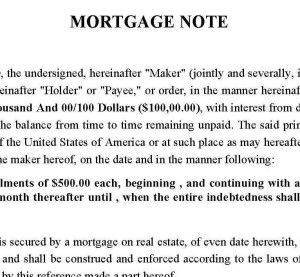 In a wrongful foreclosure case, the borrower alleged that PNC Bank had not proved its ownership of the note. Then, “an attorney representing [defendants] showed an attorney employed by [Barrett-Bowie’s law firm] the original blue ink note signed by Barrett-Bowie. The Firm’s attorney acknowledged that the note was indorsed from the original lender to First Franklin Financial Corporation and from First Franklin Financial Corporation to PNC Bank. The Firm’s attorney retained a copy of the original note and reported what she had seen to her colleagues at the Firm.” Nevertheless, the firm filed two more pleadings repeating the standing allegations, and in response to a summary judgment motion — while not directly disputing the servicer’s proof of standing in response — asked that the court “deny [the servicer’s ]motion ‘in its entirety’ and argued that genuine issues of material fact existed ‘on elements in each of Plaintiff’s remaining causes of action.'” An award of Rule 11 sanctions against the plaintiff’s firm was affirmed in Barrett-Bowie v. Select Portfolio Servicing, Inc., No. 14-11249 (Nov. 25, 2015, unpublished).
In a wrongful foreclosure case, the borrower alleged that PNC Bank had not proved its ownership of the note. Then, “an attorney representing [defendants] showed an attorney employed by [Barrett-Bowie’s law firm] the original blue ink note signed by Barrett-Bowie. The Firm’s attorney acknowledged that the note was indorsed from the original lender to First Franklin Financial Corporation and from First Franklin Financial Corporation to PNC Bank. The Firm’s attorney retained a copy of the original note and reported what she had seen to her colleagues at the Firm.” Nevertheless, the firm filed two more pleadings repeating the standing allegations, and in response to a summary judgment motion — while not directly disputing the servicer’s proof of standing in response — asked that the court “deny [the servicer’s ]motion ‘in its entirety’ and argued that genuine issues of material fact existed ‘on elements in each of Plaintiff’s remaining causes of action.'” An award of Rule 11 sanctions against the plaintiff’s firm was affirmed in Barrett-Bowie v. Select Portfolio Servicing, Inc., No. 14-11249 (Nov. 25, 2015, unpublished).
 Concerto Labs, a chiropractic practice, sued another practice for copyright infringement as to “a short video outlining a diagnostic procedure and a blank form to be filled in while conducting that procedure.” The Fifth Circuit affirmed summary judgment for the defendant as neither interest could be copyrighted. As to the video, “[b]ecause the Appellants cannot own a copyright in a procedure, it does not matter if the procedure presented in one work is the same as or identical to that presented in another.” As to the form, it was “merely ‘designed for recording information and does not in itself convey information.'” Concentro Laboratories, LLC v. Practice Wealth, Ltd., No. 15-10325 (Nov. 30, 2015, unpublished).
Concerto Labs, a chiropractic practice, sued another practice for copyright infringement as to “a short video outlining a diagnostic procedure and a blank form to be filled in while conducting that procedure.” The Fifth Circuit affirmed summary judgment for the defendant as neither interest could be copyrighted. As to the video, “[b]ecause the Appellants cannot own a copyright in a procedure, it does not matter if the procedure presented in one work is the same as or identical to that presented in another.” As to the form, it was “merely ‘designed for recording information and does not in itself convey information.'” Concentro Laboratories, LLC v. Practice Wealth, Ltd., No. 15-10325 (Nov. 30, 2015, unpublished).
 Judgment creditors garnished two oil tankers (including the M/V FMPC 30, right); the garnishees appealed as to the connection between them and the judgment debtors. After reviewing the distinction between “alter ego” theories at the jurisdictional and merits stages, the Fifth Circuit reversed. Finding that “[t]he [district court relied almost exclusively on two ‘organizational charts’ submitted by Plaintiffs (taken from Garnishees’ website),” the Court found that the charts “do not actually depict corporate structure” or ” show the functional relationship among the entities.” Accordingly, the case for “jurisdictional veil piercing” was not established and the garnishment proceeding was dismissed. Licea v. Curacao Drydock Co., No. 14-20619 (Nov. 23, 2015).
Judgment creditors garnished two oil tankers (including the M/V FMPC 30, right); the garnishees appealed as to the connection between them and the judgment debtors. After reviewing the distinction between “alter ego” theories at the jurisdictional and merits stages, the Fifth Circuit reversed. Finding that “[t]he [district court relied almost exclusively on two ‘organizational charts’ submitted by Plaintiffs (taken from Garnishees’ website),” the Court found that the charts “do not actually depict corporate structure” or ” show the functional relationship among the entities.” Accordingly, the case for “jurisdictional veil piercing” was not established and the garnishment proceeding was dismissed. Licea v. Curacao Drydock Co., No. 14-20619 (Nov. 23, 2015).
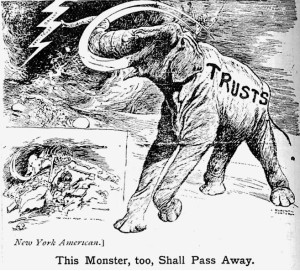 Abandoning its reputation as a skeptic of antitrust claims, the U.S. Court of Appeals for the Fifth Circuit recently affirmed a $150 million judgment in MM Steel, L.P. v. JSW Steel (USA) Inc., a hard-fought battle among steel distributors on the Texas Gulf Coast. No. 14-20267 (Nov. 25, 2015). Judge Stephen Higginson, a relatively recent Obama appointee, wrote the opinion, joined by Judges Edith Brown Clement and Fortunato “Pete” Benavides. A likely landmark in the modern law of antitrust conspiracy, the opinion unhesitatingly applies longstanding rules about “per se” antitrust liability instead of engaging in the more complex economic analysis that has dominated in recent years. By doing so, the opinion has the potential to invigorate antitrust litigation in many situations where competing businesses allegedly join forces against another competitor.
Abandoning its reputation as a skeptic of antitrust claims, the U.S. Court of Appeals for the Fifth Circuit recently affirmed a $150 million judgment in MM Steel, L.P. v. JSW Steel (USA) Inc., a hard-fought battle among steel distributors on the Texas Gulf Coast. No. 14-20267 (Nov. 25, 2015). Judge Stephen Higginson, a relatively recent Obama appointee, wrote the opinion, joined by Judges Edith Brown Clement and Fortunato “Pete” Benavides. A likely landmark in the modern law of antitrust conspiracy, the opinion unhesitatingly applies longstanding rules about “per se” antitrust liability instead of engaging in the more complex economic analysis that has dominated in recent years. By doing so, the opinion has the potential to invigorate antitrust litigation in many situations where competing businesses allegedly join forces against another competitor.
As background, the opinion notes: “In the Gulf Coast steel industry, steel manufacturers sell about half of their steel plate to end users, including companies such as Wal-Mart, Exxon, and General Motors, and sell the other half to distributors who then resell the plate to end users.” The dispute arose when two former employees of a distributor, named Chapel Steel, formed a new distribution company called MM Steel. Chapel’s management, angry at their departure and competition, not only sued MM and its founders for violation of a non-compete agreement, but began an aggressive boycott campaign to cut off MM’s supply of steel plate and put it out of business.
Evidence showed that Chapel’s leadership enlisted other distributors in its attack on MM, and also threatened several steel manufacturers, including Nucor Corporation and JSW Steel, with a boycott if they did not refuse to deal with MM. In particular, JSW received threats from Chapel and another distributor within several weeks of each other, and shortly afterwards, cancelled a supply contract that it had earlier negotiated with MM.
MM went out of business. It sued JSW for breach of contract, and sued Chapel (and other distributors), along with Nucor, JSW, and another manufacturer. After a six-week trial, the Southern District of Texas entered judgment for over $150 million for MM, finding that the distributors formed a conspiracy in violation of Section 1 of the Sherman Act to keep steel away from MM, and that the manufacturers knowingly joined that conspiracy. The distributors settled, leaving Nucor and JSW as the only appellants by the time of the Fifth Circuit’s decision.
The opinion’s analysis began by stating the accepted legal standards in the area. A Section 1 claim requires proof that the defendants “(1) engaged in a conspiracy (2) that restrained trade (3) in a particular market.” That proof must “tend[] to exclude the possibility of independent conduct,” which in a refusal-to-deal case such as this one, means showing that the defendants’ conduct is “inconsistent with the manufacturer’s independent self-interest.”
Applying these standards, the court affirmed the liability finding as to JSW. “The fact that both [distributors’ made . . . threats within several weeks of each other was sufficient evidence for a reasonable juror to conclude that JSW was aware of the horizontal conspiracy to exclude MM from the market.” Then, when JSW responded by terminating its contract with MM, virtually guaranteeing a suit for breach, “[a] reasonable juror also could have concluded that JSW’s abrupt decision to no longer deal with MM following those threats and JSW’s statements regarding that decision tended to exclude the possibility of conduct that was independent of the distributor’s conspiracy.” While JSW contended that its actions were motivated by concern about the Chapel lawsuit against MM, the court found that “[a] reasonable juror could have concluded that JSW’s explanation for its supposedly independent refusal to deal was pretextual.”
The court reversed as to Nucor, who had received only one threat, from Chapel. In response, Nucor introduced evidence that it had an “incumbency practice,” under which it remained loyal to established customers such as Chapel, to maintain a stable supply chain. The court reasoned that “[e]ven if the jury did not credit this practice, MM did not provide evidence that when Nucor first refused to quote MM, Nucor was aware of an agreement between the distributors to foreclose MM from the market. . . . In fact, at the time Nucor first refused to quote MM, Nucor believed that JSW, its competitor, was supplying MM.”
Returning to JSW, the court observed that “[t]he Supreme Court has consistently held that the per se rule [of antitrust liability] is applicable to group boycotts identical to the boycott alleged in this case.” JSW argued that in the recent opinion of Leegin Creative Leather Products v. PSKS, 551 U.S. 877 (2007) when the Supreme Court eliminated per se liability for price-setting vertical agreements (i.e, exclusive dealing arrangements), it necessarily did so for horizontal agreements such as the one among distributors in this case. The court disagreed, concluding: “Purely vertical refusals to deal . . . frequently have procompetitive justifications, such as limiting free riding and increasing specialization. However, the crux of the group boycotts at issue in the cases in which per se liability has always applied is that members of a horizontal conspiracy use vertical agreements anticompetitively to foreclose a competitor from the market.” The court concluded by rejecting a challenge to MM’s damage model.
The MM opinion has considerable significance, both practically and theoretically. Practically, a company in a position like JSW’s is not unsympathetic – on the one hand, it has substantial contract obligations to a new customer, while on the other hand, it confronts serious threats to substantial other and longstanding business. A tough business decision becomes harder when potential Section 1 antitrust liability – which carries with it the threat of treble damages – must be considered.
Theoretically, the court’s affirmation of per se liability connects to an older school of antitrust thought that emphasized bright-line rules over case-by-case analysis. That view has received strong criticism as anachronistic; as Robert Bork wrote many years ago in a famous Yale Law Journal article: “The current shibboleth of per se illegality in existing law conveys a sense of certainty, even of automaticity, which is delusive. The per se concept does not accurately describe the law relating to agreements eliminating competition as it is, as it has been, or as it ever can be.” Yet per se rules remain in place in the antitrust laws, and the MM opinion shows that they are not going away any time soon, absent sweeping action by Congress or the Supreme Court.
 After 15-plus years of litigation, the remaining issues in Art Midwest Inc. v. Clapper related to the calculation of prejudgment interest. No. 14-10973 (Nov. 9, 2015, last before the Fifth Circuit in Art Midwest Inc. v. Atl. Ltd. P’ship XII, 742 F.3d 206 (5th Cir. 2014)). The Court reversed as to the starting date for calculating interest — even though the first judgment by the district court was reversed in part, the date of that judgment was still the proper starting point under Fed. R. App. P. 37(a) and Masinter v. Tenneco Oil Co., 929 F.2d 191 (5th Cir. 1991), aff’d in relevant part, 938 F.2d 536 (5th Cir. 1991). The opinion also touches on waiver and law-of-the-case issues addressed in the 2014 appeal.
After 15-plus years of litigation, the remaining issues in Art Midwest Inc. v. Clapper related to the calculation of prejudgment interest. No. 14-10973 (Nov. 9, 2015, last before the Fifth Circuit in Art Midwest Inc. v. Atl. Ltd. P’ship XII, 742 F.3d 206 (5th Cir. 2014)). The Court reversed as to the starting date for calculating interest — even though the first judgment by the district court was reversed in part, the date of that judgment was still the proper starting point under Fed. R. App. P. 37(a) and Masinter v. Tenneco Oil Co., 929 F.2d 191 (5th Cir. 1991), aff’d in relevant part, 938 F.2d 536 (5th Cir. 1991). The opinion also touches on waiver and law-of-the-case issues addressed in the 2014 appeal.
 Fortune Natural Resources made a claim in the bankruptcy of an oil exploration company for roughly $3 million related to decommisioning a lease. Fortune alleged that adjustments to a sale order hurt its right of recovery on that claim. The Fifth Circuit disagreed and found no standing, observing: “Fortune’s argument that it meets the ‘person aggrieved’ standard because it has already received a letter from . . . mandating that it decommission its Lease misses the mark. Fortune’s payment of decommissioning costs may show an injury, but it does not show that the bankruptcy court’s order caused this injury. This court’s jurisprudence states that the order of the bankruptcy court must directly and adversely affect the appellant pecuniarily. Having failed to present sufficient evidence to show that Fortune was directly and adversely affected pecuniarily by the order of the bankruptcy court, Fortune does not meet the ‘person aggrieved” test.” Fortune Natural Resources Corp. v. United States Dep’t of the Interior, No. 15-20151 (Nov. 19, 2015, unpublished).
Fortune Natural Resources made a claim in the bankruptcy of an oil exploration company for roughly $3 million related to decommisioning a lease. Fortune alleged that adjustments to a sale order hurt its right of recovery on that claim. The Fifth Circuit disagreed and found no standing, observing: “Fortune’s argument that it meets the ‘person aggrieved’ standard because it has already received a letter from . . . mandating that it decommission its Lease misses the mark. Fortune’s payment of decommissioning costs may show an injury, but it does not show that the bankruptcy court’s order caused this injury. This court’s jurisprudence states that the order of the bankruptcy court must directly and adversely affect the appellant pecuniarily. Having failed to present sufficient evidence to show that Fortune was directly and adversely affected pecuniarily by the order of the bankruptcy court, Fortune does not meet the ‘person aggrieved” test.” Fortune Natural Resources Corp. v. United States Dep’t of the Interior, No. 15-20151 (Nov. 19, 2015, unpublished).
 A mortgage servicer can violate the Texas Finance Code by asserting legal rights it does not actually have. See McCaig v. Wells Fargo Bank, 788 F.3d 463 (5th Cir. 2015). But seemingly inconsistent communications by a servicer do not violate the Code:
A mortgage servicer can violate the Texas Finance Code by asserting legal rights it does not actually have. See McCaig v. Wells Fargo Bank, 788 F.3d 463 (5th Cir. 2015). But seemingly inconsistent communications by a servicer do not violate the Code:
“[Plaintiff] does not contend that any one letter is a misrepresentation in
and of itself but rather that the amounts differ, so the letters are misleading
as a whole. But the letters explicitly state that they are describing two different
types of obligations: notices of the entire outstanding obligation and notices
of the amount due to bring the loan current. Each category is internally consistent
and consistent with the other. [Plaintiff’s] amount to bring the loan current
continued to grow over time because she was not making adequate payments
and still occupied the property. The total outstanding obligation grew for the
same reason. The letters were not misrepresentations but, instead, were
accurate descriptions of two different types of obligations and were specifically
identified as such.”
Rucker v. Bank of America, 15-10373 (Nov. 20, 2015).
 Cameron International, a main defendant in the Deepwater Horizon cases, successfully sued Liberty Insurance to help cover its substantial settlement costs. After affirming on the merits, the Fifth Circuit certified this question to the Texas Supreme Court: “Whether, to maintain a cause of action under Chapter 541 of the Texas Insurance Code against an insurer that wrongfully withheld policy benefits, an insured must allege and prove an injury independent from the denied policy benefits?” Cameron International Corp. v. Liberty Ins. Underwriters, Inc., No. 14-31321 (Nov. 19, 2015).
Cameron International, a main defendant in the Deepwater Horizon cases, successfully sued Liberty Insurance to help cover its substantial settlement costs. After affirming on the merits, the Fifth Circuit certified this question to the Texas Supreme Court: “Whether, to maintain a cause of action under Chapter 541 of the Texas Insurance Code against an insurer that wrongfully withheld policy benefits, an insured must allege and prove an injury independent from the denied policy benefits?” Cameron International Corp. v. Liberty Ins. Underwriters, Inc., No. 14-31321 (Nov. 19, 2015).
The district court in Naranjo v. Thompson found that Naranjo, a prisoner in the Reeves County Detention Center, had shown “exceptional circumstances” that warranted the appointment of counsel to pursue his civil rights claims about the conditions of his incarceration. (Foremost among them was the prisoner’s inability to review a number of documents that were filed under seal due to security concerns.) The court went on to conclude, however, that no local attorneys were available and that it lacked the power to make a compulsory appointment. The Fifth Circuit reversed, finding that a district court has the inherent power to make such an appointment, but reminding that “this is a power of last resort” and that “[i]nherent powers ‘must be used with great restraint and caution.'” Accordingly, the Court reversed a summary judgment for the defendants and remanded for proceedings consistent with its ruling about inherent power.
 U.S. Bank sent notices of acceleration, and began foreclosure proceedings, several times before suing for judicial foreclosure. The borrowers contended that suit was time-barred. The Fifth Circuit disagreed, finding that the bank’s second notice “unequivocally manifested an intent to abandon the previous acceleration and provided the [borrowers] with an opportunity to avoid foreclosure if they cured their arrearage. As a result, the statute of limitations period under [Tex. Civ. Prac. & Rem. Code] § 16.035(a) ceased to run at that point and a new limitations period did not begin to accrue until [they] defaulted again and U.S. Bank exercised its right to accelerate thereafter.” Boren v. U.S. Nat’l Bank Ass’n. No. 14-20718 (Oct. 26, 2015).
U.S. Bank sent notices of acceleration, and began foreclosure proceedings, several times before suing for judicial foreclosure. The borrowers contended that suit was time-barred. The Fifth Circuit disagreed, finding that the bank’s second notice “unequivocally manifested an intent to abandon the previous acceleration and provided the [borrowers] with an opportunity to avoid foreclosure if they cured their arrearage. As a result, the statute of limitations period under [Tex. Civ. Prac. & Rem. Code] § 16.035(a) ceased to run at that point and a new limitations period did not begin to accrue until [they] defaulted again and U.S. Bank exercised its right to accelerate thereafter.” Boren v. U.S. Nat’l Bank Ass’n. No. 14-20718 (Oct. 26, 2015).
 Robert Namer had a Louisiana business that used the name “Voice of America,” and encountered intellectual property trouble with the Voice of America information service operated by the U.S. Government. (Incidentally, I recommend some study of the VOA’s “Simple English” programming, which uses a 1,500-word vocabulary, for anyone interested in straightforward writing.) Namer lost at trial and challenged the VOA’s audience survey on appeal. The Fifth Circuit affirmed: “It was appropriate for [the VOA’s expert] to survey potential consumers of
Robert Namer had a Louisiana business that used the name “Voice of America,” and encountered intellectual property trouble with the Voice of America information service operated by the U.S. Government. (Incidentally, I recommend some study of the VOA’s “Simple English” programming, which uses a 1,500-word vocabulary, for anyone interested in straightforward writing.) Namer lost at trial and challenged the VOA’s audience survey on appeal. The Fifth Circuit affirmed: “It was appropriate for [the VOA’s expert] to survey potential consumers of  Namer’s website to determine if they might be confused into believing they were viewing the website of the government-run VOA (and 19.1% of them were confused.)” The Court also rejected a laches argument because Namer did not show prejudice; “[c]ontinued routine use of the website during the time when the Board allegedly sat on its rights is all that Namer has established.” Namer v. Voice of America, No. 14-31353 (Oct. 26, 2015, unpublished). The opinion helpfully summarizes recent Circuit authority on both the survey and laches issues.
Namer’s website to determine if they might be confused into believing they were viewing the website of the government-run VOA (and 19.1% of them were confused.)” The Court also rejected a laches argument because Namer did not show prejudice; “[c]ontinued routine use of the website during the time when the Board allegedly sat on its rights is all that Namer has established.” Namer v. Voice of America, No. 14-31353 (Oct. 26, 2015, unpublished). The opinion helpfully summarizes recent Circuit authority on both the survey and laches issues.
T reaty Energy sued for its damages after an involuntary bankruptcy petition against it was dismissed. One of its claims sought damages for losses in connection with attempts to sell its restricted stock during that period. The Fifth Circuit affirmed summary judgment for the defendants, noting: (1) “Though the sales price of restricted shares did fluctuate, it averaged 0.5¢ immediately before, during, and after the pendency of the involuntary petition, and (2) the affiant about an alleged plan to sell restricted shares at a substantial discount lacked personal knowledge, claiming only that he “did assist in the process when requested, which included gathering information when given direct instructions by his superiors.” Treaty Energy Corp. v. Hallin, No. 15-30113 (Oct. 27, 2015, unpublished).
reaty Energy sued for its damages after an involuntary bankruptcy petition against it was dismissed. One of its claims sought damages for losses in connection with attempts to sell its restricted stock during that period. The Fifth Circuit affirmed summary judgment for the defendants, noting: (1) “Though the sales price of restricted shares did fluctuate, it averaged 0.5¢ immediately before, during, and after the pendency of the involuntary petition, and (2) the affiant about an alleged plan to sell restricted shares at a substantial discount lacked personal knowledge, claiming only that he “did assist in the process when requested, which included gathering information when given direct instructions by his superiors.” Treaty Energy Corp. v. Hallin, No. 15-30113 (Oct. 27, 2015, unpublished).
 In an opinion with enormous policy impact, the Fifth Circuit has affirmed the injunction of President Obama’s executive actions about immigration. Texas v. United States, No. 15-40238 (revised Nov. 25, 2015). Judge Smith wrote for the 2-judge majority, joined by Judge Elrod — an unsurprising outcome, since they formed the majority in the Court’s earlier opinion that denied an interim stay. Judge King dissented. A petition for Supreme Court review is a certainty. A good representative article about the decision appears in The Atlantic.
In an opinion with enormous policy impact, the Fifth Circuit has affirmed the injunction of President Obama’s executive actions about immigration. Texas v. United States, No. 15-40238 (revised Nov. 25, 2015). Judge Smith wrote for the 2-judge majority, joined by Judge Elrod — an unsurprising outcome, since they formed the majority in the Court’s earlier opinion that denied an interim stay. Judge King dissented. A petition for Supreme Court review is a certainty. A good representative article about the decision appears in The Atlantic.
The full Fifth Circuit has voted to rehear en banc the case of Flagg v. Stryker Corporation, a deceptively complicated dispute about the role of a pre-suit review process in determining how to consider a medical malpractice claim in the analysis of the parties’ citizenship.
 The Pyes’ home, valued at $195,000 before Hurricane Ike, was destroyed by that storm. After they recovered under various insurance policies, the Fifth Circuit found that further recovery under a flood insurance policy would be an impermissible double recovery. Noting that federal common law applied in this area rather than Texas law, the Court nevertheless found that Texas’s emphasis on fair market value was persuasive, and set the $195,000 valuation as the cap on recovery. While reaching this result, the Court reminded that “the question of the proper measure of recovery under a policy, which is controlled by policy language when defined in the contract as it is here, as distinct from the question of how the bar on double recovery is applied.” Pye v. Fidelity Nat’l Prop. & Cas. Ins. Co., No. 14-40315 (Nov. 6, 2015).
The Pyes’ home, valued at $195,000 before Hurricane Ike, was destroyed by that storm. After they recovered under various insurance policies, the Fifth Circuit found that further recovery under a flood insurance policy would be an impermissible double recovery. Noting that federal common law applied in this area rather than Texas law, the Court nevertheless found that Texas’s emphasis on fair market value was persuasive, and set the $195,000 valuation as the cap on recovery. While reaching this result, the Court reminded that “the question of the proper measure of recovery under a policy, which is controlled by policy language when defined in the contract as it is here, as distinct from the question of how the bar on double recovery is applied.” Pye v. Fidelity Nat’l Prop. & Cas. Ins. Co., No. 14-40315 (Nov. 6, 2015).
 Cordero, a district sales manager for Avon, contended that she was due a $70,850 bonus for the first quarter of 2013. Avon paid her $1,200, noting that several sales leaders who reported to her had created roughly $450,000 of fraudulent orders (although Cordero was not involved). Nevertheless, Cordero contended that the terms “met” and “achievement”
Cordero, a district sales manager for Avon, contended that she was due a $70,850 bonus for the first quarter of 2013. Avon paid her $1,200, noting that several sales leaders who reported to her had created roughly $450,000 of fraudulent orders (although Cordero was not involved). Nevertheless, Cordero contended that the terms “met” and “achievement”  in her compensation agreement referred to product that was “ordered, shipped, and notated on Avon’s quarterly report.” The Fifth Circuit agreed with Avon that those terms necessarily referred to legitimate activity; otherwise, the contract did not advance a sensible business goal. Cordero v. Avon Products, No. 15-40563 (Oct. 29, 2015, unpublished).
in her compensation agreement referred to product that was “ordered, shipped, and notated on Avon’s quarterly report.” The Fifth Circuit agreed with Avon that those terms necessarily referred to legitimate activity; otherwise, the contract did not advance a sensible business goal. Cordero v. Avon Products, No. 15-40563 (Oct. 29, 2015, unpublished).
 Cardoni v. Prosperity Bank, an appeal from a preliminary injunction ruling in a noncompete case, involved a clash between Texas and Oklahoma law, and led to these noteworthy holdings from the Fifth Circuit in this important area for commercial litigators:
Cardoni v. Prosperity Bank, an appeal from a preliminary injunction ruling in a noncompete case, involved a clash between Texas and Oklahoma law, and led to these noteworthy holdings from the Fifth Circuit in this important area for commercial litigators:
- Under the Texas Supreme Court’s weighing of the relevant choice-of-law factors, Oklahoma has a stronger interest in the enforcement of a noncompete than Texas, “with the employees located in Oklahoma and employer based in Texas”;
- As also noted by that Court, “Oklahoma has a clear policy against enforcement of most noncompetition agreements,” which is not so strong as to nonsolicitation agreements;
- The district court did not clearly err in declining to enforce a nondisclosure agreement, given the unsettled state of Texas law on the “inevitable disclosure” doctrine; and
- “[T]he University of Texas leads the University of Oklahoma 61-44-5 in the Red River Rivalry.”
No. 14-20682 (Oct. 29, 2015).
 The Howard Hughes Company sold lots, and provided necessary infrastructure, in a planned development near Las Vegas. The IRS did not let it take advantage of a special gain calculation for “home construction contracts,” and the Fifth Circuit agreed. The key statutory interpretation principle (after the basic one that tax exemptions are strictly construed) was “the rule against superfluities,” under which an argument about one statutory provision fails if it makes another one redundant. Howard Hughes Co. v. Commissioner of Internal Revenue, No. 14-60915 (revised Dec. 7, 2015).
The Howard Hughes Company sold lots, and provided necessary infrastructure, in a planned development near Las Vegas. The IRS did not let it take advantage of a special gain calculation for “home construction contracts,” and the Fifth Circuit agreed. The key statutory interpretation principle (after the basic one that tax exemptions are strictly construed) was “the rule against superfluities,” under which an argument about one statutory provision fails if it makes another one redundant. Howard Hughes Co. v. Commissioner of Internal Revenue, No. 14-60915 (revised Dec. 7, 2015).
 Happy Halloween, with the most recent “5 cases to know” update from 600Camp – you can read it here, complete with case links.
Happy Halloween, with the most recent “5 cases to know” update from 600Camp – you can read it here, complete with case links.
 In 2013, a Fifth Circuit panel reversed the NLRB and held that “an employer does not engage in unfair labor practices by maintaining and enforcing an arbitration agreement prohibiting employee class or collective actions and requiring employment-related claims to be resolved through individual arbitration.” D.R. Horton, Inc. v. NLRB, 737 F.3d 344 (5th Cir. 2013). The NLRB, not bound in other jurisdictions by that holding, reaffirmed its original holding in the D.R. Horton case in another matter involving Murphy Oil. Unfortunately for the NLRB, the venue rules for review of its decisions allowed Murphy to appeal to the Fifth Circuit, which – unsurprisingly – again reversed the NLRB. As in the prior case, the Court did not reverse as to a requirement that the employer clarify its documents to be clear that employees were not waiving the right to make Board charges. Murphy Oil USA, Inc. v. NLRB, No. 14-60800 (Oct. 26, 2015).
In 2013, a Fifth Circuit panel reversed the NLRB and held that “an employer does not engage in unfair labor practices by maintaining and enforcing an arbitration agreement prohibiting employee class or collective actions and requiring employment-related claims to be resolved through individual arbitration.” D.R. Horton, Inc. v. NLRB, 737 F.3d 344 (5th Cir. 2013). The NLRB, not bound in other jurisdictions by that holding, reaffirmed its original holding in the D.R. Horton case in another matter involving Murphy Oil. Unfortunately for the NLRB, the venue rules for review of its decisions allowed Murphy to appeal to the Fifth Circuit, which – unsurprisingly – again reversed the NLRB. As in the prior case, the Court did not reverse as to a requirement that the employer clarify its documents to be clear that employees were not waiving the right to make Board charges. Murphy Oil USA, Inc. v. NLRB, No. 14-60800 (Oct. 26, 2015).
Ybarra sued the Dish Network, alleging that he received seven calls from it in violation if the Telephone Consumer Protection Act. The trial court granted partial summary judgment for Ybarra on three of the calls, after which the parties agreed to the dismissal of the remaining claims. Dish appealed, and Ybarra objected because the final judgment did  not reserve Dish’s right to appeal. Distinguishing the much-criticized case of Amstar Corp. v. Southern Pacific, 607 F.2d 1100 (5th Cir. 1979), the Fifth Circuit concluded: “Amstar only precludes the appeal of a claim directly covered by the consent judgment. Here, claims subject the partial summary judgment are independent of the settled claims. The reservation of a right to appeal [in the settlement agreement] was effective.” Ybarra v. Dish Network, No. 14-11316 (Oct. 20, 2015).
not reserve Dish’s right to appeal. Distinguishing the much-criticized case of Amstar Corp. v. Southern Pacific, 607 F.2d 1100 (5th Cir. 1979), the Fifth Circuit concluded: “Amstar only precludes the appeal of a claim directly covered by the consent judgment. Here, claims subject the partial summary judgment are independent of the settled claims. The reservation of a right to appeal [in the settlement agreement] was effective.” Ybarra v. Dish Network, No. 14-11316 (Oct. 20, 2015).
 Guzman sued Celadon Trucking for personal injuries. On May 9, 2011, Celadon’s counsel asked him to undergo an independent medical exam. On May 27, Guzman said in his deposition that he intended to undergo back surgery. Celadon later contended that his surgery constituted spoliation of evidence, and requested an adverse jury instruction. The Fifth Circuit affirmed its denial, noting: “After [Celadon’s counsel] received this disclosure in the deposition, they made no request to be informed of his surgery date, nor did they ask that he delay surgery pending his examination. Only after the examination was completed did [they] assert that the surgery had meaningfully altered evidence. While the timing of Guzman’s surgery may seem strange, there is no evidence to suggest that he acted in a manner intended to deceive [Celadon] or that he undertook the surgery with the intent of destroying or altering evidence.” Guzman v. Jones, No. 15-40007 (Oct. 22, 2015).
Guzman sued Celadon Trucking for personal injuries. On May 9, 2011, Celadon’s counsel asked him to undergo an independent medical exam. On May 27, Guzman said in his deposition that he intended to undergo back surgery. Celadon later contended that his surgery constituted spoliation of evidence, and requested an adverse jury instruction. The Fifth Circuit affirmed its denial, noting: “After [Celadon’s counsel] received this disclosure in the deposition, they made no request to be informed of his surgery date, nor did they ask that he delay surgery pending his examination. Only after the examination was completed did [they] assert that the surgery had meaningfully altered evidence. While the timing of Guzman’s surgery may seem strange, there is no evidence to suggest that he acted in a manner intended to deceive [Celadon] or that he undertook the surgery with the intent of destroying or altering evidence.” Guzman v. Jones, No. 15-40007 (Oct. 22, 2015).
 After losing a state court lawsuit, Martin Resource Management settled with its primary insurer (Zurich) for less than policy limits. Axis, the excess carrier, won summary judgment with the argument that this settlement did not trigger coverage, and the Fifth Circuit affirmed. The Axis policy said: “The Insurance afforded under this Policy shall apply only after all applicable Underlying Insurance . . . has been exhausted by actual payment under such Underlying Insurance[.]” Martin Resource Management Corp. v. Axis Ins. Co., No. 14-40512 (Oct. 21, 2015) (applying Citigroup, Inc. v. Federal Ins. Co., 649 F.3d 367, 371-73 (5th Cir. 2011)).
After losing a state court lawsuit, Martin Resource Management settled with its primary insurer (Zurich) for less than policy limits. Axis, the excess carrier, won summary judgment with the argument that this settlement did not trigger coverage, and the Fifth Circuit affirmed. The Axis policy said: “The Insurance afforded under this Policy shall apply only after all applicable Underlying Insurance . . . has been exhausted by actual payment under such Underlying Insurance[.]” Martin Resource Management Corp. v. Axis Ins. Co., No. 14-40512 (Oct. 21, 2015) (applying Citigroup, Inc. v. Federal Ins. Co., 649 F.3d 367, 371-73 (5th Cir. 2011)).
 Hilda Garza sued Starr County for wrongfully discharging her as a county attorney, in retaliation for announcing her candidacy for the local school board, and she won a $1.4 million verdict for front pay at trial. The district court set aside the verdict as advisory, reasoning that it went to an issue of equitable relief, and allowed the County to offer her reinstatement as an alternative remedy. The Fifth Circuit reversed. While Fed. R. Civ. P. 39(c) allows an advisory jury, it does not apply when: (1) the parties voluntarily submit an issue to a jury without formal objection, and (2) the district court does not announce in advance that the verdict is advisory. Garza v. Starr County, Texas, No. 14-41343 (Oct. 20, 2015, unpublished) (citing, inter alia, Alcatel USA, Inc. v. DGI Techs., Inc., 166 F.3d 772 (5th Cir. 1999)). (The County also challenged the award as excessive; while noting that the “more prudent course” would have been for the County to cross-appeal, the Court allowed the County to raise that issue on remand — although noting that the County’s lack of earlier objections would limit what it could raise.)
Hilda Garza sued Starr County for wrongfully discharging her as a county attorney, in retaliation for announcing her candidacy for the local school board, and she won a $1.4 million verdict for front pay at trial. The district court set aside the verdict as advisory, reasoning that it went to an issue of equitable relief, and allowed the County to offer her reinstatement as an alternative remedy. The Fifth Circuit reversed. While Fed. R. Civ. P. 39(c) allows an advisory jury, it does not apply when: (1) the parties voluntarily submit an issue to a jury without formal objection, and (2) the district court does not announce in advance that the verdict is advisory. Garza v. Starr County, Texas, No. 14-41343 (Oct. 20, 2015, unpublished) (citing, inter alia, Alcatel USA, Inc. v. DGI Techs., Inc., 166 F.3d 772 (5th Cir. 1999)). (The County also challenged the award as excessive; while noting that the “more prudent course” would have been for the County to cross-appeal, the Court allowed the County to raise that issue on remand — although noting that the County’s lack of earlier objections would limit what it could raise.)
 The defendants in Bartel v. Alcoa Steamship Co. sought to remove three Jones Act cases to federal court under the Federal Officer Removal Statute, 28 U.S.C. § 1442(a)(1). While each of the cases involved a United States Naval Ship (one owned by the Navy but operated by civil contractors), “no evidence show[ed] that the government actually exercised continuing oversight over operations aboard ship,” meaning that “the Federal Officer Defendants operated the vessels in a largely independent fashion and, at a minimum, were free to adopt the safety measures the plaintiffs now allege would have prevented their injuries.” Accordingly, the Fifth Circuit affirmed the remand of the cases. No. 15-30004 (Oct. 19, 2015). [As a procedural note, those defendants had already been dismissed, but their dismissal did not affect the analysis of whether removal was proper at the time it occurred.]
The defendants in Bartel v. Alcoa Steamship Co. sought to remove three Jones Act cases to federal court under the Federal Officer Removal Statute, 28 U.S.C. § 1442(a)(1). While each of the cases involved a United States Naval Ship (one owned by the Navy but operated by civil contractors), “no evidence show[ed] that the government actually exercised continuing oversight over operations aboard ship,” meaning that “the Federal Officer Defendants operated the vessels in a largely independent fashion and, at a minimum, were free to adopt the safety measures the plaintiffs now allege would have prevented their injuries.” Accordingly, the Fifth Circuit affirmed the remand of the cases. No. 15-30004 (Oct. 19, 2015). [As a procedural note, those defendants had already been dismissed, but their dismissal did not affect the analysis of whether removal was proper at the time it occurred.]
 In a case that has now gone en banc, the plaintiffs in Torres v. S.G.E. Management, 805 F.3d 145 (5th Cir. 2015), alleged that they were victims of an alleged pyramid scheme about a multi-level marketing program to sell electricity. The district court certified a class, acknowledging that the plaintiffs could not show a common misrepresentation, but concluding that they could show a common failure to disclose the illegality of such a scheme. In other words, “Because it can rationally be assumed (at least without any contravening evidence) that the legality of the Ignite program was a bedrock assumption of every class member, a showing that the program was actually a facially illegal pyramid scheme would provide the necessary proximate cause.”
In a case that has now gone en banc, the plaintiffs in Torres v. S.G.E. Management, 805 F.3d 145 (5th Cir. 2015), alleged that they were victims of an alleged pyramid scheme about a multi-level marketing program to sell electricity. The district court certified a class, acknowledging that the plaintiffs could not show a common misrepresentation, but concluding that they could show a common failure to disclose the illegality of such a scheme. In other words, “Because it can rationally be assumed (at least without any contravening evidence) that the legality of the Ignite program was a bedrock assumption of every class member, a showing that the program was actually a facially illegal pyramid scheme would provide the necessary proximate cause.”
The Fifth Circuit disagreed: “[A]n investor could reasonably choose to knowingly invest in a pyramid scheme in the hope that they would make money. As we have already explained, a pyramid scheme provides an opportunity for those at the top of the pyramid to profit from their investments. While many of the Plaintiffs might have decided to invest in the scheme in the belief that it was legal, it is equally possible that many of the Plaintiffs chose to invest in the scheme in the belief that, legal or illegal, it provided them with an opportunity to make money.” Accordingly, because Plaintiffs had to establish reliance with individualized proof, the Court decertified the class.
A detailed dissent warned: “By erecting this barrier to class certification based on nothing more than the theoretical possibility of prior knowledge of illegality, the panel majority creates an insurmountable barrier in this circuit to future class certification of cases that claim the presence of an illegal pyramid scheme. But, even worse, because individuals who are duped into joining such schemes uniformly invest relatively few dollars, none will possibly be able to afford to litigate their individual claims separately. Absent the availability of a class action, there simply will be no possibility of court challenges to such pyramid schemes.”
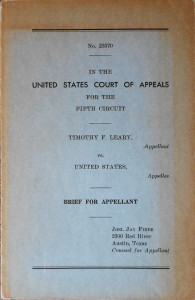 In a bankruptcy appeal to district court, the appellant’s brief was due on November 4. It did not file; the appellee moved to dismiss a month later, and the appellant was denied leave to file late. The Fifth Circuit found no abuse of discretion in that decision, looking to the factors about leave for late filings identified in Salts v. Epps, 676 F.3d 468, 474 & n.13 (5th Cir. 2012). The Court noted: “In the order granting Tarbox’s motion to dismiss, the district court found: 1) ‘the delay of over one month has prejudiced Appellee’ in its state court suit against [Appellant]; 2) the ‘thirty-four day delay’ ‘is substantial, and could have been easily avoided through basic diligence’; 3) ‘Appellant’s failure to exercise diligence in filing and pursuing its appeal was the sole reason for the delay’; and 4) ‘“Appellant has not shown good cause to excuse the late filing.” Neurology & Neurophysiology Assocs., P.A. v. Tarbox, No. 15-50105 (Oct. 15, 2015, unpublished).
In a bankruptcy appeal to district court, the appellant’s brief was due on November 4. It did not file; the appellee moved to dismiss a month later, and the appellant was denied leave to file late. The Fifth Circuit found no abuse of discretion in that decision, looking to the factors about leave for late filings identified in Salts v. Epps, 676 F.3d 468, 474 & n.13 (5th Cir. 2012). The Court noted: “In the order granting Tarbox’s motion to dismiss, the district court found: 1) ‘the delay of over one month has prejudiced Appellee’ in its state court suit against [Appellant]; 2) the ‘thirty-four day delay’ ‘is substantial, and could have been easily avoided through basic diligence’; 3) ‘Appellant’s failure to exercise diligence in filing and pursuing its appeal was the sole reason for the delay’; and 4) ‘“Appellant has not shown good cause to excuse the late filing.” Neurology & Neurophysiology Assocs., P.A. v. Tarbox, No. 15-50105 (Oct. 15, 2015, unpublished).
 Eric Eddy alleged injury from a printing press. The Fifth Circuit affirmed for lack of personal jurisdiction in Texas, holding:
Eric Eddy alleged injury from a printing press. The Fifth Circuit affirmed for lack of personal jurisdiction in Texas, holding:
1. “Once the press was installed in Mississippi, it exited the stream of commerce because the Mississippi buyer was a consumer of the product, not a distributor or retailer.” After that point, the movement of the press “was the result of ‘fortuitous’ and ‘attenuated’ acts of third parties[.]” (The last sentence echoes the Supreme Court’s recent emphasis of this general concept in Walden v. Fiore, 134 S. Ct. 1115 (2014)).
2. While spare parts for the press were shipped by the defendant to Texas, no evidence showed that those parts contributed to the plaintiff’s injury, and the defendant “introduced uncontroverted evidence establishing that the drive shaft Eddy alleged caused his injury was not, and could not have been, the same shaft that was shipped with the spare parts.”
Eddy v. The Printers House (P) Limited, No. 15-10370 (Oct. 2, 2015, unpublished).
 A dispute about the scope a “Chinese drywall” settlement illustrates the operation of complex class settlements. Defendants settled with a broadly-defined group of claimants about defective drywall, but limited to claims involving “Affected Property.” Defendants sought to enjoin a case by a class member who alleged that his condominium – which did not have Chinese drywall – had lost value because of its association with a neighboring property that did have defective Chinese drywall (also called or a “stigma” claim). The district court denied the request and the Fifth Circuit affirmed. Mangiarelli v. Sixty-Fifth and One, LLC, No. 14-31355 (Oct. 2, 2015, unpublished). The Court distinguished between the situation when “individuals [are] ‘class members’ under a settlement agreement, yet [are] barred from recovery under the terms of that agreement” from this situation, where the plaintiff “was never entitled to a benefit under the . . . agreements in exchange for releasing his stigma claims.”
A dispute about the scope a “Chinese drywall” settlement illustrates the operation of complex class settlements. Defendants settled with a broadly-defined group of claimants about defective drywall, but limited to claims involving “Affected Property.” Defendants sought to enjoin a case by a class member who alleged that his condominium – which did not have Chinese drywall – had lost value because of its association with a neighboring property that did have defective Chinese drywall (also called or a “stigma” claim). The district court denied the request and the Fifth Circuit affirmed. Mangiarelli v. Sixty-Fifth and One, LLC, No. 14-31355 (Oct. 2, 2015, unpublished). The Court distinguished between the situation when “individuals [are] ‘class members’ under a settlement agreement, yet [are] barred from recovery under the terms of that agreement” from this situation, where the plaintiff “was never entitled to a benefit under the . . . agreements in exchange for releasing his stigma claims.”
 NiGen alleged that the Texas Attorney General systematically sent harassing letters to retailers, warning against stocking its “amino acid building blocks” product. At least as to future activity by the AG, the Fifth Circuit found that NiGen had standing to complain and could allege a claim for injunctive relief to enforce federal law under Ex parte Young: “None of these cases sought, like NiGen’s, to lift a yoke of alleged unconstitutional conduct from the plaintiff’s own shoulders.” NiGen Biotech, LLC v. Paxton, No. 14-10923 (Sept. 23, 2015).
NiGen alleged that the Texas Attorney General systematically sent harassing letters to retailers, warning against stocking its “amino acid building blocks” product. At least as to future activity by the AG, the Fifth Circuit found that NiGen had standing to complain and could allege a claim for injunctive relief to enforce federal law under Ex parte Young: “None of these cases sought, like NiGen’s, to lift a yoke of alleged unconstitutional conduct from the plaintiff’s own shoulders.” NiGen Biotech, LLC v. Paxton, No. 14-10923 (Sept. 23, 2015).
 The case of Ferguson v. Bank of New York reminds of two basic principles in the area of mortgage servicing litigation: (1) MERS can be named as a beneficiary under a deed of trust; and (2) a borrower does not ordinarily have standing to enforce the terms of a pooling & servicing agreement. The Court sidestepped an issue of whether the Texas fraudulent lien statute could apply if a lender simply transferred a lien as opposed to creating it. No. 14-20585 (Oct. 1, 2015).
The case of Ferguson v. Bank of New York reminds of two basic principles in the area of mortgage servicing litigation: (1) MERS can be named as a beneficiary under a deed of trust; and (2) a borrower does not ordinarily have standing to enforce the terms of a pooling & servicing agreement. The Court sidestepped an issue of whether the Texas fraudulent lien statute could apply if a lender simply transferred a lien as opposed to creating it. No. 14-20585 (Oct. 1, 2015).
 The Fifth Circuit reversed a ruling that declined to enforce a Moroccan judgment in the case of Dejoria v. Maghreb Petroleum Exploration, S.A., No. 14-51022 (Sept. 30, 2015). Acknowledging that the Moroccan court system has been criticized for a lack of independence from that country’s king, the Court concluded that “we cannot agree that the Moroccan judicial system lacks sufficient independence such that fair litigation in Morocco is impossible,” and that the defendant had not shown that “Morocco would not recognize an otherwise enforceable foreign judgment only because the judgment was rendered in Texas.” The Court distinguished other cases involving Iranian “revolutionary courts” and the Liberian court system during that country’s civil war, saying they “exemplify how a foreign judicial system can be so fundamentally flawed as to offend basic notions of fairness.”
The Fifth Circuit reversed a ruling that declined to enforce a Moroccan judgment in the case of Dejoria v. Maghreb Petroleum Exploration, S.A., No. 14-51022 (Sept. 30, 2015). Acknowledging that the Moroccan court system has been criticized for a lack of independence from that country’s king, the Court concluded that “we cannot agree that the Moroccan judicial system lacks sufficient independence such that fair litigation in Morocco is impossible,” and that the defendant had not shown that “Morocco would not recognize an otherwise enforceable foreign judgment only because the judgment was rendered in Texas.” The Court distinguished other cases involving Iranian “revolutionary courts” and the Liberian court system during that country’s civil war, saying they “exemplify how a foreign judicial system can be so fundamentally flawed as to offend basic notions of fairness.”
 Underwood Cotton sued Clark Freight Lines, seeking a declaratory judgment about alleged overcharges on invoices for shipping containers. Clark removed the case on the basis of complete preemption, and counterclaimed for payment of the invoices. The district court dismissed the counterclaim and remanded, finding that federal jurisdiction had not been established over the declaratory judgment or the “converse breach of contract action” brought by Clark. The Fifth Circuit dismissed the resulting appeal, finding: “[T]he dismissal of the counterclaims did not precede the remand in logic and fact. Dismissing the counterclaims did not deprive the court of subject-matter jurisdiction; the district court ruled it never had jurisdiction to begin with.” Underwood Cotton Co. v. Clark Freight Lines, Inc., No. 14-11327 (Sept. 28, 2015, unpublished). The Court noted that the counterclaims could proceed in state court notwithstanding the district court’s jurisdictional ruling.
Underwood Cotton sued Clark Freight Lines, seeking a declaratory judgment about alleged overcharges on invoices for shipping containers. Clark removed the case on the basis of complete preemption, and counterclaimed for payment of the invoices. The district court dismissed the counterclaim and remanded, finding that federal jurisdiction had not been established over the declaratory judgment or the “converse breach of contract action” brought by Clark. The Fifth Circuit dismissed the resulting appeal, finding: “[T]he dismissal of the counterclaims did not precede the remand in logic and fact. Dismissing the counterclaims did not deprive the court of subject-matter jurisdiction; the district court ruled it never had jurisdiction to begin with.” Underwood Cotton Co. v. Clark Freight Lines, Inc., No. 14-11327 (Sept. 28, 2015, unpublished). The Court noted that the counterclaims could proceed in state court notwithstanding the district court’s jurisdictional ruling.
 The Fifth Circuit reversed the dismissal of misrepresentation claims about the sale of a house with mold problems, finding that this disclaimer was not dispositive: “Buyer is hereby advised that mold and/or other microscopic organisms may exist at the property known as 1425 MAGNOLIA RIDGE, BOSSIER CITY, LA, 71112. . . . Buyer acknowledges and agrees to accept full responsibility/risk for any matters that may result from microscopic organisms and/or mold and to hold harmless, release, and indemnify Seller and Seller’s managing agents from any liability/recourse/damages (financial or otherwise). Buyer understands that Seller has taken no action to remediate mold. . . . The purpose of this disclaimer is to put Buyers on notice to conduct their own due diligence regarding this matter using appropriate, qualified experts[.]” Jones v. Wells Fargo Bank, No. 15-30031 (Sept. 28, 2015, unpublished).
The Fifth Circuit reversed the dismissal of misrepresentation claims about the sale of a house with mold problems, finding that this disclaimer was not dispositive: “Buyer is hereby advised that mold and/or other microscopic organisms may exist at the property known as 1425 MAGNOLIA RIDGE, BOSSIER CITY, LA, 71112. . . . Buyer acknowledges and agrees to accept full responsibility/risk for any matters that may result from microscopic organisms and/or mold and to hold harmless, release, and indemnify Seller and Seller’s managing agents from any liability/recourse/damages (financial or otherwise). Buyer understands that Seller has taken no action to remediate mold. . . . The purpose of this disclaimer is to put Buyers on notice to conduct their own due diligence regarding this matter using appropriate, qualified experts[.]” Jones v. Wells Fargo Bank, No. 15-30031 (Sept. 28, 2015, unpublished).
The district court removed a bankruptcy trustee after he sought to bill a family trip to New Orleans to the estate, noting two past situations where the court had an issue with the trustee’s practices. The Fifth Circuit affirmed, rejecting several challenges to that ruling based primarily on the consideration of the past situations, holding: “The district courts and in turn the bankruptcy courts are the keepers of the temple. These courts rely on the bar to abide by its strict rules and norms of conduct. Bankruptcy practice presents many tasks attended and girded by strict identity of duty and diligence by its officers. The courts below were only minding their role: not to end, but to redirect a distinguished presence at the bar, and to give sustenance to necessarily demanding norms of practice. That this is expected does not diminish its importance.” Smith v. Robbins, No. 14-20588 (Sept. 25, 2015).
Susan Rothkamm sued for wrongful levy, after the IRS seized a CD in her name to satisfy a tax liability of her husband. The Fifth Circuit reversed the dismissal of her claim, finding that she had standing as a “taxpayer” under the broad definition of 7701 of the Internal Revenue Code: “The term ‘taxpayer’ means any person subject to any internal revenue tax.” The Court also found that limitations was tolled during the pendency of her application for a Taxpayer Assistance Order, and that the IRS did not have discretion to affect the length of that tolling period. Rothkamm v. United States, No. 14-31164 (Sept. 21, 2015). A dissent warned: “I dissent from the majority’s newly minted tolling rule. While this creativity is driven by a desire to achieve fairness, it suffers the vice common to such endeavors – it does the opposite by disrupting a carefully structured regime for the resolution of disputes between the IRS and property owners.”
 Myers slipped in the shower while working aboard a drilling rig in the Gulf of Mexico. In an echo of Blanton v. Newton Associates (a recent employment cases that turned on a prompt investigation into the facts), the rig operator quickly obtained a statement from Myers that said: “When getting out of shower, my shower shoe on left foot broke causing my left foot to slip and twist and resulted in falling out of shower.” When Myers took an inconsistent position in trial (arguing that he fell because of inadequate rails and mats), this statement was key to affirmance of a defense judgment. The Fifth Circuit also rejected an argument about the trial court’s review of the evidence: “Myers does not allege that the court did not see the flip flops; instead, he appears to object to the court’s failure to inspect them more closely. . . . When physical evidence is introduced at a bench trial, neither caselaw nor common sense establishes a minimum distance the judge must be from that evidence before the judge’s obligation to consider the evidence is satisfied.” Myers v. Hercules Offshore Services, No. 15-30020 (Sept. 25, 2015, unpublished).
Myers slipped in the shower while working aboard a drilling rig in the Gulf of Mexico. In an echo of Blanton v. Newton Associates (a recent employment cases that turned on a prompt investigation into the facts), the rig operator quickly obtained a statement from Myers that said: “When getting out of shower, my shower shoe on left foot broke causing my left foot to slip and twist and resulted in falling out of shower.” When Myers took an inconsistent position in trial (arguing that he fell because of inadequate rails and mats), this statement was key to affirmance of a defense judgment. The Fifth Circuit also rejected an argument about the trial court’s review of the evidence: “Myers does not allege that the court did not see the flip flops; instead, he appears to object to the court’s failure to inspect them more closely. . . . When physical evidence is introduced at a bench trial, neither caselaw nor common sense establishes a minimum distance the judge must be from that evidence before the judge’s obligation to consider the evidence is satisfied.” Myers v. Hercules Offshore Services, No. 15-30020 (Sept. 25, 2015, unpublished).
 Sanger Insurance Agency alleged that HUB International violated the antitrust laws to keep it from selling professional liability insurance to veterinarians. The Fifth Circuit reversed the dismissal of Sanger’s claims with two holdings. The Court first found that while Sanger was new to this business, it had done enough to establish antitrust standing, especially since Sanger alleged that the defendants’ anticompetitive activity had hurt its ability to enter the market: “[B]y pursuing a deal with a professional association of veterinarians and even achieving some success in its initial efforts, Sanger went beyond ‘the most basic preparatory steps’ that we require of nascent competitors.” While then remanding as to other claims, the Court found Sanger’s federal antitrust claims “reverse-preempted” under the McCarran-Ferguson Act.: “Assuming that HUB is engaged in exclusive dealing that prevents the insurers from writing insurance for other group plans, that conduct fortifies the Program HUB operates through the American Veterinary Medical Association. Keeping a large, geographically and professionally diverse pool of veterinarians in the Program—including significant numbers of small- animal, large-animal, mixed, and equine veterinarians—spreads risk.” Sanger Insurance Agency v. HUB Int’l, Inc, No. 14-40854 (Sept. 23, 2015).
Sanger Insurance Agency alleged that HUB International violated the antitrust laws to keep it from selling professional liability insurance to veterinarians. The Fifth Circuit reversed the dismissal of Sanger’s claims with two holdings. The Court first found that while Sanger was new to this business, it had done enough to establish antitrust standing, especially since Sanger alleged that the defendants’ anticompetitive activity had hurt its ability to enter the market: “[B]y pursuing a deal with a professional association of veterinarians and even achieving some success in its initial efforts, Sanger went beyond ‘the most basic preparatory steps’ that we require of nascent competitors.” While then remanding as to other claims, the Court found Sanger’s federal antitrust claims “reverse-preempted” under the McCarran-Ferguson Act.: “Assuming that HUB is engaged in exclusive dealing that prevents the insurers from writing insurance for other group plans, that conduct fortifies the Program HUB operates through the American Veterinary Medical Association. Keeping a large, geographically and professionally diverse pool of veterinarians in the Program—including significant numbers of small- animal, large-animal, mixed, and equine veterinarians—spreads risk.” Sanger Insurance Agency v. HUB Int’l, Inc, No. 14-40854 (Sept. 23, 2015).
 First Metropolitan Church sued Genesis Group, a company that helps churches obtain mortgage refinancing. The Fifth Circuit affirmed dismissal for lack of personal jurisdiction in a short opinion, echoing its recognition of recent Supreme Court opinions in Monkton Ins. Servs. v. Ritter, 768 F.3d 429 (5th Cir. 2014). An interactive website, even one that lists Texas business references, does not create general jurisdiction, and contracting with a Texas resident does not create jurisdiction if it does not “contemplate a long-term relationship with . . . continuing obligations and wide-reaching contacts.” First Metropolitan Church of Houston v. Genesis Group, No. 15-20186 (Sept. 17, 2015, unpublished)
First Metropolitan Church sued Genesis Group, a company that helps churches obtain mortgage refinancing. The Fifth Circuit affirmed dismissal for lack of personal jurisdiction in a short opinion, echoing its recognition of recent Supreme Court opinions in Monkton Ins. Servs. v. Ritter, 768 F.3d 429 (5th Cir. 2014). An interactive website, even one that lists Texas business references, does not create general jurisdiction, and contracting with a Texas resident does not create jurisdiction if it does not “contemplate a long-term relationship with . . . continuing obligations and wide-reaching contacts.” First Metropolitan Church of Houston v. Genesis Group, No. 15-20186 (Sept. 17, 2015, unpublished)
 Allstate sued a group of chiropractic clinics and law firms under RICO, alleging that they conspired to send them fraudulent bills for unnecessary services. Allstate won a 7-figure judgment at trial. The Fifth Circuit affirmed, reviewing some basic RICO principles after recent Supreme Court rulings:
Allstate sued a group of chiropractic clinics and law firms under RICO, alleging that they conspired to send them fraudulent bills for unnecessary services. Allstate won a 7-figure judgment at trial. The Fifth Circuit affirmed, reviewing some basic RICO principles after recent Supreme Court rulings:
- “Although the evidence proving the two will sometimes coalesce, the government still has to satisfy the organizational metric of the enterprise (including continuity and common purpose) and the statutorily enumerated predicated offenses. There is thus no impermissible collapsing of the distinction between the enterprise and the pattern of racketeering.” (applying a plain error standard of review)
- “[M]ail fraud and its place in RICO framework are different from a case alleging common-law fraud, and one of the differences is the lack of a reliance requirement.” Here, “[r]egardless of how proximate cause is sliced, Allstate proved it. There is no plausible argument that the insurers were unforeseeable victims or otherwise wronged by the caprice of chance.”
- As to damages, distinguishing a similar case that found inadequate proof that all paid-for services were unnecessary, the Court held: “There is no such deficiency here. The court instructed the jury, in awarding damages, to distinguish between the portions of the bills generated for unreasonable or unnecessary services and those not generated for those services. Allstate had experts examine all of the files, not just a representative sample, and one of those witnesses testified that Allstate had internally itemized the elements of each settlement.”
Allstate Ins. Co. v. Plambeck, No. 14-10574 (Sept. 17, 2015).
 The Fifth Circuit issued a revised opinon in Kovaly v. Wal-Mart Stores, No. 14-20697 (Sept. 22, 2015, unpublished). The new opinion reaches the same result — reversal of the Daubert exclusion of an expert about the standard of care for a Texas pharmacist asked to issue a 72-hour emergency prescription. It provides more detail about the expert’s analysis, eliminating some uncertainty in the original opinion about the role of Texas regulations in the expert’s work: “Brooke specifically analyzed how the various regulations overlap and how the history of the regulations led to the codification of particular exceptions but not others. He explained that his opinion was based not only on the regulations but also on their history, accepted practice, and pharmacist training.”
The Fifth Circuit issued a revised opinon in Kovaly v. Wal-Mart Stores, No. 14-20697 (Sept. 22, 2015, unpublished). The new opinion reaches the same result — reversal of the Daubert exclusion of an expert about the standard of care for a Texas pharmacist asked to issue a 72-hour emergency prescription. It provides more detail about the expert’s analysis, eliminating some uncertainty in the original opinion about the role of Texas regulations in the expert’s work: “Brooke specifically analyzed how the various regulations overlap and how the history of the regulations led to the codification of particular exceptions but not others. He explained that his opinion was based not only on the regulations but also on their history, accepted practice, and pharmacist training.”
 An appeal in a dispute between the Iraqi oil ministry and the Kurdistan governmental authority (“KRG”) ended in dismissal for mootness, after the tanker with the relevant oil “weighed anchor . . and . . . sailed to Ahkelon, Israel[.]” (The ship at issue, UNITED KALAVRYTA, appears at right and is presently underway in the Black Sea.) The Fifth Circuit rejected several arguments by the KRG that the dispute remained live, including:
An appeal in a dispute between the Iraqi oil ministry and the Kurdistan governmental authority (“KRG”) ended in dismissal for mootness, after the tanker with the relevant oil “weighed anchor . . and . . . sailed to Ahkelon, Israel[.]” (The ship at issue, UNITED KALAVRYTA, appears at right and is presently underway in the Black Sea.) The Fifth Circuit rejected several arguments by the KRG that the dispute remained live, including:
- Any request in the complaint for a declaratory judgment was merely ancillary to the claim to recover the tanker under admiralty law;
- No claim for interest remained because the Ministry sought to recover the oil, not money damages;
- The “such other and further relief” clause at the end of the complaint was not a pleading for money damages; and
- “[H]ypothetical future shipments do not prevent the dispute regarding the Cargo at issue here from being moot.”
The Court also rejected a request by the  KRG for vacatur of the lower court’s decision, noting in particular that “the KRG mooted this appeal through its voluntary decision to discharge the Cargo in Israel. In so doing, the KRG severely weakened its argument for equitable relief.” Ministry of Oil of the Republic of Iraq v. Kurdistan Region of Iraq, No. 15-40062 (Sept. 21, 2015, unpublished).
KRG for vacatur of the lower court’s decision, noting in particular that “the KRG mooted this appeal through its voluntary decision to discharge the Cargo in Israel. In so doing, the KRG severely weakened its argument for equitable relief.” Ministry of Oil of the Republic of Iraq v. Kurdistan Region of Iraq, No. 15-40062 (Sept. 21, 2015, unpublished).
 McGowan successfully sued his employer, Tractor Supply Co., for over $8 million in damages after a severe workplace injury. In the meantime, TSC’s umbrella carrier sued TSC and another carrier for a declaration about coverage obligations. The district court dismissed for lack of standing, and pursuant to its discretion under the Declaratory Judgment Act. The Fifth Circuit reversed; its principal holdings were: (1) under Texas insurance law, this sort of suit is justiciable after a liability determination at trial, and does not require exhaustion of appellate remedies; (2) the issues and parties were different in the two actions; and (3) the declaratory judgment suit was filed after the state case and otherwise showed “no indication of procedural fencing.” Ironshore Specialty Ins. Co. v. Tractor Supply Co. 14-51164 (Aug. 25, 2015, unpublished)
McGowan successfully sued his employer, Tractor Supply Co., for over $8 million in damages after a severe workplace injury. In the meantime, TSC’s umbrella carrier sued TSC and another carrier for a declaration about coverage obligations. The district court dismissed for lack of standing, and pursuant to its discretion under the Declaratory Judgment Act. The Fifth Circuit reversed; its principal holdings were: (1) under Texas insurance law, this sort of suit is justiciable after a liability determination at trial, and does not require exhaustion of appellate remedies; (2) the issues and parties were different in the two actions; and (3) the declaratory judgment suit was filed after the state case and otherwise showed “no indication of procedural fencing.” Ironshore Specialty Ins. Co. v. Tractor Supply Co. 14-51164 (Aug. 25, 2015, unpublished)
 A security company required that its employees travel to a designated break location at lunchtime, substantially eating into their 30-minute lunch break. The Fifth Circuit reversed summary judgment for the company on FLSA claims, reasoning: “Unlike a requirement that the employee stay in uniform, or even one that may result in the employee having to perform a duty on rare occasions, a jury could find that preventing the employee from eating—ostensibly the main purpose of the break—for twelve out of thirty minutes during every break is a meaningful limitation on the employee’s freedom. The travel obligation thus cannot be deemed a mere ‘inconvenience’ as a matter of law.” Naylor v. Securiguard, Inc., No. 14-60637 (Sept. 15, 2015). Whether the “40 percent rule” carries over to other areas of summary judgment practice remains to be seen, but Naylor still stands as a cogent and highly readable review of a basic part of the modern workplace.
A security company required that its employees travel to a designated break location at lunchtime, substantially eating into their 30-minute lunch break. The Fifth Circuit reversed summary judgment for the company on FLSA claims, reasoning: “Unlike a requirement that the employee stay in uniform, or even one that may result in the employee having to perform a duty on rare occasions, a jury could find that preventing the employee from eating—ostensibly the main purpose of the break—for twelve out of thirty minutes during every break is a meaningful limitation on the employee’s freedom. The travel obligation thus cannot be deemed a mere ‘inconvenience’ as a matter of law.” Naylor v. Securiguard, Inc., No. 14-60637 (Sept. 15, 2015). Whether the “40 percent rule” carries over to other areas of summary judgment practice remains to be seen, but Naylor still stands as a cogent and highly readable review of a basic part of the modern workplace.
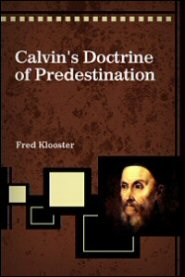 In a dispute about insurance coverage for a False Claims Act case involving the repair of Coast Guard cutters, the relevant exclusion reached: “[t]he failure of your products to meet any
In a dispute about insurance coverage for a False Claims Act case involving the repair of Coast Guard cutters, the relevant exclusion reached: “[t]he failure of your products to meet any
predetermined level of fitness or performance and/or guarantee of such fitness or level of performance and/or any consequential loss arising therefrom.” The insured argued that “predetermination” implied a bilateral agreement, while a “requirement” was unilateral and did not implicate the exclusion. The Fifth Circuit disagreed for several reasons: “But ‘predetermined’ means only ‘established, decided upon, or
decreed beforehand.’ It implies nothing about how a determination comes about, or who has the authority to determine. A single party can ‘determine’ something, and can do so in advance: there is nothing inherently bilateral about predetermination. And even if there were, the complaint lays out straightforwardly that [the insured] failed to meet a requirement that the parties together determined in advance. (citation omitted)” XL Specialty Ins. Co. v. Bollinger Shipyards, Inc., No. 14-31283 (Aug. 27, 2015).
Here is my PowerPoint for the “Fifth Circuit Update” that I presented at the State Bar’s Advanced Civil Appellate course last week in Austin. (Note that the Fifth Circuit has since issued a revised opinion in the Daubert case of Kovaly v. Wal-Mart, No. 14-20697 (Sept. 22, 2015, unpublished).
 A contractor who undertakes to build a house does not have insurance coverage, because of the “your work” exception, if soil movement causes an unacceptable foundation failure. This exception does not apply to a contractor with a specified and limited scope of work — for example, wall damage is not “your work” for a contractor hired only to repair a foundation. Feaster v. Mid-Continent Casualty Co., No. 15-20074 (Aug. 27, 2015, unpublished).
A contractor who undertakes to build a house does not have insurance coverage, because of the “your work” exception, if soil movement causes an unacceptable foundation failure. This exception does not apply to a contractor with a specified and limited scope of work — for example, wall damage is not “your work” for a contractor hired only to repair a foundation. Feaster v. Mid-Continent Casualty Co., No. 15-20074 (Aug. 27, 2015, unpublished).
 A prospective plaintiff in a medical malpractice case in Louisiana must submit the claim to a medical review panel before filing suit. When suit is filed before the panel is done, district courts have divided on whether an in-state defendant is “improperly joined” for purposes of a diversity analysis in a removal. In Flagg v. Stryker Corp., the Court concluded that such a defendant is not improperly joined, finding that the panel did not actually adjudicate the claim, and that the panel process could be waived by the parties. A dissent reasoned that the Louisiana statute was analogous to federal statutes where thee court had found improper joinder in similar situations. No. 14-31169 (Sept. 4, 2015).
A prospective plaintiff in a medical malpractice case in Louisiana must submit the claim to a medical review panel before filing suit. When suit is filed before the panel is done, district courts have divided on whether an in-state defendant is “improperly joined” for purposes of a diversity analysis in a removal. In Flagg v. Stryker Corp., the Court concluded that such a defendant is not improperly joined, finding that the panel did not actually adjudicate the claim, and that the panel process could be waived by the parties. A dissent reasoned that the Louisiana statute was analogous to federal statutes where thee court had found improper joinder in similar situations. No. 14-31169 (Sept. 4, 2015).
 In the wake of the Deepwater Horizon accident, plaintiffs sought to bring two class actions against BP alleging violations of federal securities law — one regarding BP’s representations about its pre-spill safety procedures, and one about BP’s post-accident statements as to the flow rate of oil after the spill occurred. The district court certified the post-spill class, concluding that the plaintiffs had established a model of damages consistent with their liability case and capable of measurement across the class, and refused to certify the pre-spill class, finding that it had not satisfied the “common damages” burden established by the Supreme Court in Comcast Corp. v. Behrend, 133 S. Ct. 1426 (2013). The Fifth Circuit affirmed. As to the post-spill class, the Court reviewed BP’s criticisms of the plaintiffs’ damages expert, and found that they were not so potent as to invalidate his theory at the class certification stage. As to the pre-spill class, however, the Court agreed that the expert failed to exclude class members who would have bought the stock even with full knowledge of the alleged risks, making his analysis infirm for certification purposes. Ludlow v. BP, PLC, No. 14-20420 (revised Sept.15, 2015).
In the wake of the Deepwater Horizon accident, plaintiffs sought to bring two class actions against BP alleging violations of federal securities law — one regarding BP’s representations about its pre-spill safety procedures, and one about BP’s post-accident statements as to the flow rate of oil after the spill occurred. The district court certified the post-spill class, concluding that the plaintiffs had established a model of damages consistent with their liability case and capable of measurement across the class, and refused to certify the pre-spill class, finding that it had not satisfied the “common damages” burden established by the Supreme Court in Comcast Corp. v. Behrend, 133 S. Ct. 1426 (2013). The Fifth Circuit affirmed. As to the post-spill class, the Court reviewed BP’s criticisms of the plaintiffs’ damages expert, and found that they were not so potent as to invalidate his theory at the class certification stage. As to the pre-spill class, however, the Court agreed that the expert failed to exclude class members who would have bought the stock even with full knowledge of the alleged risks, making his analysis infirm for certification purposes. Ludlow v. BP, PLC, No. 14-20420 (revised Sept.15, 2015).
Plaintiff claimed that he was not given proper medications by a private corrections company while incarcerated. The ensuing coverage litigation turned on a “medical services” exclusion, which said in relevant part:
“a) medical, surgical, dental or nursing treatment to such person or the person inflicting the injury including the furnishing of food or beverages in connection therewith;
b) furnishing or dispensing of drugs or medical, dental or surgical supplies or appliances if the injury occurs after the Named Insured has relinquished possession thereof to others;”
The Fifth Circuit agreed with the insurer that (a) and (b) dealt with different, distinct, situations and had to be harmonized – noting that an “or” between two later subparts supported this reading. Accordingly, the exclusion in (a) could apply even if (b) was not triggered. LCS Corrections Services v. Lexington Ins. Co., No. 14-40494 (Sept. 4, 2015).
 Revisiting the forum non conveniens question whether Mexico is an “available alternative” forum for a tort claim, the Fifth Circuit reaffirmed that the damages caps imposed by Mexican law do not disqualify it as a forum, and that this defense may be raised even in the context of moving to set aside a default judgment. Moreno v. LG Electronics, USA, Inc., No. 14-40563 (Sept. 8, 2015).
Revisiting the forum non conveniens question whether Mexico is an “available alternative” forum for a tort claim, the Fifth Circuit reaffirmed that the damages caps imposed by Mexican law do not disqualify it as a forum, and that this defense may be raised even in the context of moving to set aside a default judgment. Moreno v. LG Electronics, USA, Inc., No. 14-40563 (Sept. 8, 2015).
 The issue in United States v. CITGO was whether an “equalization tank” — a holding tank that plays a role in the process for handling oil refinery wastewater — is an “oil-water separator” within the meaning of the regulations implementing the Clean Water Act. The jury instructions quoted the regulation’s definition of an oil-water separator and then added: “[t]he definition of oil-water separator does not require that [it] have any or all of the ancillary equipment mentioned such as forebays, weirs, grit chambers, and sludge hoppers . . . . An oil-water separator is defined by how it is used.” The Fifth Circuit found an abuse of discretion in that additional sentence and reversed CITGO’s convictions: “This purely functional explanation is not what [the regulation] says, however: it defines an oil-water separator by how it is used and by its constituent parts. . . . Although the jury was also provided the exact text of Subpart QQQ, the court’s instruction told them what it means and thus undoubtedly affected the verdict. For this harmful error, the Clean Air Act convictions must be reversed.” No. 14-40128 (Sept. 4, 2015).
The issue in United States v. CITGO was whether an “equalization tank” — a holding tank that plays a role in the process for handling oil refinery wastewater — is an “oil-water separator” within the meaning of the regulations implementing the Clean Water Act. The jury instructions quoted the regulation’s definition of an oil-water separator and then added: “[t]he definition of oil-water separator does not require that [it] have any or all of the ancillary equipment mentioned such as forebays, weirs, grit chambers, and sludge hoppers . . . . An oil-water separator is defined by how it is used.” The Fifth Circuit found an abuse of discretion in that additional sentence and reversed CITGO’s convictions: “This purely functional explanation is not what [the regulation] says, however: it defines an oil-water separator by how it is used and by its constituent parts. . . . Although the jury was also provided the exact text of Subpart QQQ, the court’s instruction told them what it means and thus undoubtedly affected the verdict. For this harmful error, the Clean Air Act convictions must be reversed.” No. 14-40128 (Sept. 4, 2015).
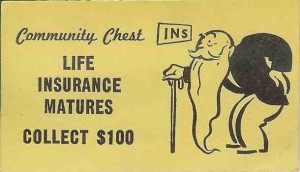 Bartos, an injured seaman, sued for future lost wages. His expert offered calculations based on a retirement age of 55.8 (from a table of work-life expectancies) or 67 (the Social Security full-retirement age). The Fifth Circuit reversed a damages award based on the older age and rendered an award based on the younger one, reasoning: “Barto’s economist did not provide any reason to
Bartos, an injured seaman, sued for future lost wages. His expert offered calculations based on a retirement age of 55.8 (from a table of work-life expectancies) or 67 (the Social Security full-retirement age). The Fifth Circuit reversed a damages award based on the older age and rendered an award based on the younger one, reasoning: “Barto’s economist did not provide any reason to  believe that Barto would continue to work past his statistical work-life expectancy. The only relevant evidence Barto presented at trial was his testimony that he plans to work ‘[a]s long as I can retire. Whatever the retirement age is.’ This scant evidence was not enough to show that Barto ‘by virtue of his health or occupation or other factors, is likely to live and work a longer, or shorter, period than the average.'” Barto v. Shore Construction LLC, No. 14-31326 (revised Sept. 29, 2015).
believe that Barto would continue to work past his statistical work-life expectancy. The only relevant evidence Barto presented at trial was his testimony that he plans to work ‘[a]s long as I can retire. Whatever the retirement age is.’ This scant evidence was not enough to show that Barto ‘by virtue of his health or occupation or other factors, is likely to live and work a longer, or shorter, period than the average.'” Barto v. Shore Construction LLC, No. 14-31326 (revised Sept. 29, 2015).
In one of its infrequent but steady appearances in the Fifth Circuit, the Rooker/Feldman doctrine arose in a federal court lawsuit alleging misconduct in state court about the confirmation and enforcement of a large arbitration award. Building on Truong v. Bank of America, 717 F.3d 377 (5th Cir. 2013), the Court affirmed the dismissal of claims about collection efforts, finding that “the [state court judgment itself was the source of these injuies.” As to civil rights claims about the proceedings leading up to confirmation, however, “the timing of the injury was before the state court entered judgment. And unlike . . . the conversion claim described above, none of the alleged conspirators was acting under the authority of the turnover orders in seeking to obtain a remedy.” Land & Bay Gauging, LLC v. Shor, No. 14-40259 (Aug. 21, 2015, unpublished).
 An accident occurred while a dredge attempted to anchor itself in the seabed. The legal issue was whether the dredge’s activity triggered the notice requirements of a Louisiana statute involving “excavation.” The Fifth Circuit reasoned: “The plaintiffs may well be right that the movement of earth is an inevitable result of anchoring, and thus that a person who engages in anchoring does so knowing that he will cause the movement of earth. But under the [statute], an activity constitutes ‘excavation’ only if the ‘purpose’ — the actual object — of engaging in it is the ‘movement . . . of earth.’ And the object of ‘anchoring’ is, unmistakably, the securing of a ship, not the movement of earth.” Plains Pipeline LP v. Great Lakes Dredge, No. 14-31046 (Aug. 12, 2015, unpublished).
An accident occurred while a dredge attempted to anchor itself in the seabed. The legal issue was whether the dredge’s activity triggered the notice requirements of a Louisiana statute involving “excavation.” The Fifth Circuit reasoned: “The plaintiffs may well be right that the movement of earth is an inevitable result of anchoring, and thus that a person who engages in anchoring does so knowing that he will cause the movement of earth. But under the [statute], an activity constitutes ‘excavation’ only if the ‘purpose’ — the actual object — of engaging in it is the ‘movement . . . of earth.’ And the object of ‘anchoring’ is, unmistakably, the securing of a ship, not the movement of earth.” Plains Pipeline LP v. Great Lakes Dredge, No. 14-31046 (Aug. 12, 2015, unpublished).
 Employees of the Stanford Financial Group sought coverage for attorneys fees incurred in defending federal criminal charges. The district court held the policy ambiguous and found coverage under the contra proferentem doctrine. The insurer sought reversal based on the “sophisticated insured” exception to that doctrine under Texas law. (A previous panel certified the question whether this exception existed in Texas to the Texas Supreme Court, who declined to answer it by resolving that case on other grounds.) Concluding that if Texas were to recognize the exception, it would
Employees of the Stanford Financial Group sought coverage for attorneys fees incurred in defending federal criminal charges. The district court held the policy ambiguous and found coverage under the contra proferentem doctrine. The insurer sought reversal based on the “sophisticated insured” exception to that doctrine under Texas law. (A previous panel certified the question whether this exception existed in Texas to the Texas Supreme Court, who declined to answer it by resolving that case on other grounds.) Concluding that if Texas were to recognize the exception, it would  apply a “middle-ground approach,” the majority affirmed: “Absent any information about the content of the negotiations, how the contracts were prepared, or other indicators of relative bargaining power, [the insurer] did not present evidence that the insured did or could have influenced the terms of the exclusion.” A dissent would have sidestepped saying anything about the exception, preferring to affirm on the ground that the policy unambiguously provided coverage. Certain Underwriters at Lloyds v. Perraud, No. 14-10849 (Aug. 12, 2015, unpublished).
apply a “middle-ground approach,” the majority affirmed: “Absent any information about the content of the negotiations, how the contracts were prepared, or other indicators of relative bargaining power, [the insurer] did not present evidence that the insured did or could have influenced the terms of the exclusion.” A dissent would have sidestepped saying anything about the exception, preferring to affirm on the ground that the policy unambiguously provided coverage. Certain Underwriters at Lloyds v. Perraud, No. 14-10849 (Aug. 12, 2015, unpublished).
Continuing a series of opinions that vacated findings of contempt – most recently in Waste Management v. Kattler, 776 F.3d 336 (5th Cir. 2015) – the Fifth Circuit vacated a contempt finding against an attorney for allegedly encouraging his client to make inappropriate online postings. Test Masters Educational Services v. Singh Educational Services, No. 13-20250 (Aug. 21, 2015). Applying Waste Management, the Court found inadequate notice from a show-cause order that only named the client. On the merits, agreeing that the relevant injunction against the client bound the attorney, the Court found no clear and convincing evidence that he personally had violated the injunction.
 Cypress Financial invested in Petters Company. Petters turned out to be a Ponzi scheme and its bankruptcy trustee sought to recover money transferred from Petters to Cypress. Cypress filed for Chapter 7 protection but its case was dismissed because it “serves only to delay the prosecution of a lawsuit against the debtor.” In re Cypress Financial, No. 14-10956 (Aug. 12, 2015, unpublished). “Everyone agrees there are no assets to marshal or liquidate, and applicable statutes of limitations bar any preference or fraudulent transfer actions that might lead to additional assets. . . . With no benefit conferred but considerable harm inflicted by Cypress’s Chapter 7 case, the district court properly concluded that the bankruptcy court abused its discretion. . . Even if we were to agree with Cypress that the bankruptcy court had no ’cause’ [under § 707(a)] to dismiss the case, its victory is pyrrhic.”
Cypress Financial invested in Petters Company. Petters turned out to be a Ponzi scheme and its bankruptcy trustee sought to recover money transferred from Petters to Cypress. Cypress filed for Chapter 7 protection but its case was dismissed because it “serves only to delay the prosecution of a lawsuit against the debtor.” In re Cypress Financial, No. 14-10956 (Aug. 12, 2015, unpublished). “Everyone agrees there are no assets to marshal or liquidate, and applicable statutes of limitations bar any preference or fraudulent transfer actions that might lead to additional assets. . . . With no benefit conferred but considerable harm inflicted by Cypress’s Chapter 7 case, the district court properly concluded that the bankruptcy court abused its discretion. . . Even if we were to agree with Cypress that the bankruptcy court had no ’cause’ [under § 707(a)] to dismiss the case, its victory is pyrrhic.”
The plaintiff in International Marine LLC v. FDT proved 33 breaches of the noncompete provisions of a contract related to the chartering of tugboats. The district court and Fifth Circuit agreed that a liquidated damages clause applied to the last several breaches. As to the first five, however, the Court reasoned that the clause “would impose an unreasonable penalty, because due to the parties’ conduct, we know the extent of damages [Plaintiff] suffered from each of these breaches.” It noted: “For over a century, courts have refused to award liquidated damages for contractual breaches solely involving default on payment obligations.” No. 14-31192 (Aug. 10, 2015, unpublished).
Vocada sued Nuance for securities fraud. They had a merger agreement in which they agreed to arbitrate “any . . . dispute relating to the Earnout Consideration.” The Fifth Circuit found that this claim had to be arbitrated, noting: “Although the arbitration clause as a whole is narrow, the ‘relates to’ language is broad. The clause does not require that the remedy sought in arbitration be the earnout consideration or that the claim relate to how the earnout consideration is calculated or distributed.” Accordingly, “this securities fraud ‘dispute’ is arbitrable because it ‘relates to’ the representations that Nuance made about how to achieve the Earnout Consideration.” Murchison Capital Partners, L.P. v. Nuance Communications, Inc., No. 14-1819 (Aug. 11, 2015).
Johnny Long, a former bankruptcy debtor, sought to bring FCA claims against his former employer. The defendant successfully obtained dismissal on the ground of judicial estoppel because the claim was not listed on Long’s bankruptcy schedules. After reminding that judicial estoppel, as a flexible and equitable doctrine, does not automatically compel dismissal in such a situation, the Fifth Circuit affirmed. The elements are that “(1) the party against whom judicial estoppel is sought has asserted a legal position which is plainly inconsistent with a prior position, (2) a court accepted the prior position, and (3) the party did not act inadvertently.” The specific issue was the third element, and whether Long had a motivation to conceal. The Court noted three advantageous features the payment terms in Long’s Chapter 13 plan, which disclosure could have endangered — and further noted that after judicial estoppel was raised, Long sought to reopen his case so “he may pay interest to his creditors” if he recovered on his FCA claim. United States ex rel Long v. GSD&M Idea City, LLC, 798 F.3d 265 (5th Cir. 2015). A later award to the defendant of roughly $200,000 in costs was substantially affirmed in United States ex rel Long v. GSDMidea City, LLC, No. 14-11049 (Dec. 1, 2015).
 In resolving a personal jurisdiction issue that turned on a party’s agency, the Fifth Circuit observed:
In resolving a personal jurisdiction issue that turned on a party’s agency, the Fifth Circuit observed:
- While a statement by a purported agent may not be hearsay, it is not admissible to establish “the existence or scope” of agency; and
- Correspondence that was not specifically directed to the plaintiffs does not establish agency by estoppel.
Sealed Appellant v. Sealed Appellee, No. 14-20204 (Aug. 17, 2015, unpublished).
A medical group sued a payor for underpayments. The payor removed under ERISA complete preemption, contending that “about 98% of [Plaintiff’s] claims are claims for ERISA plan benefits.” The district court kept the case and entered judgment for the payor; the Fifth Circuit reversed: “a claim that implicates the rate of payment as set out in the Provider Agreement, rather than the right to payment under the terms of the benefit plan, does not run afoul of [Aetna Health, Inc. v. Davila, 542 U.S. 200 (2004)] and is not preempted by ERISA.” Kelsey-Seybold Medical Group v. Great-West Healthcare of Texas, No. 14-20506 (Aug. 10, 2015, unpublished).
 A company sued a Hong Kong business in Texas for unpaid consulting fees. The Fifth Circuit reversed the dismissal of the business for lack of personal jurisdiction, finding that “the nature of the relationship” between it and the plaintiff, as well as both parties’ “joint connection” to a transaction involving BP’s Houston office, made it “foreseeable that the hub of [plaintiff’s] consulting activity would be in Texas.” It also found no “unique” burden on the business of having to litigate in the U.S. The Court affirmed the dismissal of an in-state defendant (and thus the removal of the case based on diversity/improper joinder) for failure to state a contract, quantum meruit, or fraud claim against him. International Energy Ventures Management, LLC v. United Energy Group, Ltd., No. 14-20552 (Aug. 21, 2015). (This opinion has subsequently been withdrawn and replaced)
A company sued a Hong Kong business in Texas for unpaid consulting fees. The Fifth Circuit reversed the dismissal of the business for lack of personal jurisdiction, finding that “the nature of the relationship” between it and the plaintiff, as well as both parties’ “joint connection” to a transaction involving BP’s Houston office, made it “foreseeable that the hub of [plaintiff’s] consulting activity would be in Texas.” It also found no “unique” burden on the business of having to litigate in the U.S. The Court affirmed the dismissal of an in-state defendant (and thus the removal of the case based on diversity/improper joinder) for failure to state a contract, quantum meruit, or fraud claim against him. International Energy Ventures Management, LLC v. United Energy Group, Ltd., No. 14-20552 (Aug. 21, 2015). (This opinion has subsequently been withdrawn and replaced)
 In Century Surety Co. v. Blevins, the district court dismissed two causes of action related to handling of insurance claims, and then sua sponte dismissed three other related causes of action — breach of contract, estoppel, and vicarious liability. The Fifth Circuit reversed, reminding: “While the district court has great discretion in how it manages its cases, in the Fifth Circuit litigants must — with certain exceptions – be given notice and an opportunity to respond before a district court dismisses claims sua sponte.” No. 14-31131 (Aug. 18, 2015).
In Century Surety Co. v. Blevins, the district court dismissed two causes of action related to handling of insurance claims, and then sua sponte dismissed three other related causes of action — breach of contract, estoppel, and vicarious liability. The Fifth Circuit reversed, reminding: “While the district court has great discretion in how it manages its cases, in the Fifth Circuit litigants must — with certain exceptions – be given notice and an opportunity to respond before a district court dismisses claims sua sponte.” No. 14-31131 (Aug. 18, 2015).
 In the case’s second trip to the Fifth Circuit, the Court considered whether – after an earlier remand for “limited discovery” on jurisdictional facts related to the contract-making authority of the Mexican consulate – the district court erred by reconsidering its earlier substantive ruling about the basis for subject matter jurisdiction. Blake Box v. Dallas Mexican Consultate General, Nos. 14-10744 & 14-10954 (Aug. 19, 2015, unpublished).
In the case’s second trip to the Fifth Circuit, the Court considered whether – after an earlier remand for “limited discovery” on jurisdictional facts related to the contract-making authority of the Mexican consulate – the district court erred by reconsidering its earlier substantive ruling about the basis for subject matter jurisdiction. Blake Box v. Dallas Mexican Consultate General, Nos. 14-10744 & 14-10954 (Aug. 19, 2015, unpublished).
Reviewing both the law-of-the case doctrine and the “mandate rule,” the Court found error and reversed: “[W]hether the Consulate [o]fficials had authority from the Mexican government to form a joint venture is a separate question from whether they exercised that authority in their dealings with [plaintiff]. Simply put, here, the first question was answered by the district court on remand in Box I and the second question was defaulted by the Consulate” when it failed to answer after service. Accordingly, a $3 million default judgment was reinstated. Congratulations to my LTPC colleagues Jason Dennis and Sam Hardy on this win!
 The issue in Kovaly v. Wal-Mart was whether a pharmacist was negligent in not providing a 72-hour emergency supply of a patient’s medicine, despite some confusion about the quantity in the prescription issued by the patient’s physician. No. 14-20697 (Aug. 12, 2015, unpublished). The district court found that Brooke, the plaintiff’s expert, was well-qualified by experience and training to testify about the standard of care. The district court went on to hold, however, that “nothing in the regulations definitively authorizes a pharmacist to provide a 72-hour emergency supply for an original prescription, and it concluded that doing so would actually violate Texas law,” and thus excluded his opinions as unreliable. The Fifth Circuit reversed, concluding: “Even if Brooke’s opinion that the pharmacist legally could have filled the emergency supply is an incorrect interpretation of Texas law, that does not render it unreliable in light of his qualifications, experience, and foundation for the opinion.” In support, the Court cites several cases about the ultimate “correctness” of an expert’s factual conclusion.
The issue in Kovaly v. Wal-Mart was whether a pharmacist was negligent in not providing a 72-hour emergency supply of a patient’s medicine, despite some confusion about the quantity in the prescription issued by the patient’s physician. No. 14-20697 (Aug. 12, 2015, unpublished). The district court found that Brooke, the plaintiff’s expert, was well-qualified by experience and training to testify about the standard of care. The district court went on to hold, however, that “nothing in the regulations definitively authorizes a pharmacist to provide a 72-hour emergency supply for an original prescription, and it concluded that doing so would actually violate Texas law,” and thus excluded his opinions as unreliable. The Fifth Circuit reversed, concluding: “Even if Brooke’s opinion that the pharmacist legally could have filled the emergency supply is an incorrect interpretation of Texas law, that does not render it unreliable in light of his qualifications, experience, and foundation for the opinion.” In support, the Court cites several cases about the ultimate “correctness” of an expert’s factual conclusion.
 Wallace sued Tesoro Corporation for retaliation, alleging he was fired for activity protected by the Sarbanes-Oxley Act. he district court dismissed. The Fifth Circuit affirmed in part, finding that Wallace had not exhausted his administrative remedies as to his claims about Tesoro that he did not present to OSHA. Wallace v. Tesoro Corp., No. 13-51010 (July 31, 2015). The Court reversed as to other claims dismissed on the pleadings, holding:
Wallace sued Tesoro Corporation for retaliation, alleging he was fired for activity protected by the Sarbanes-Oxley Act. he district court dismissed. The Fifth Circuit affirmed in part, finding that Wallace had not exhausted his administrative remedies as to his claims about Tesoro that he did not present to OSHA. Wallace v. Tesoro Corp., No. 13-51010 (July 31, 2015). The Court reversed as to other claims dismissed on the pleadings, holding:
- As to the objective reasonableness of Wallace’s belief about an accounting practice — “The basis for that belief in this case, including the level and role of Wallace’s accounting expertise and how that should weigh against him, are grounded in factual disputes that cannot be resolved at this stage of the case.”
- As for Wallace’s reasonable belief that a fraud was occurring, Rule 9(b) is not implicated because “an employee who is providing information about potential fraud or assisting in a nascent fraud investigation might not know who is making the false representations or what that person is obtaining by the fraud; indeed, that may be the point of the investigation.”
- Wallace adequate pleaded the basis for his reasonable belief that Tesoro was not making proper SEC disclosures, and that Tesoro acted with the requisite mental state (primarily by detailing the steps he took to inform Tesoro management). The opinion provides more detail about the specific allegations made by Wallace.
 The ABA Journal sponsors a “Blawg 100” list that recognizes legal blogs. Unlike the various top lawyer lists, the ABA encourages campaigning: (“Bloggers, by all means tell your readers about Blawg 100 Amici and invite them to send us messages on behalf of your blog.”) So if you enjoy 600Camp (or its sister blog, 600 Commerce about the Dallas Court of Appeals), please click here and fill out the ABA’s short form. Shouldn’t take but a minute, and much appreciated.
The ABA Journal sponsors a “Blawg 100” list that recognizes legal blogs. Unlike the various top lawyer lists, the ABA encourages campaigning: (“Bloggers, by all means tell your readers about Blawg 100 Amici and invite them to send us messages on behalf of your blog.”) So if you enjoy 600Camp (or its sister blog, 600 Commerce about the Dallas Court of Appeals), please click here and fill out the ABA’s short form. Shouldn’t take but a minute, and much appreciated.
 Hooks sued Landmark Industries, the operator of an ATM, as the representative of a putative class alleging that Landmark failed to give proper notices under the Electronic Funds Transfer Act about withdrawal fees. Hooks v. Landmark Industries, Inc., No. 14-20496 (Aug. 12, 2015). Pursuant to Fed. R. Civ. P. 68, Landmark offered $1,000 (the maximum allowable statutory damages) and costs and fees “through the date of acceptance of the offer, as agreed by the parties, or to be determined by the court if agreement cannot be reached.” Hooks did not accept it, and the district court dismissed, finding the action mooted by the unaccepted Rule 68 offer.
Hooks sued Landmark Industries, the operator of an ATM, as the representative of a putative class alleging that Landmark failed to give proper notices under the Electronic Funds Transfer Act about withdrawal fees. Hooks v. Landmark Industries, Inc., No. 14-20496 (Aug. 12, 2015). Pursuant to Fed. R. Civ. P. 68, Landmark offered $1,000 (the maximum allowable statutory damages) and costs and fees “through the date of acceptance of the offer, as agreed by the parties, or to be determined by the court if agreement cannot be reached.” Hooks did not accept it, and the district court dismissed, finding the action mooted by the unaccepted Rule 68 offer.
Sidestepping the thorny question of whether this offer was “complete” under Rule 68, the Fifth Circuit reversed. It reasoned: “[i]t is hornbook law that the rejection of an offer nullifies the offer,” and expressed concern that “[a] contrary ruling would serve to allow defendants to unilaterally moot named-plaintiffs’ claims in the class action context — even though the plaintiff, having turned the offer down, would receiver no actual relief. This holding places the Fifth Circuit in the minority of a 6-3 circuit split on the issue of whether an unaccepted offer of judgment can moot a named plaintiff’s claim in a putative class action.
 The Texas Securities Act has a five-year statute of repose. The issue in FDIC v. RBS Securities was whether that statute was preempted by a 3-year “extender” provision in FIRREA, which “works by hooking any claims that are alive at the time of the FDIC’s appointment as receiver and pulling them forward to a new, federal, minimum limitations period — six years for contract claims, three years for tort claims.” No. 14-51055 (Aug. 10, 2015).
The Texas Securities Act has a five-year statute of repose. The issue in FDIC v. RBS Securities was whether that statute was preempted by a 3-year “extender” provision in FIRREA, which “works by hooking any claims that are alive at the time of the FDIC’s appointment as receiver and pulling them forward to a new, federal, minimum limitations period — six years for contract claims, three years for tort claims.” No. 14-51055 (Aug. 10, 2015).
The Fifth Circuit concluded that the Texas statute of repose was preempted, and reversed a judgment on the pleadings in a securities fraud suit arising out of the failure of Guaranty Bank, holding: “The text, structure, and purpose of the FDIC Extender Statute all evince a Congressional intent to grant the FDIC a three-year grace period after its appointment as receiver to investigate potential claims. Therefore, the statute displaces any limitations period that would interfere with that reprieve — whether characterized as a statute of limitations or as a statute of repose.” The Court distinguished the analysis of a CERCLA limitations provision in CTS Corp. v. Waldburger, 134 S. Ct. 2175 (2014), finding that “many of the considerations that the [Supreme] Court found disfavored preemption in CTS suggest preemption when applied to the FDIC Extender Statute.”
The Eastern District of Texas suspended attorney Robert Booker for three years. While a magistrate issued a report, which was reviewed and adopted unanimously by the Eastern District Judges, the Fifth Circuit held: “[W]e cannot discern from the record whether the district court specifically found that Booker acted in bad faith under the clear and convincing evidence standard.” Accordingly, the Court remanded for the district court to “specify whether it finds that Booker has committed any ethics violation based on clear and convincing evidence and whether Booker acted in bad faith in committing any such violations.” In re: Booker, No. 14-41194 (Aug. 3, 2015, unpublished). (Subsequently, the Fifth Circuit affirmed on the merits.)
 The Department of Agriculture fined Bodie Knapp (d/b/a “The Wild Side”) $395,000 for violations of regulations about the purchase and sale of exotic animals. The Fifth Circuit largely affirmed, reviewing several basic concepts of administrative law in the process:
The Department of Agriculture fined Bodie Knapp (d/b/a “The Wild Side”) $395,000 for violations of regulations about the purchase and sale of exotic animals. The Fifth Circuit largely affirmed, reviewing several basic concepts of administrative law in the process:
- A clear regulation about a regulatory exemption trumps an arguably inconsistent summary of the regulation in an agency publication.
- Even in an environment of considerable deference, an agency ALJ must provide enough explanation so the appellate court can “reasonably discern the reason” for his ruling. Accordingly, the Court remanded for further findings as to whether “aoudad, alpaca, and miniature donkeys are ‘animals’ . . . and not ‘farm animals,'” and about the purchasers’ intentions to display “one alpaca, one auodad, two zebras, one wildebeest, two addax, seven buffalo, three nilgai, four chinchilla and one axis deer.” (No partridge in a pear tree was involved in the case.)
- It is a “heavy burden” to prove estoppel from statements made by an agency employee, and proof of a misrepresentation is only one element of that defense.
- A sale of two lemurs (as opposed to a donation) can be proven with evidence of the receipt of two zebras shortly after the delivery of the lemurs.
The opinion also affirmed on several challenges to the penalties, finding the agency’s position to not be unreasonable. Knapp v. U.S. Dep’t of Agriculture, No. 14-60002 (July 31, 2015).
 Hamsher was admitted to “Timberline Knolls Residential Treatment Center” for mental health care; her employer did not pre-authorize her treatment. Unfortunately for the employer, its right under its healthcare plan to insist on precertification applied only to care in a “hospital,” and the Fifth Circuit concluded: “the administrative file contains only claim forms, none of which provide an indication as to whether Timberline is a ‘hospital’ as defined under the Plan. The name is suggestive, of course, but title alone does not constitute the type of ‘substantial evidence’ that [the employer] must put forward.” Accordingly, the Court rendered judgment for the employee, in a rare appellate reversal of an ERISA dispute.
Hamsher was admitted to “Timberline Knolls Residential Treatment Center” for mental health care; her employer did not pre-authorize her treatment. Unfortunately for the employer, its right under its healthcare plan to insist on precertification applied only to care in a “hospital,” and the Fifth Circuit concluded: “the administrative file contains only claim forms, none of which provide an indication as to whether Timberline is a ‘hospital’ as defined under the Plan. The name is suggestive, of course, but title alone does not constitute the type of ‘substantial evidence’ that [the employer] must put forward.” Accordingly, the Court rendered judgment for the employee, in a rare appellate reversal of an ERISA dispute.
 Cox Operating incurred significant expenses in cleaning up pollution and debris at its oil-and-gas facilities after Hurricane Katrina. Its insurer disputed coverage. After a lengthy trial, the district court awarded $9,465,103.22 in damages and $13,064,948.28 in penalty interest under the Texas Prompt Payment Act. The Fifth Circuit affirmed in Cox Operating LLC v. St. Paul Surplus Lines Ins. Co., No. 13-20529 (July 30, 2015).
Cox Operating incurred significant expenses in cleaning up pollution and debris at its oil-and-gas facilities after Hurricane Katrina. Its insurer disputed coverage. After a lengthy trial, the district court awarded $9,465,103.22 in damages and $13,064,948.28 in penalty interest under the Texas Prompt Payment Act. The Fifth Circuit affirmed in Cox Operating LLC v. St. Paul Surplus Lines Ins. Co., No. 13-20529 (July 30, 2015).
After finding that the one-year reporting requirement in Cox’s policy was not an unwaivable limitation on coverage, the Court confronted a “disturbing inconsistency” about the Act. On the one hand, the penalty-interest provision applies generally “[i]f an insurer that is liable for a claim under an insurance policy is not in compliance with this subchapter.” On the other hand, of the Act’s variously deadlines, only one expressly ties its violation to the penalty provision. The Fifth Circuit found for the insured, finding “the construction urged by St. Paul . . . would seem to transform all but one of the Act’s deadlines from commands backed by the threat of penalty interest to suggestions backed by nothing at all.”
 The unsuccessful plaintiffs in Blythe v. Bumbo International appealed the dismissal of their products liability claim about a Bumbo baby seat (right). No. 14-40387 (July 27, 2015, unpublished). The Fifth Circuit, affirmed, holding on two key evidentiary issues:
The unsuccessful plaintiffs in Blythe v. Bumbo International appealed the dismissal of their products liability claim about a Bumbo baby seat (right). No. 14-40387 (July 27, 2015, unpublished). The Fifth Circuit, affirmed, holding on two key evidentiary issues:
1. “The district court did not abuse its discretion in excluding the instructions on Bumbo’s website [under Fed. R. Evid. 407.] . . . [Plaintiffs’ attempt to introduce the website instructions for the purpose of proving a design defect ‘under the guise’ of claiming they are admissible under the impeachment exception.”
 2. Evidence about prior product recalls and related investigations was inadmissible, as subsequent remedial measures. Examining the “subject matter, underlying purpose, and relevance” of the communications about safety harnesses, the Court noted that none involved the use of a Bumbo on an elevated surface as the plaintiffs had done, contrary to product warnings.
2. Evidence about prior product recalls and related investigations was inadmissible, as subsequent remedial measures. Examining the “subject matter, underlying purpose, and relevance” of the communications about safety harnesses, the Court noted that none involved the use of a Bumbo on an elevated surface as the plaintiffs had done, contrary to product warnings.
 After the EEOC sent two inconsistent letters about a claimant’s case – one in June, and one in July – a confusing limitations problem arose. The Fifth Circuit found that equitable tolling applied and prevented a bar to filing suit. It agreed with the district court that testimony about what the EEOC told counsel on the phone was inadmissible for the truth of the matter asserted, but disagreed that it was completely inadmissible — when offered to prove why counsel acted as he did, the conversation was not offered for a hearsay purpose. The Court also noted that counsel, and his client, had proceeded diligently throughout the matter, noting: “Th[e] desire to have an EEOC letter with all the t’s crossed and i’s dotted is a sign of diligence rather than dawdling.” Alvarado v. Mine Service, Ltd., No. 14-50668 (July 30, 2015, unpublished).
After the EEOC sent two inconsistent letters about a claimant’s case – one in June, and one in July – a confusing limitations problem arose. The Fifth Circuit found that equitable tolling applied and prevented a bar to filing suit. It agreed with the district court that testimony about what the EEOC told counsel on the phone was inadmissible for the truth of the matter asserted, but disagreed that it was completely inadmissible — when offered to prove why counsel acted as he did, the conversation was not offered for a hearsay purpose. The Court also noted that counsel, and his client, had proceeded diligently throughout the matter, noting: “Th[e] desire to have an EEOC letter with all the t’s crossed and i’s dotted is a sign of diligence rather than dawdling.” Alvarado v. Mine Service, Ltd., No. 14-50668 (July 30, 2015, unpublished).
 H&E Equipment sued Advanced Services after a fire at a plywood plant. Advanced brought a third-party claim against Georgia-Pacific for indemnity, who in turn sought coverage from Kinsale Insurance. Kinsale denied coverage on the ground that Advanced was also insured under the relevant policy, triggering this “insured v. insured” exclusion: “This insurance does not apply to claims or ‘suits’ for ‘bodily injury,’ ‘property damage’ or ‘personal and advertising injury’ brought by one insured against any other
H&E Equipment sued Advanced Services after a fire at a plywood plant. Advanced brought a third-party claim against Georgia-Pacific for indemnity, who in turn sought coverage from Kinsale Insurance. Kinsale denied coverage on the ground that Advanced was also insured under the relevant policy, triggering this “insured v. insured” exclusion: “This insurance does not apply to claims or ‘suits’ for ‘bodily injury,’ ‘property damage’ or ‘personal and advertising injury’ brought by one insured against any other  insured.” The Fifth Circuit reversed summary judgment for the insurer, reasoning: “Advanced did not, in turn, seek damages from Georgia-Pacific due to a property loss; it sought indemnity based on general tort principles for the property damage that occurred to another party. Advanced had no property damage, but it seeks protection from a potential duty to pay for someone else’s property damages.” Kinsale Ins. Co. v. Georgia-Pacific, LLC, No. 14-60770 (July 27, 2015) (distinguishing Fidelity & Deposit Co. of Maryland v. Conner, 973 F.2d 1236 (5th Cir. 1992).
insured.” The Fifth Circuit reversed summary judgment for the insurer, reasoning: “Advanced did not, in turn, seek damages from Georgia-Pacific due to a property loss; it sought indemnity based on general tort principles for the property damage that occurred to another party. Advanced had no property damage, but it seeks protection from a potential duty to pay for someone else’s property damages.” Kinsale Ins. Co. v. Georgia-Pacific, LLC, No. 14-60770 (July 27, 2015) (distinguishing Fidelity & Deposit Co. of Maryland v. Conner, 973 F.2d 1236 (5th Cir. 1992).
 Plaintiff challenged a proposed development plan as violating the Fair Housing Act. Defendants argued “that because the planned redevelopment is both inchoate and designed to be mixed income and to attract a variety of tenants, [Plaintiff] can only speculate as to whether, if redevelopment proceeds, it will deprive her of the social and economic benefits of diversity,” and thus lacked standing. The Fifth Circuit disagreed, finding that her “asserted injury would be concretely felt in the logical course of probably events flowing from an unfavorable decision by this court: (1) HUD approves the already-pending plan for redevelopment; (2) redevelopment occurs according to the approved plan; [and] (3) segregation and minority- and poverty-concentration occur in [Plaintiff’s] neighborhood as specifically anticipated in several expert reports contained in the record.” The Court distinguished Clapper v. Amnesty International, 133 S. Ct. 1138 (2013), a recent case about the Foreign Intelligence Surveillance Act, as “depend[ing] on a long and tenuous chain of contingent events[.]” McCardell v. U.S. Dep’t of Housing & Urban Devel., No. 14-40955 (July 23, 2015).
Plaintiff challenged a proposed development plan as violating the Fair Housing Act. Defendants argued “that because the planned redevelopment is both inchoate and designed to be mixed income and to attract a variety of tenants, [Plaintiff] can only speculate as to whether, if redevelopment proceeds, it will deprive her of the social and economic benefits of diversity,” and thus lacked standing. The Fifth Circuit disagreed, finding that her “asserted injury would be concretely felt in the logical course of probably events flowing from an unfavorable decision by this court: (1) HUD approves the already-pending plan for redevelopment; (2) redevelopment occurs according to the approved plan; [and] (3) segregation and minority- and poverty-concentration occur in [Plaintiff’s] neighborhood as specifically anticipated in several expert reports contained in the record.” The Court distinguished Clapper v. Amnesty International, 133 S. Ct. 1138 (2013), a recent case about the Foreign Intelligence Surveillance Act, as “depend[ing] on a long and tenuous chain of contingent events[.]” McCardell v. U.S. Dep’t of Housing & Urban Devel., No. 14-40955 (July 23, 2015).
 Dixon complained that he was defrauded into leasing a Toyota Corolla, having been told that the lease would be tax-exempt because his co-lessee was a non-profit entity. The Fifth Circuit affirmed dismissal, finding that the Consumer Leasing Act does not confer standing unless all lessees are natural persons, which the non-profit was not. Dixon v. Toyota Motor Credit Corp., No. 14-30426 (July 23, 2015).
Dixon complained that he was defrauded into leasing a Toyota Corolla, having been told that the lease would be tax-exempt because his co-lessee was a non-profit entity. The Fifth Circuit affirmed dismissal, finding that the Consumer Leasing Act does not confer standing unless all lessees are natural persons, which the non-profit was not. Dixon v. Toyota Motor Credit Corp., No. 14-30426 (July 23, 2015).
 HUD suspended a mortgage lender from doing business with the government; after some litigation, HUD withdrew the suspensions. In the meantime, the lender had appealed the district court’s ruling that upheld the suspensions, and argued that it was not moot after the withdrawal. The Fifth Circuit disagreed, finding that the requested declaration that the suspension was unlawful is “no longer embedded in an actual controversy about the appellants’ legal rights.” The Court rejected arguments based on the “voluntary-cessation” and
HUD suspended a mortgage lender from doing business with the government; after some litigation, HUD withdrew the suspensions. In the meantime, the lender had appealed the district court’s ruling that upheld the suspensions, and argued that it was not moot after the withdrawal. The Fifth Circuit disagreed, finding that the requested declaration that the suspension was unlawful is “no longer embedded in an actual controversy about the appellants’ legal rights.” The Court rejected arguments based on the “voluntary-cessation” and  “collateral consequences,” emphasizing the specific posture of the lender’s situation with the government and the specifics of the regulatory environment. The Court also rejected an argument based on the past economic losses, noting that the lender was not seeking damages and could not under the applicable statute. Allied Home Mortgage Corp. v. U.S. Dep’t of Housing & Urban Devel., No. 14-20523 (July 22, 2015, unpublished).
“collateral consequences,” emphasizing the specific posture of the lender’s situation with the government and the specifics of the regulatory environment. The Court also rejected an argument based on the past economic losses, noting that the lender was not seeking damages and could not under the applicable statute. Allied Home Mortgage Corp. v. U.S. Dep’t of Housing & Urban Devel., No. 14-20523 (July 22, 2015, unpublished).
 Red Barn Motors sued its lender in a Louisiana district court. That court transferred the case to Indiana based on a forum selection clause. Three months later, the dealer sought mandamus relief from the Fifth Circuit, which denied its request. The Court noted that the case was no longer in the Circuit – meaning that the only possible remedy would be to ask the Indiana court to return the case, which would require a “very extreme case.” “Despite the potential availability” of this limited opportunity for mandamus relief, the Court found that the unexplained three-month delay in seeking review showed a lack of diligence that defeated the petition. In re: Red Barn Motors, Inc., No. 15-30067 (July 20, 2015).
Red Barn Motors sued its lender in a Louisiana district court. That court transferred the case to Indiana based on a forum selection clause. Three months later, the dealer sought mandamus relief from the Fifth Circuit, which denied its request. The Court noted that the case was no longer in the Circuit – meaning that the only possible remedy would be to ask the Indiana court to return the case, which would require a “very extreme case.” “Despite the potential availability” of this limited opportunity for mandamus relief, the Court found that the unexplained three-month delay in seeking review showed a lack of diligence that defeated the petition. In re: Red Barn Motors, Inc., No. 15-30067 (July 20, 2015).
 Plaintiff’s FCA claims about billing for aircraft parts were dismissed for failure to comply with the heightened pleading requirements of Fed. R. Civ. P. 9(b), in that:
Plaintiff’s FCA claims about billing for aircraft parts were dismissed for failure to comply with the heightened pleading requirements of Fed. R. Civ. P. 9(b), in that:
- it is not sufficient to argue that certain federal regulations must have been contained in the relevant contract, because by their terms, they do not automatically apply;
- neither nondisclosure of a part’s history, nor the subsequent failure of a plane containing that part, establishes that a false claim was made about it; and
- speculation about a company’s billing practices does not adequately establish when the company actually submitted the allegedly false claims.
United States ex rel Gage v. Davis S.R. Aviation, LLC, No. 14-50704 (July 14, 2015).
 The district court overseeing the settlement process for Deepwater Horizon claims ordered that the program could not have access to a certain set of “claim-specific information” before making an initial determination about a claim’s eligibility. BP sought to appeal this ruling as a collateral order. The Fifth Circuit dismissed for lack of jurisdiction, acknowledging that it had taken three earlier appeals about the settlement. The Court concluded that those appeals involved uniquely important issues about interpretation of the underlying agreement, and expressed concern about inviting significantly more interlocutory appeals given “the increasing frequency of court-supervised settlement agreements and consent decrees.” Lake Eugenie Land & Development v. BP Exploration & Production. No. 14-30823 (July 16, 2015).
The district court overseeing the settlement process for Deepwater Horizon claims ordered that the program could not have access to a certain set of “claim-specific information” before making an initial determination about a claim’s eligibility. BP sought to appeal this ruling as a collateral order. The Fifth Circuit dismissed for lack of jurisdiction, acknowledging that it had taken three earlier appeals about the settlement. The Court concluded that those appeals involved uniquely important issues about interpretation of the underlying agreement, and expressed concern about inviting significantly more interlocutory appeals given “the increasing frequency of court-supervised settlement agreements and consent decrees.” Lake Eugenie Land & Development v. BP Exploration & Production. No. 14-30823 (July 16, 2015).
 The plaintiffs/relators in United States ex rel Rigsby v. State Farm contended that, in the wake of Hurricane Katrina, State Farm improperly skewed its claims handling process in favor of finding flood damage, as “wind policy claims were paid out of the company’s own pocket while flood policy claims were paid with government funds.” They won at trial and the Fifth Circuit affirmed, finding that – notwithstanding earlier investigations – they were “paradigmatic . . . whistleblowing insiders” as to this specific claim who qualified as “original sources.” The Court went on to find sufficient evidence of falsity and scienter, and reversed a discovery ruling that would not have allowed the plaintiffs to investigate the facts of other potentially false claims. ” 794 F.3d 457 (5th Cir. 2015). The Supreme Court granted review and affirmed on an issue about violation of the FCA’s sealing requirement.
The plaintiffs/relators in United States ex rel Rigsby v. State Farm contended that, in the wake of Hurricane Katrina, State Farm improperly skewed its claims handling process in favor of finding flood damage, as “wind policy claims were paid out of the company’s own pocket while flood policy claims were paid with government funds.” They won at trial and the Fifth Circuit affirmed, finding that – notwithstanding earlier investigations – they were “paradigmatic . . . whistleblowing insiders” as to this specific claim who qualified as “original sources.” The Court went on to find sufficient evidence of falsity and scienter, and reversed a discovery ruling that would not have allowed the plaintiffs to investigate the facts of other potentially false claims. ” 794 F.3d 457 (5th Cir. 2015). The Supreme Court granted review and affirmed on an issue about violation of the FCA’s sealing requirement.
